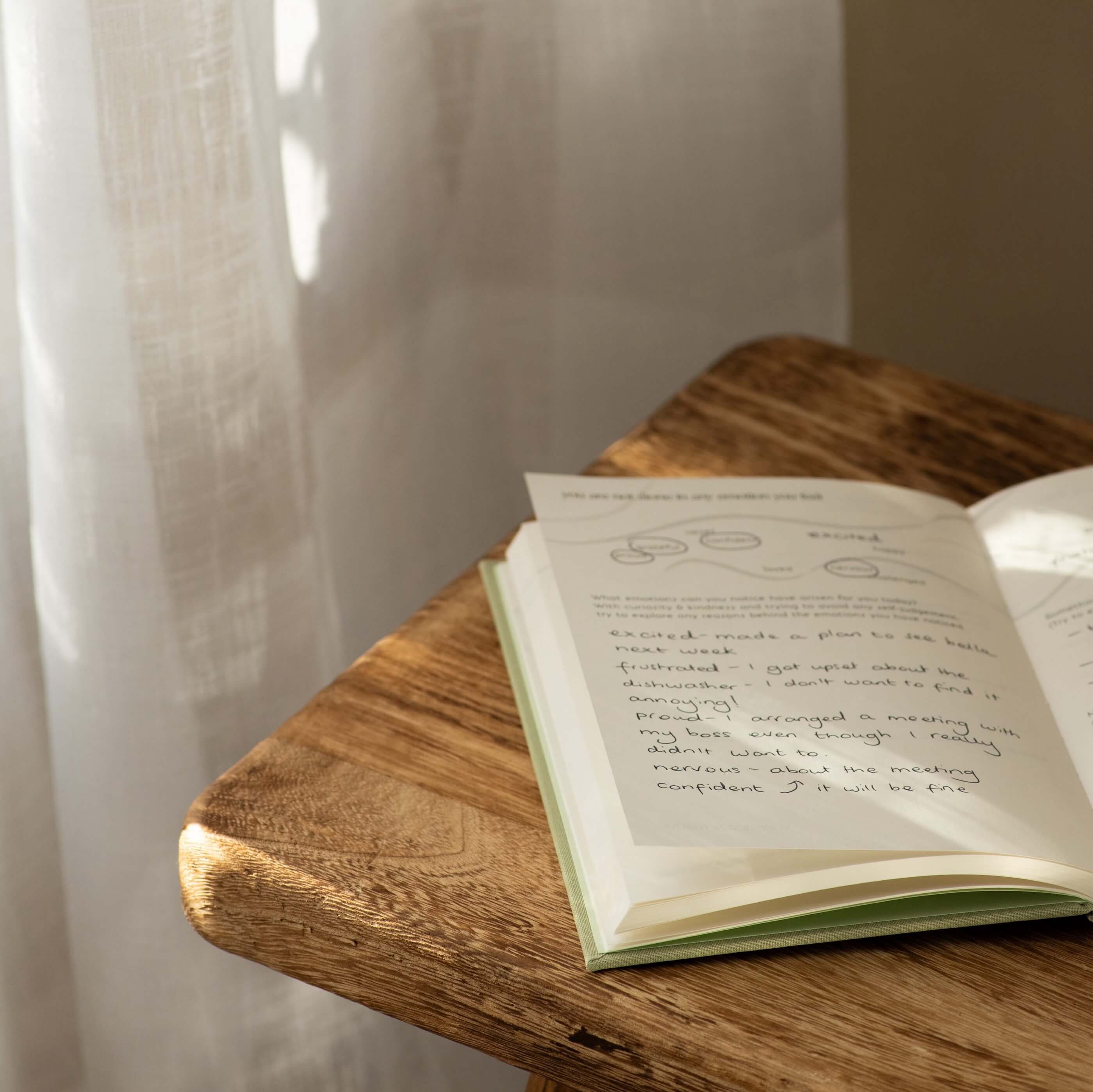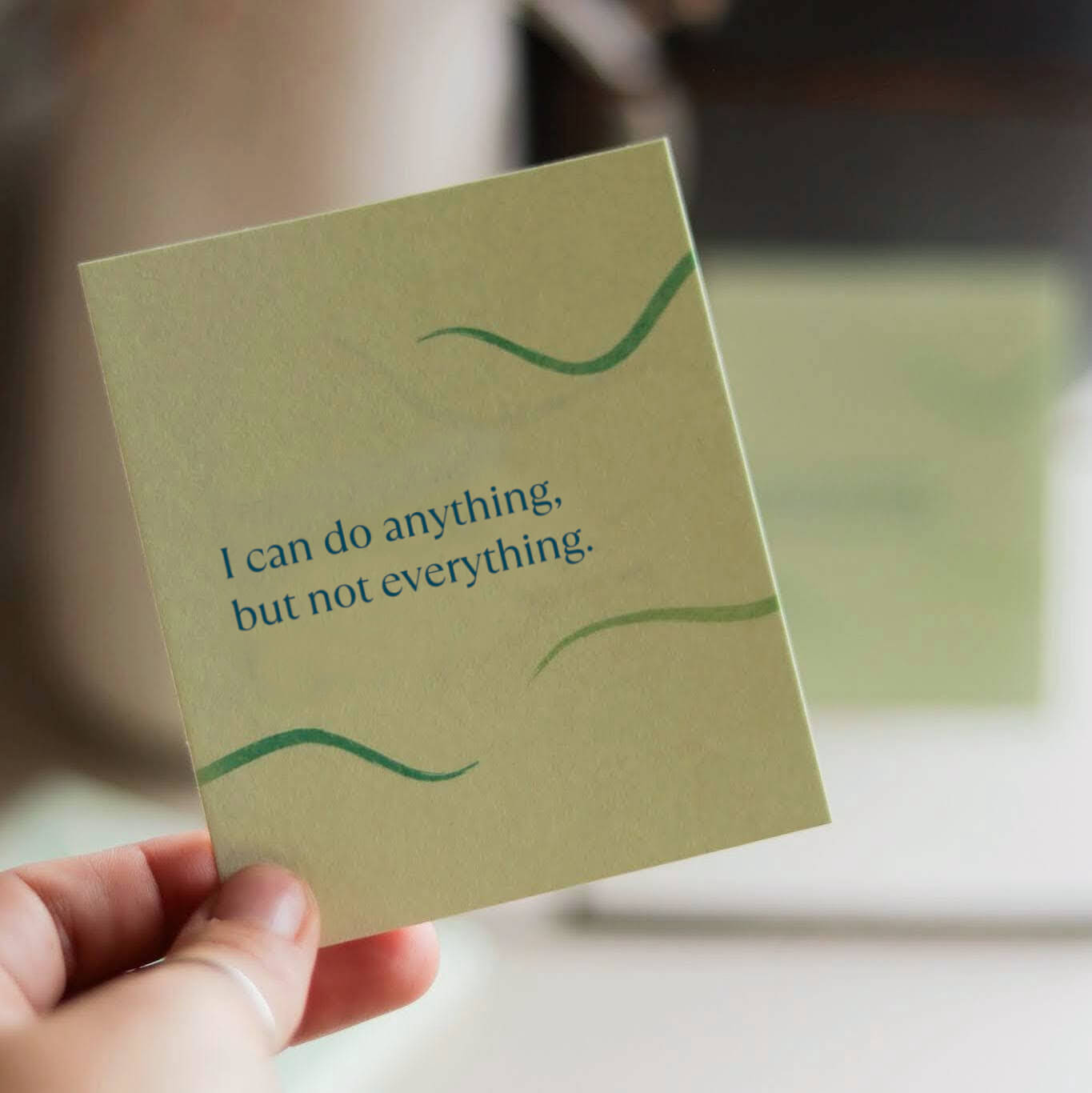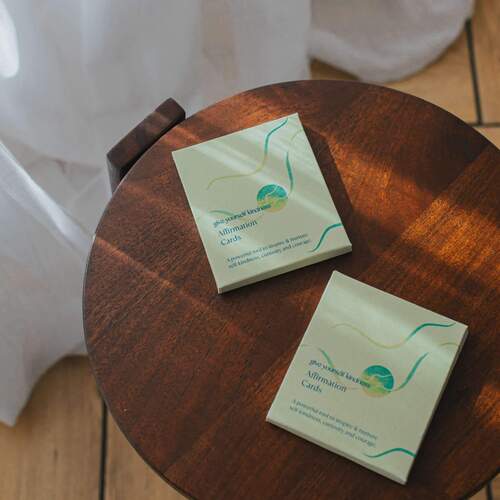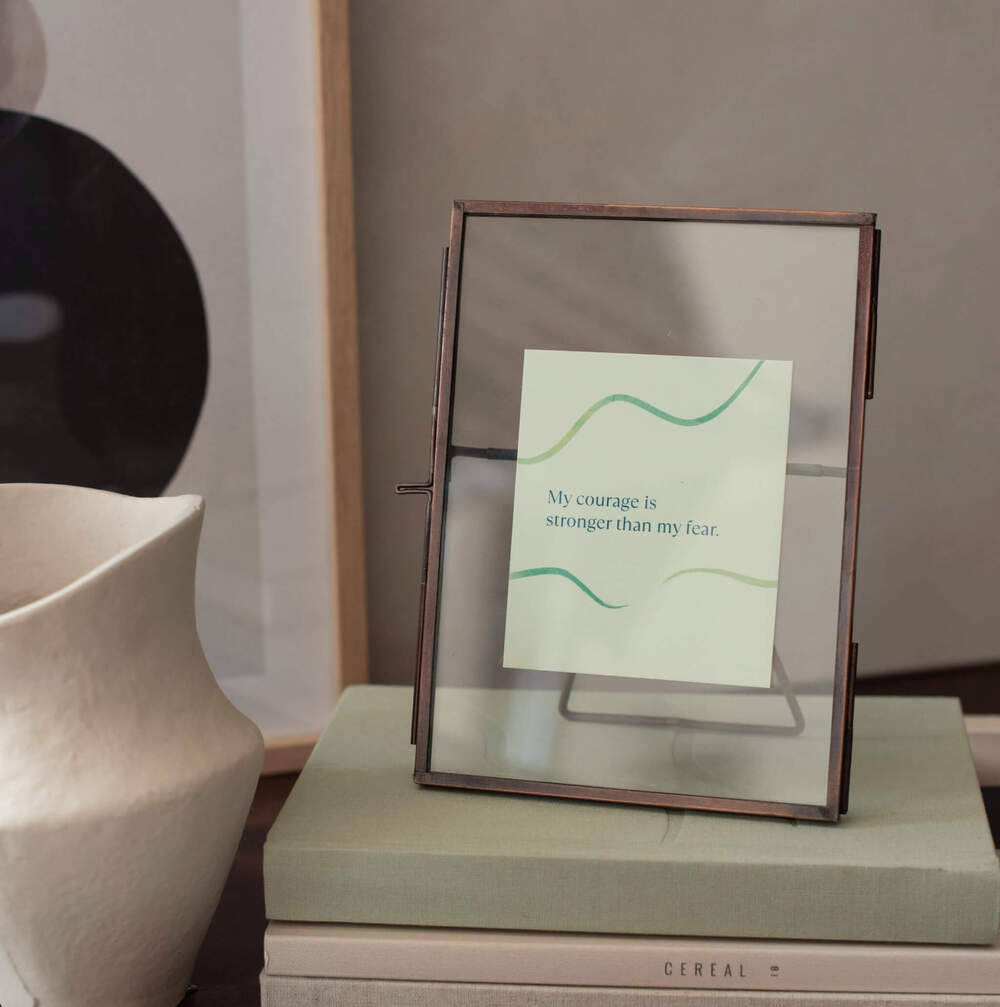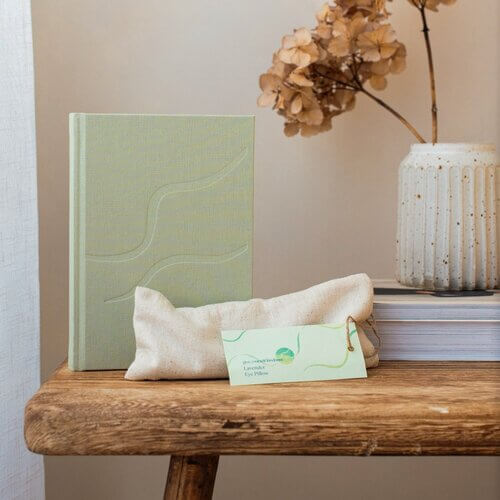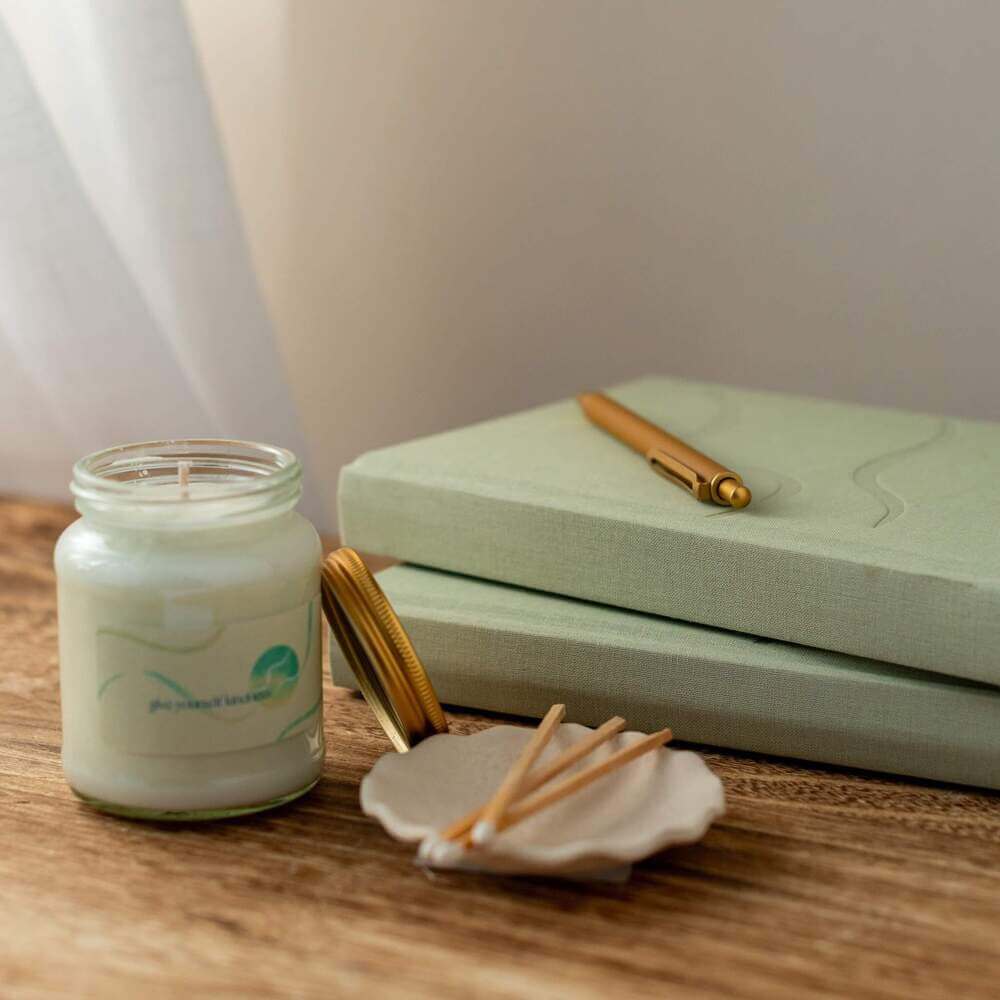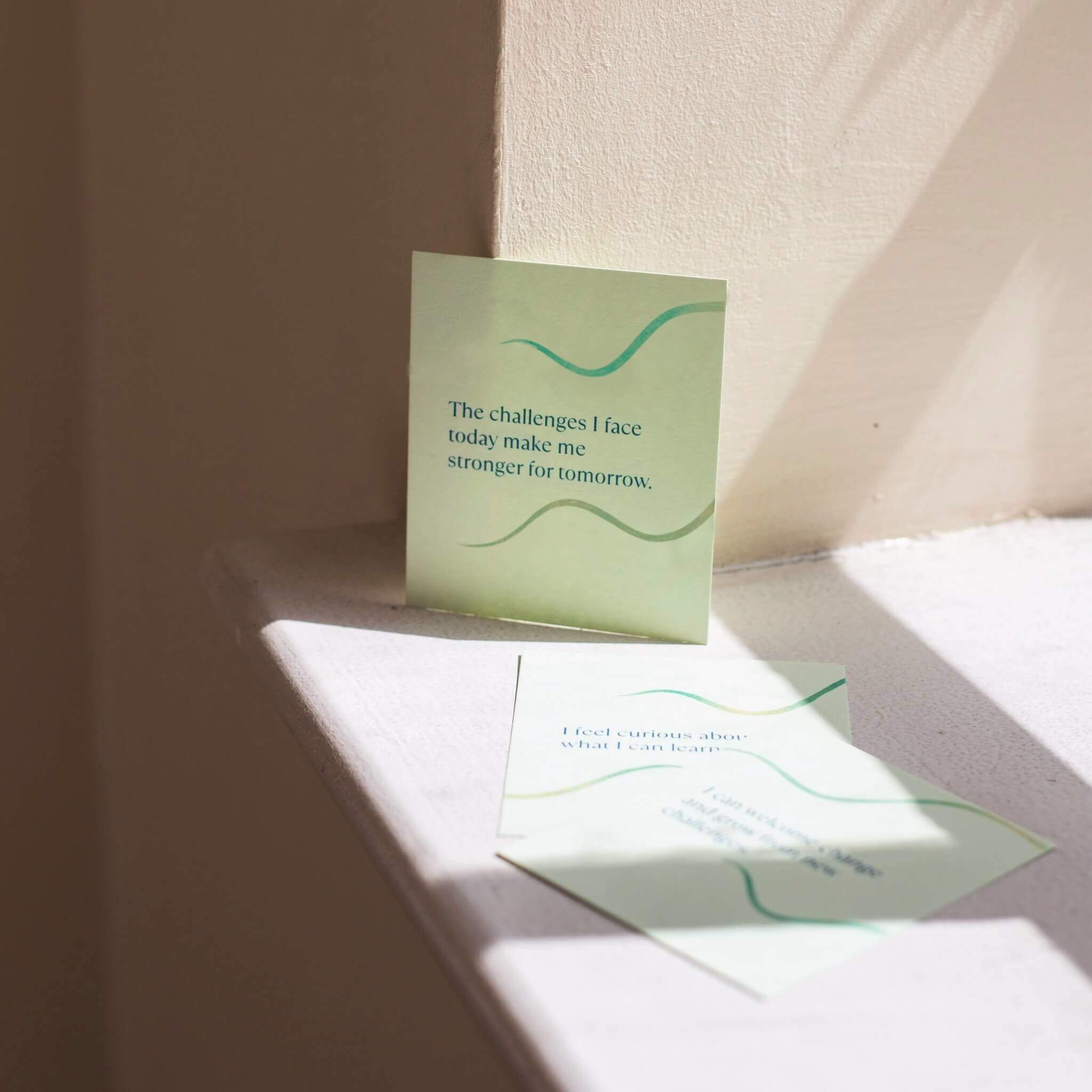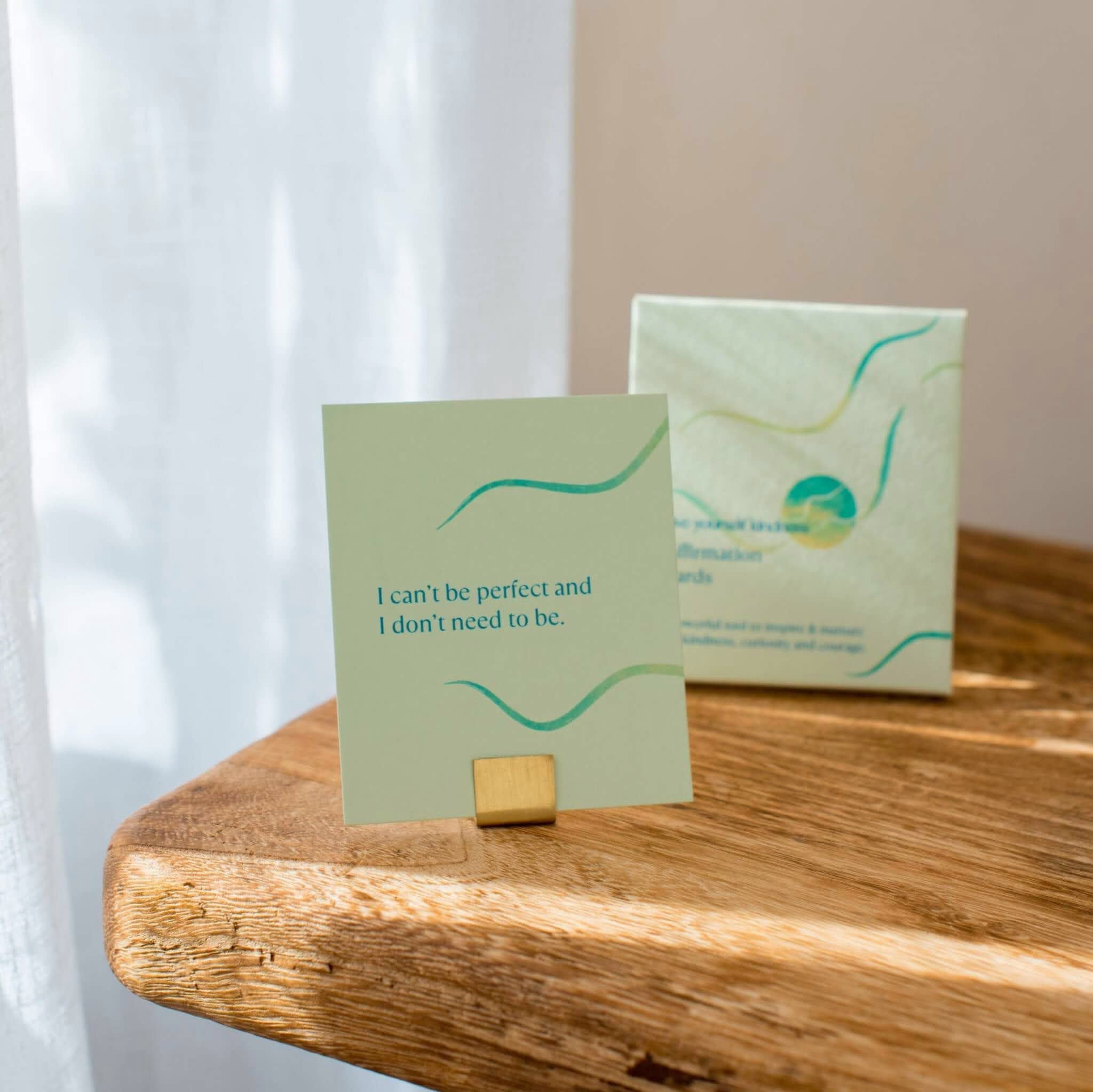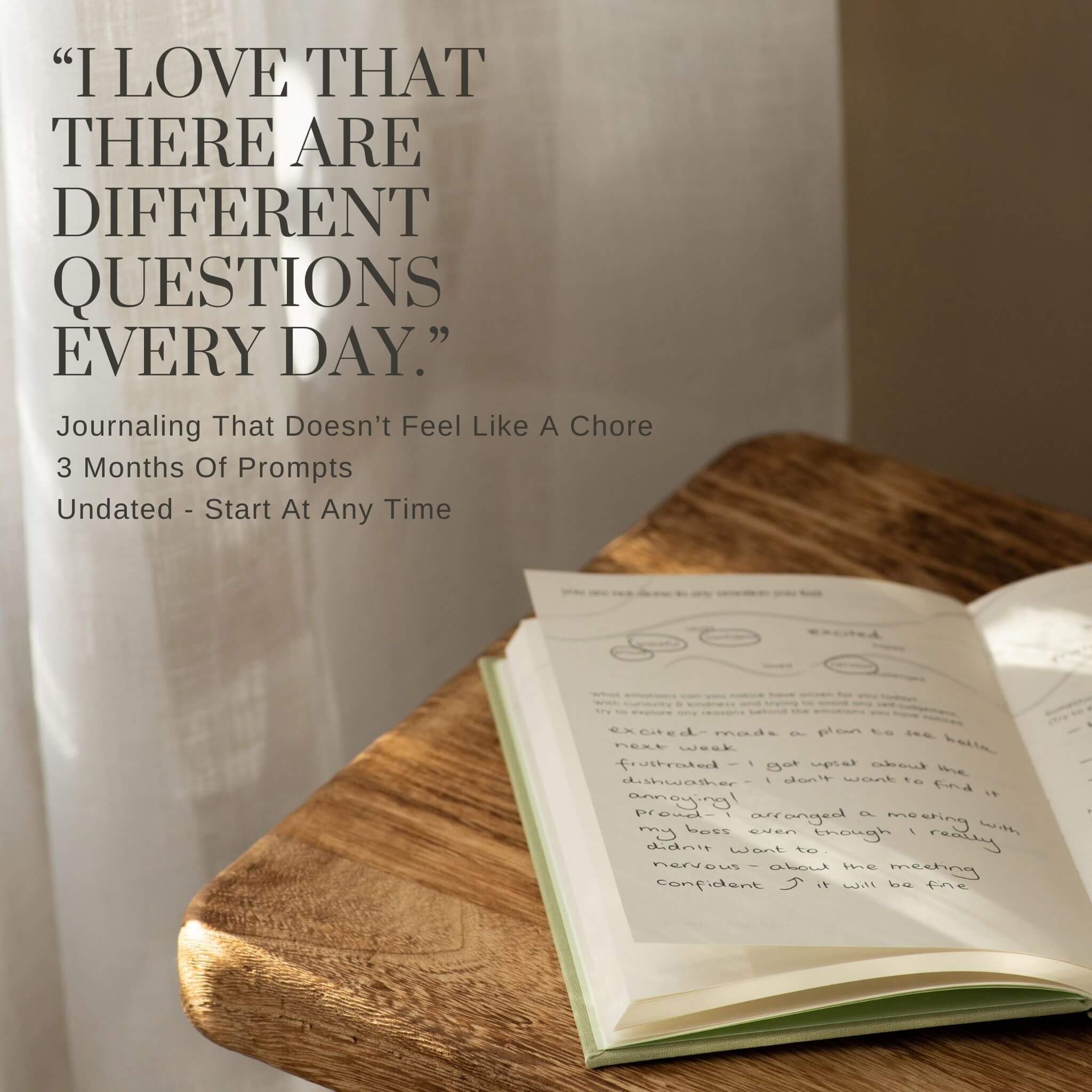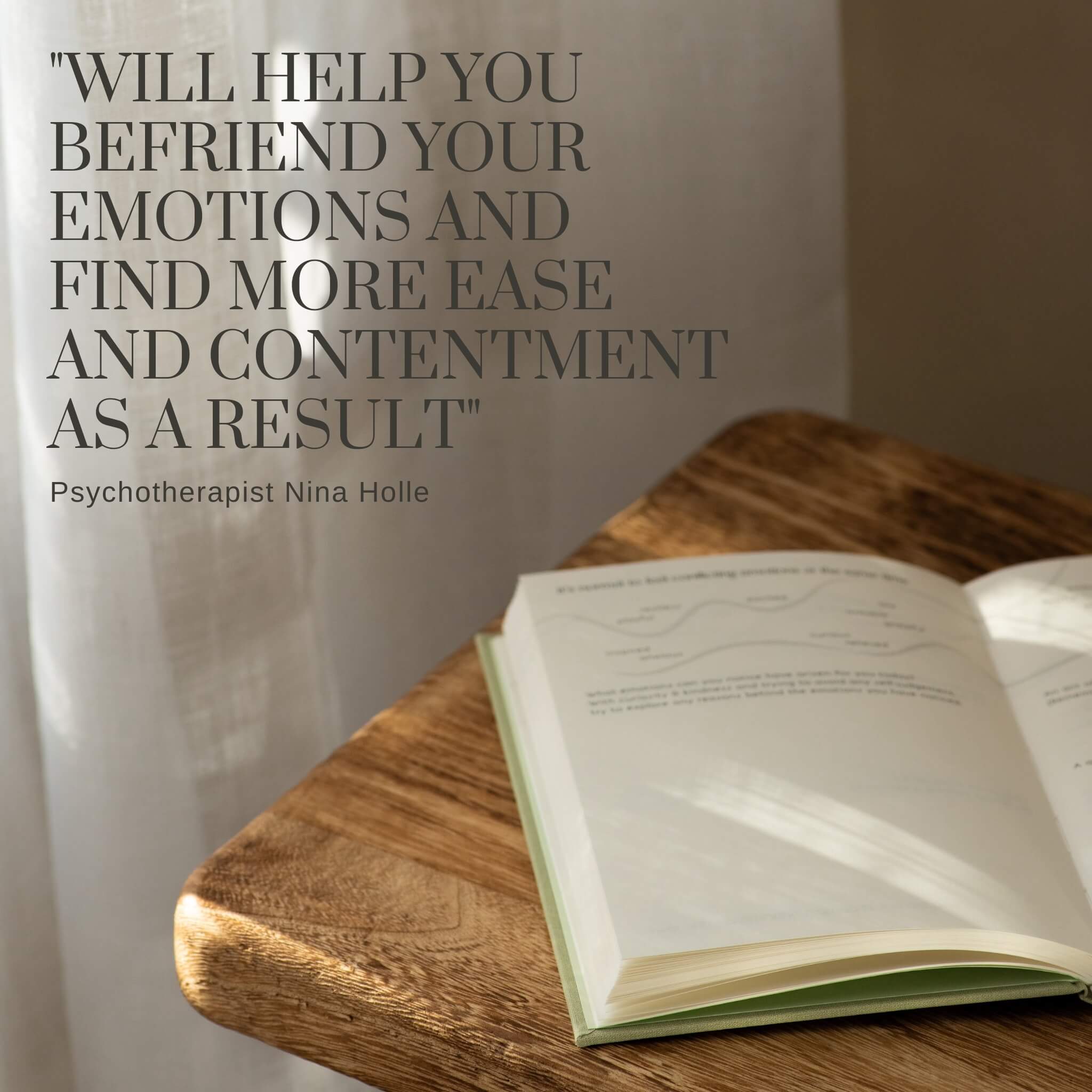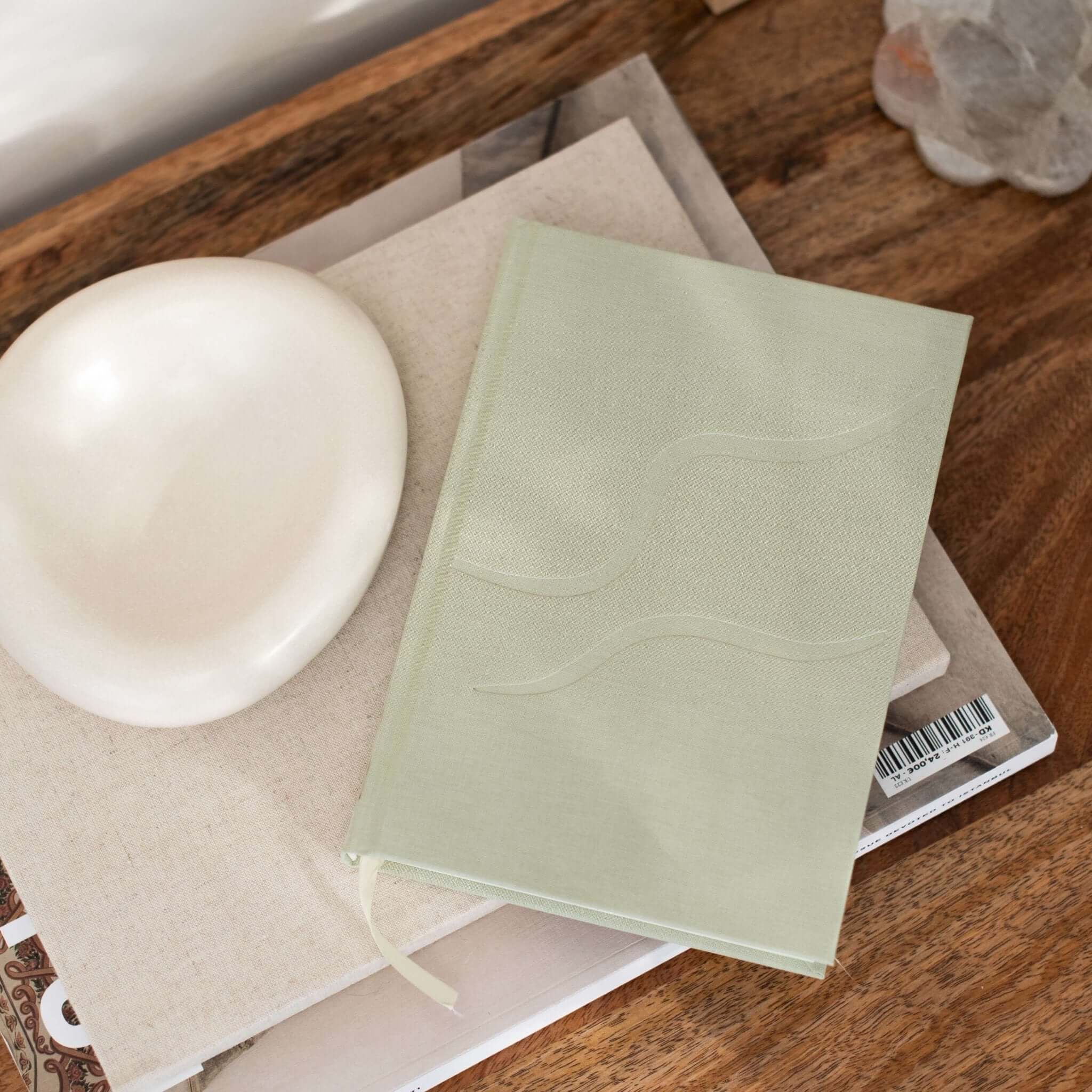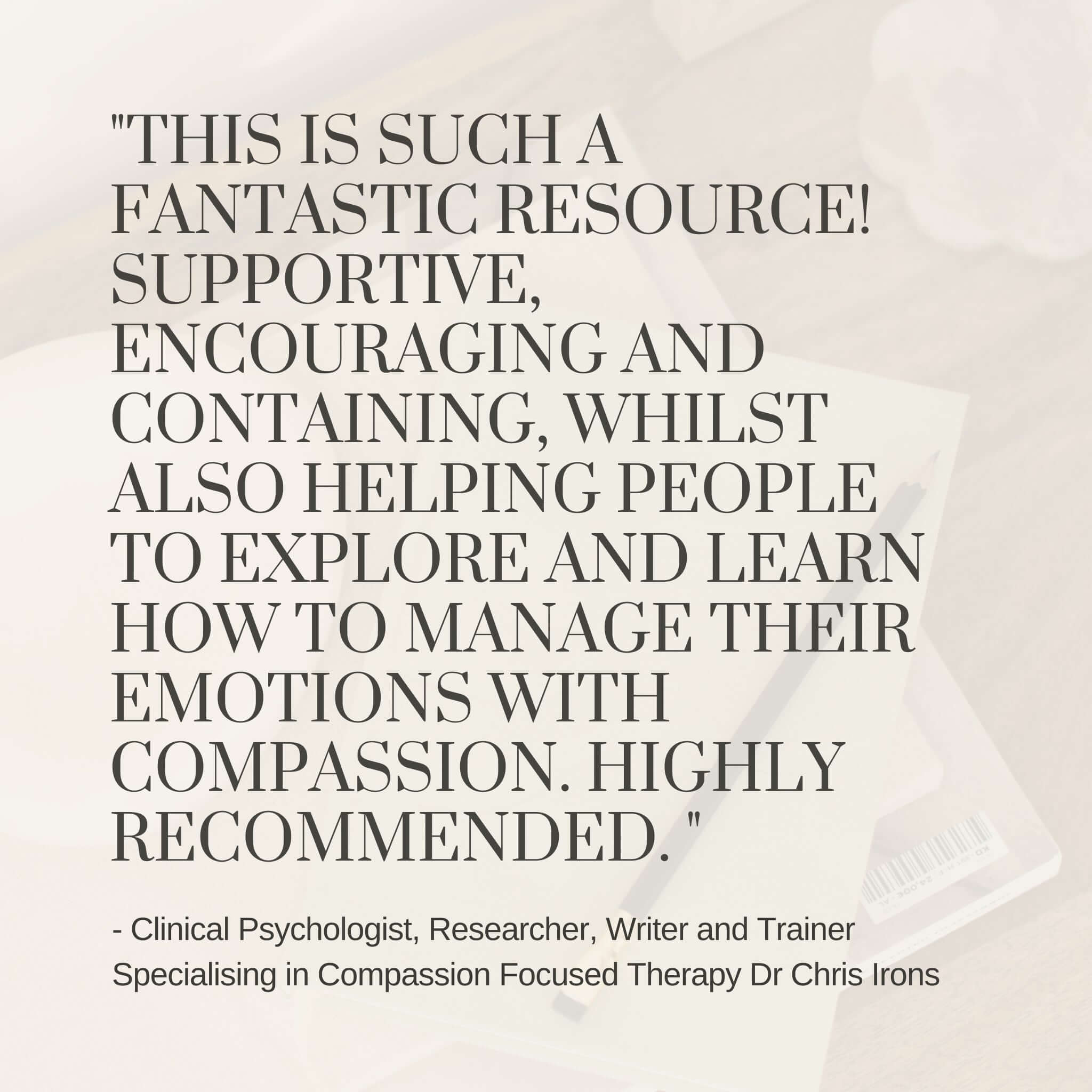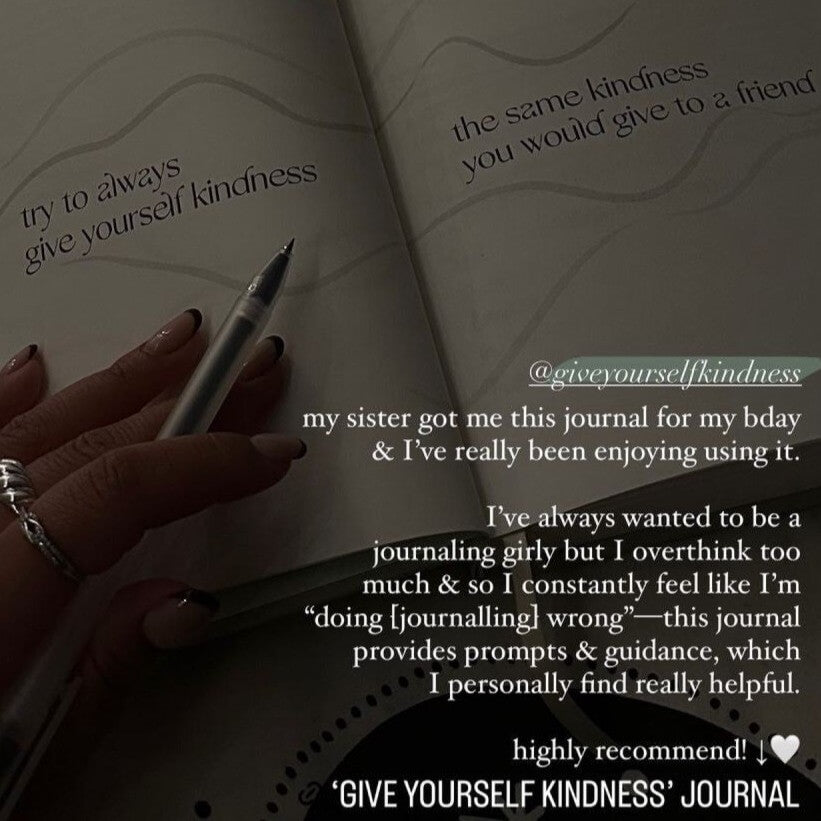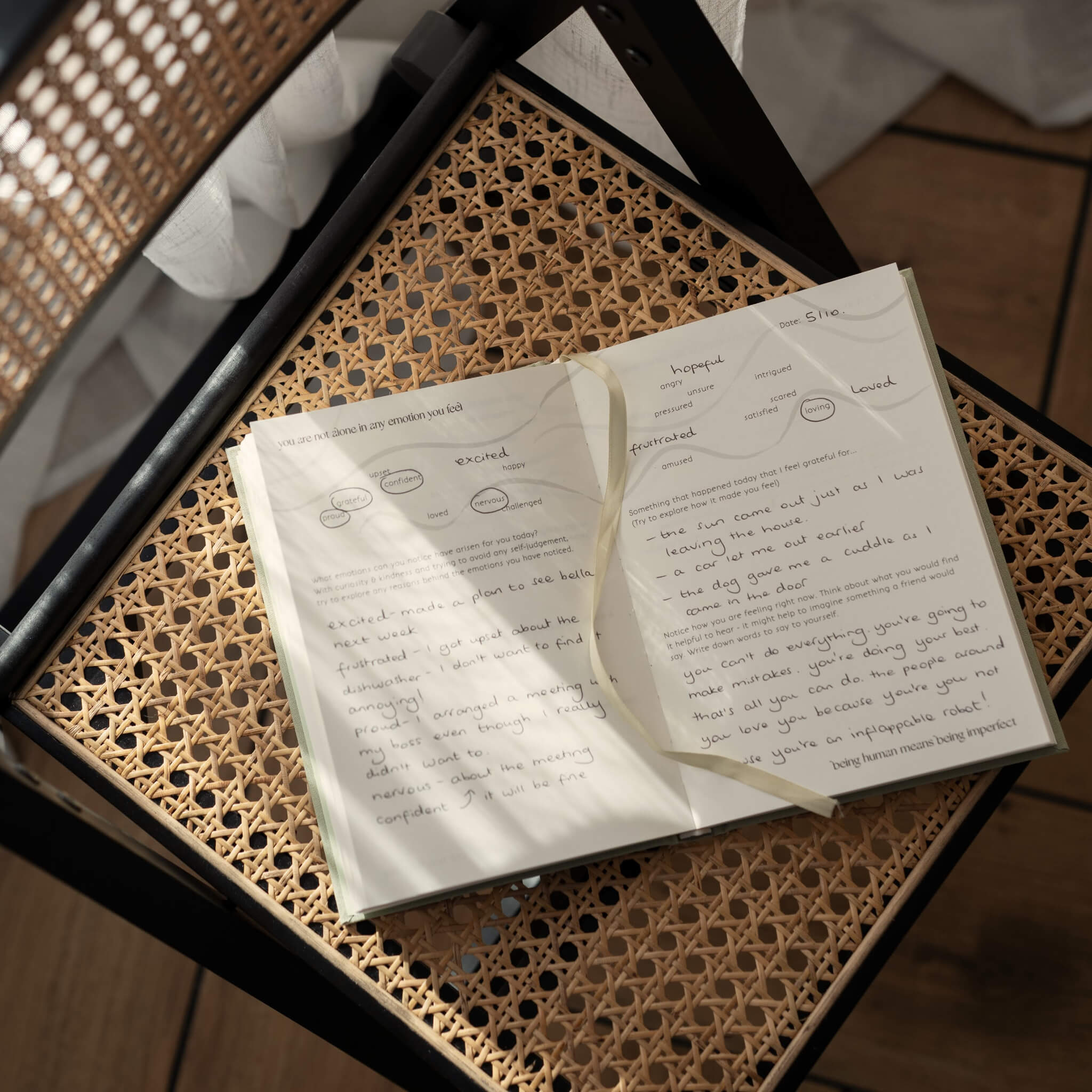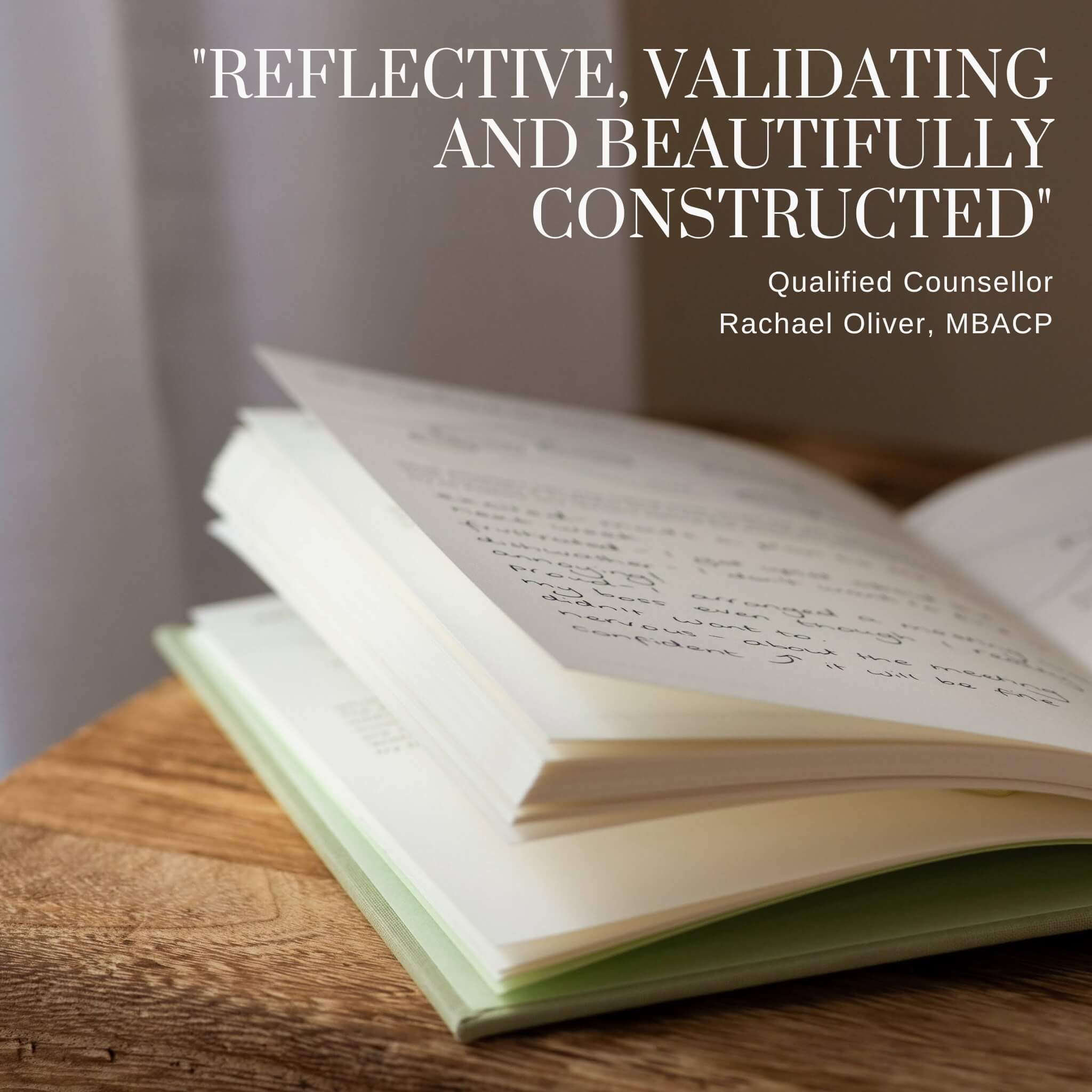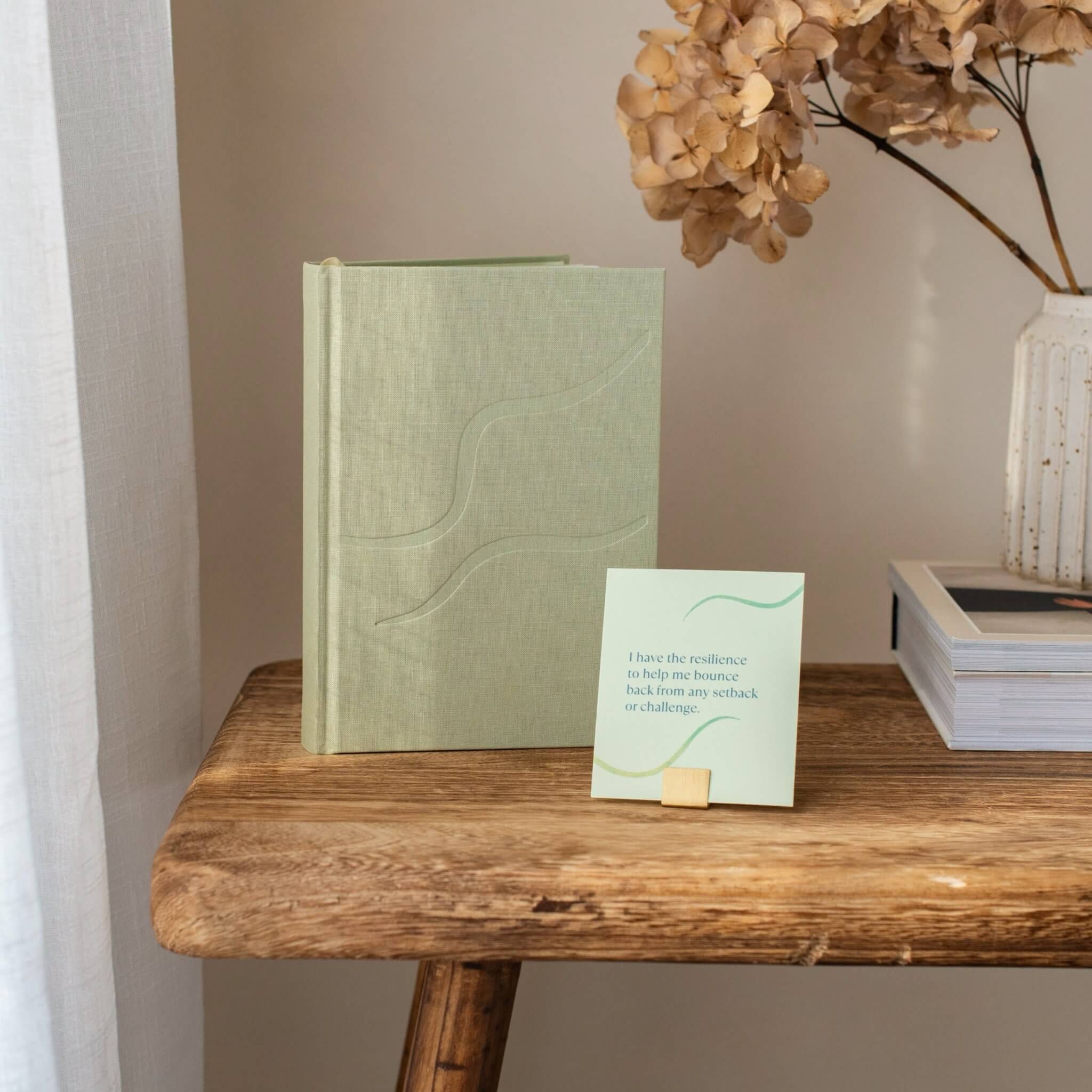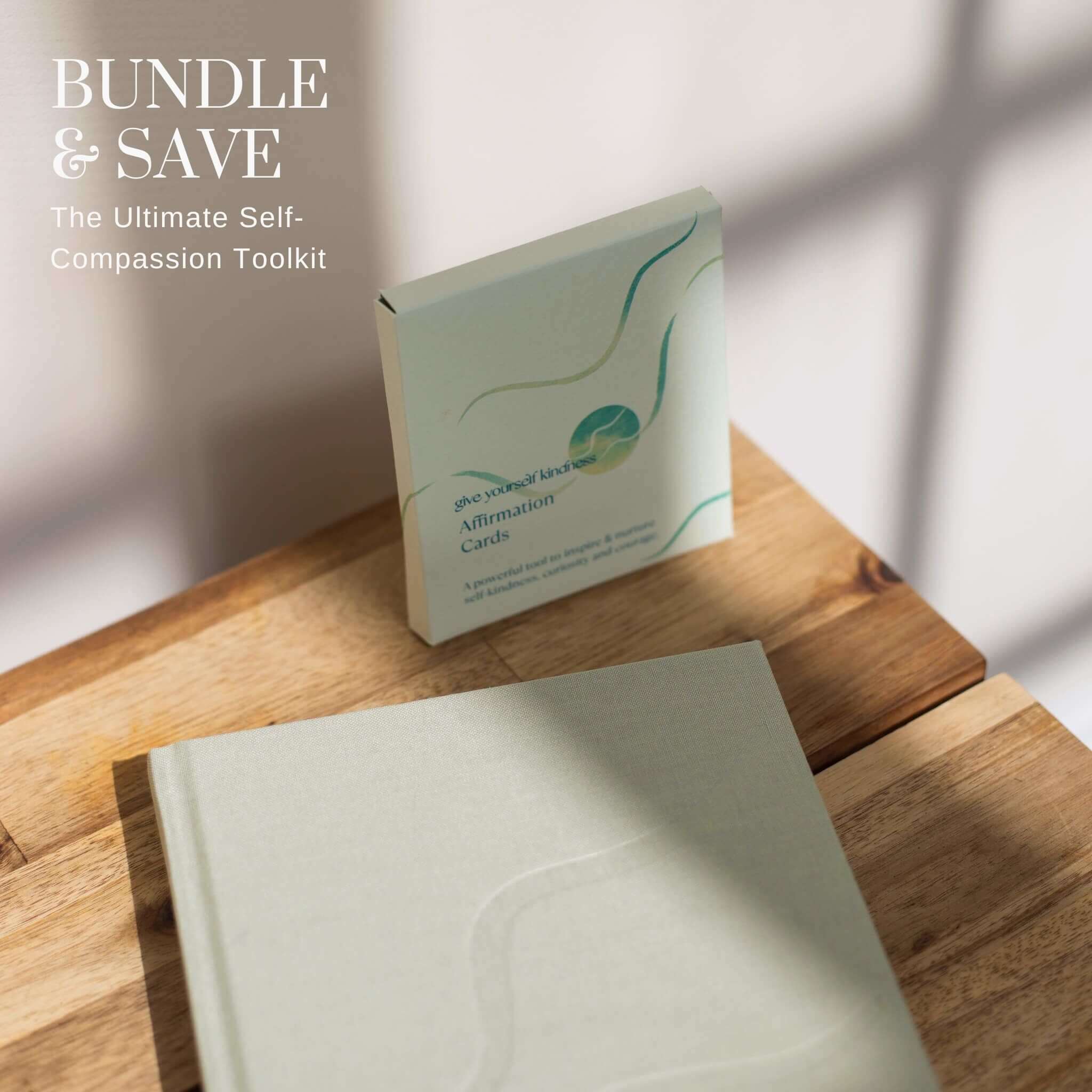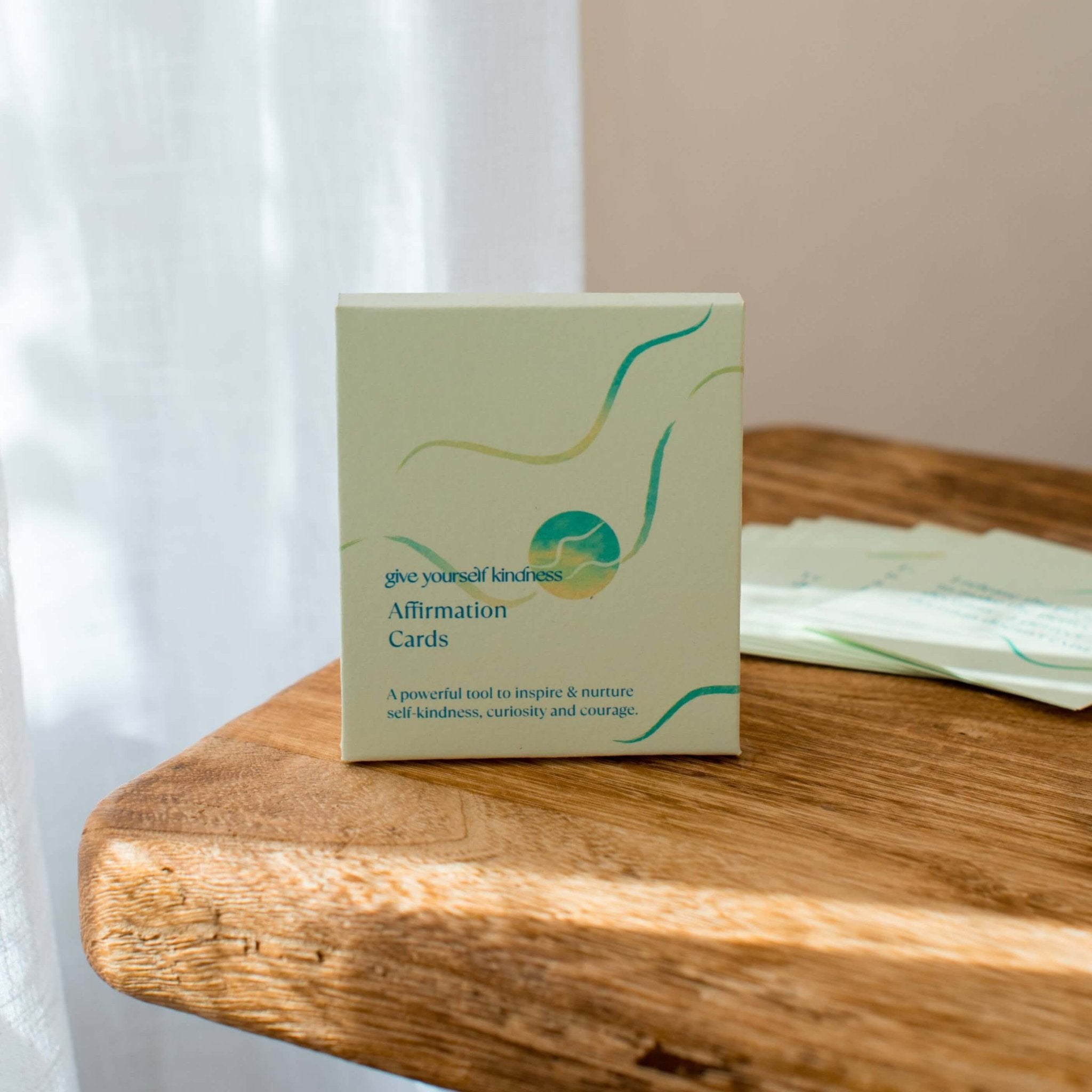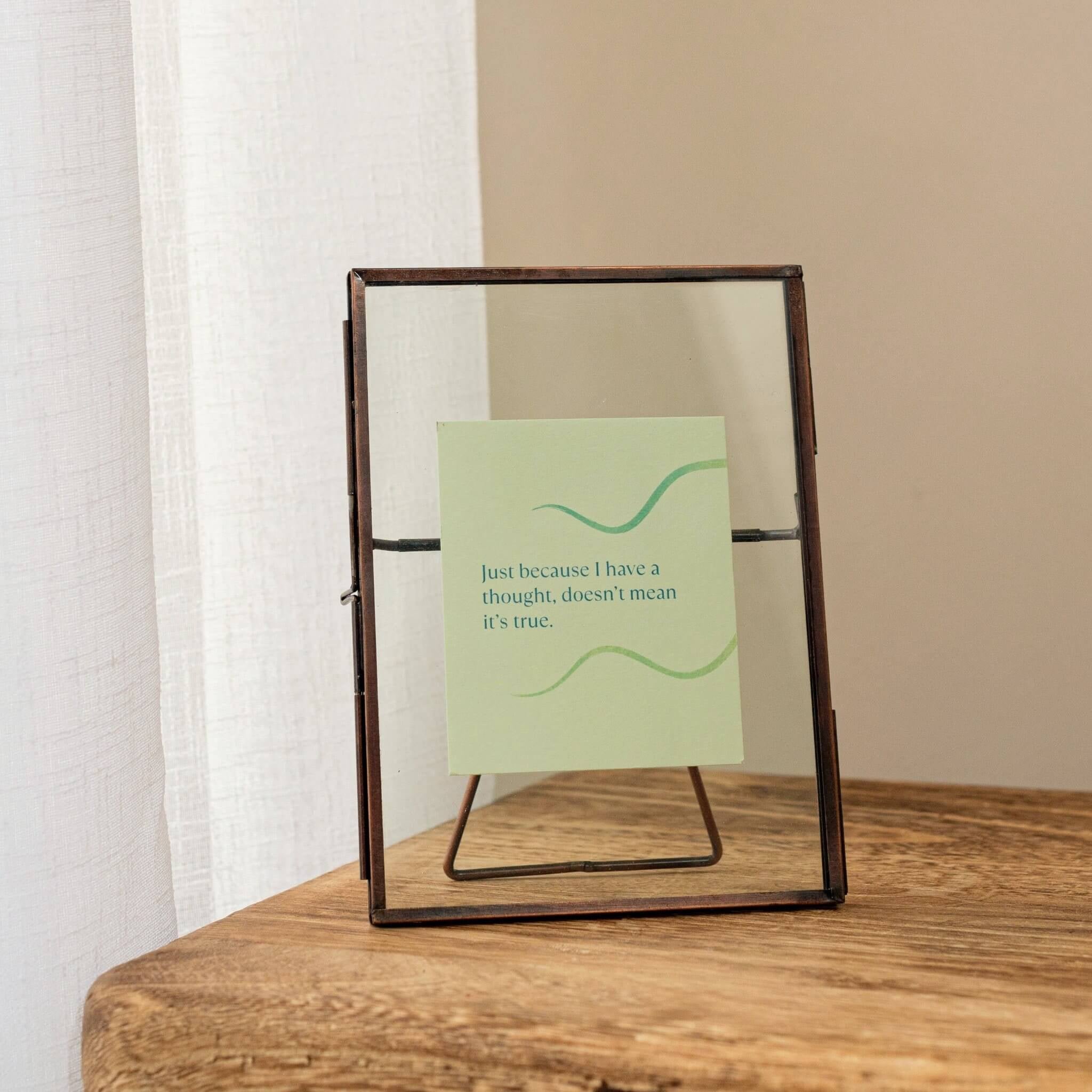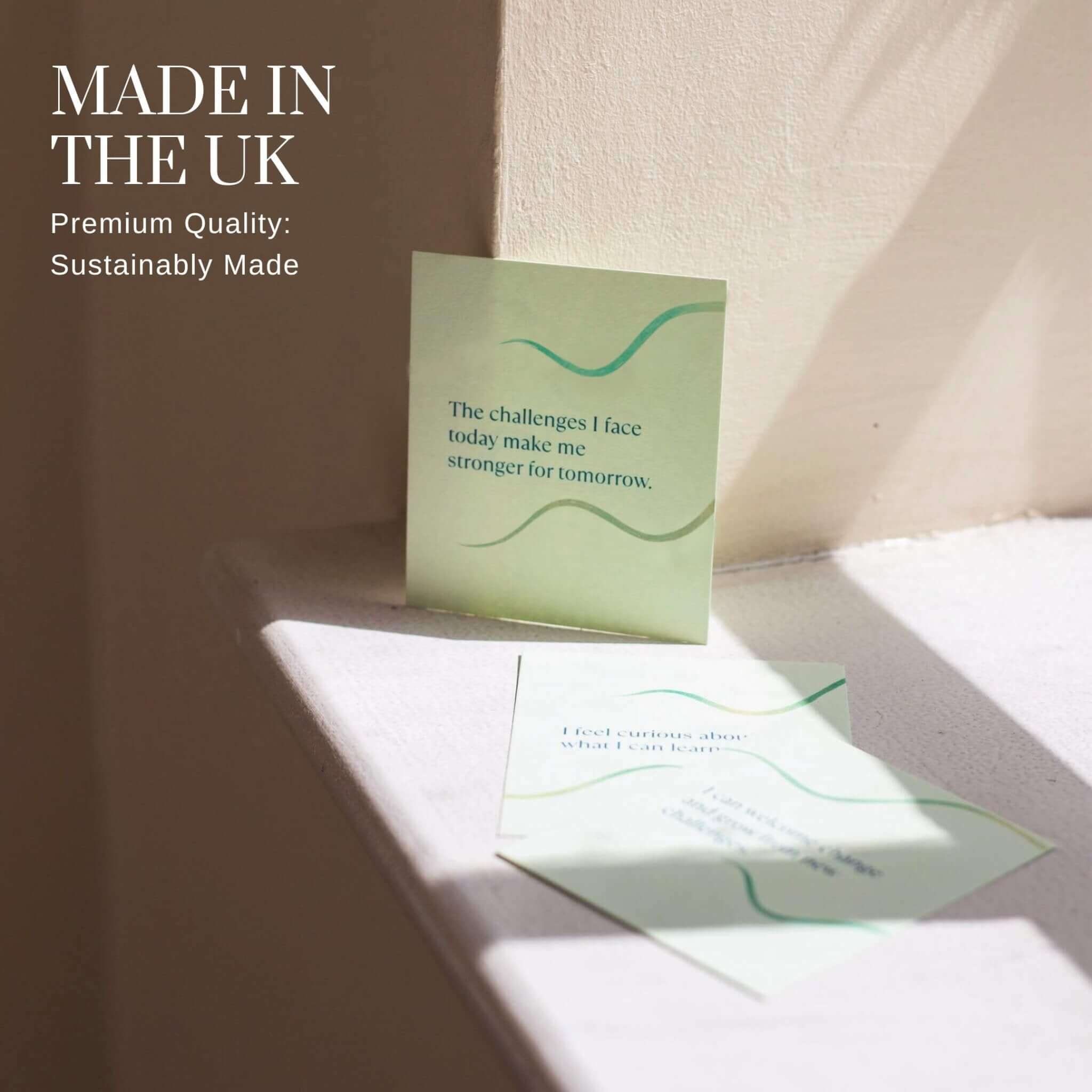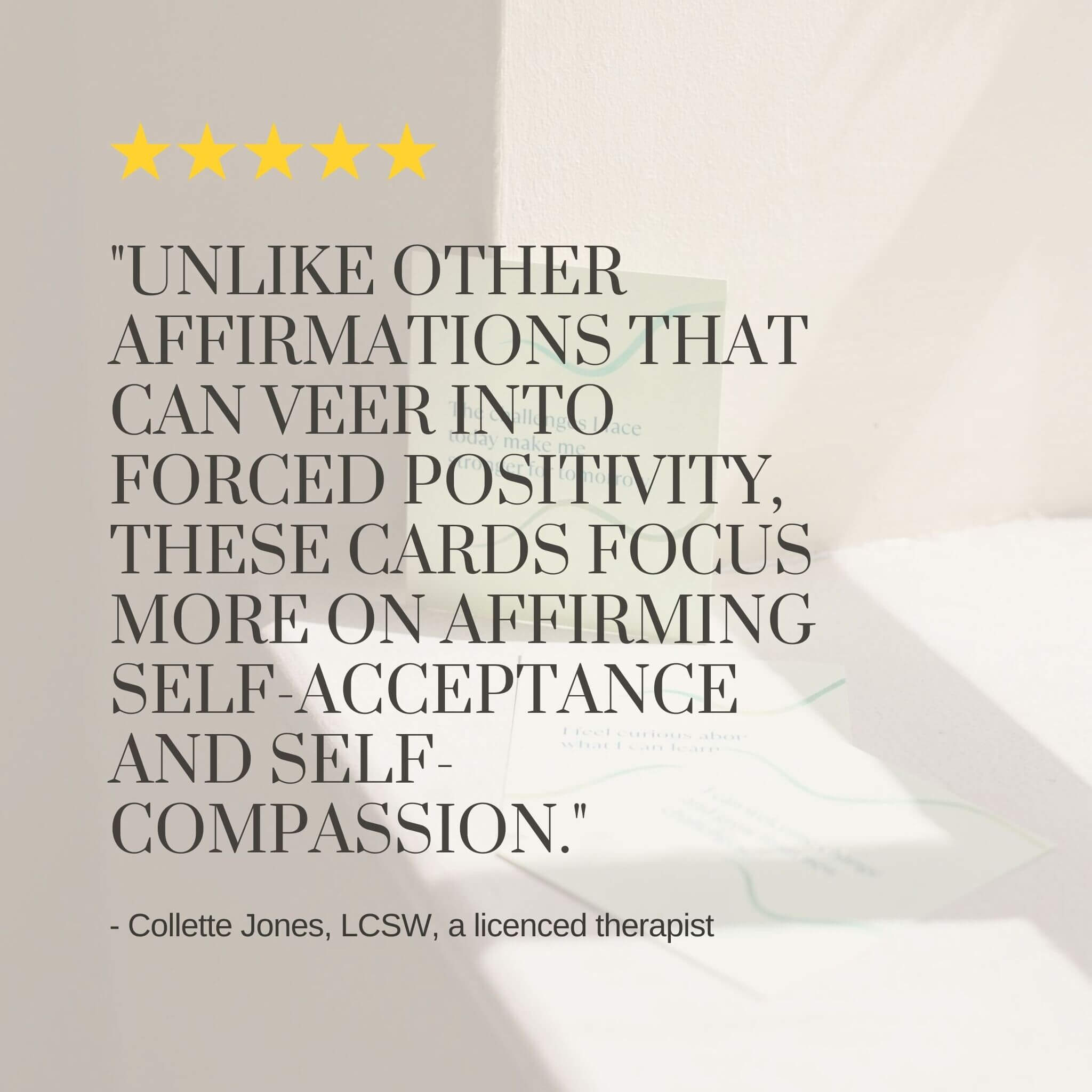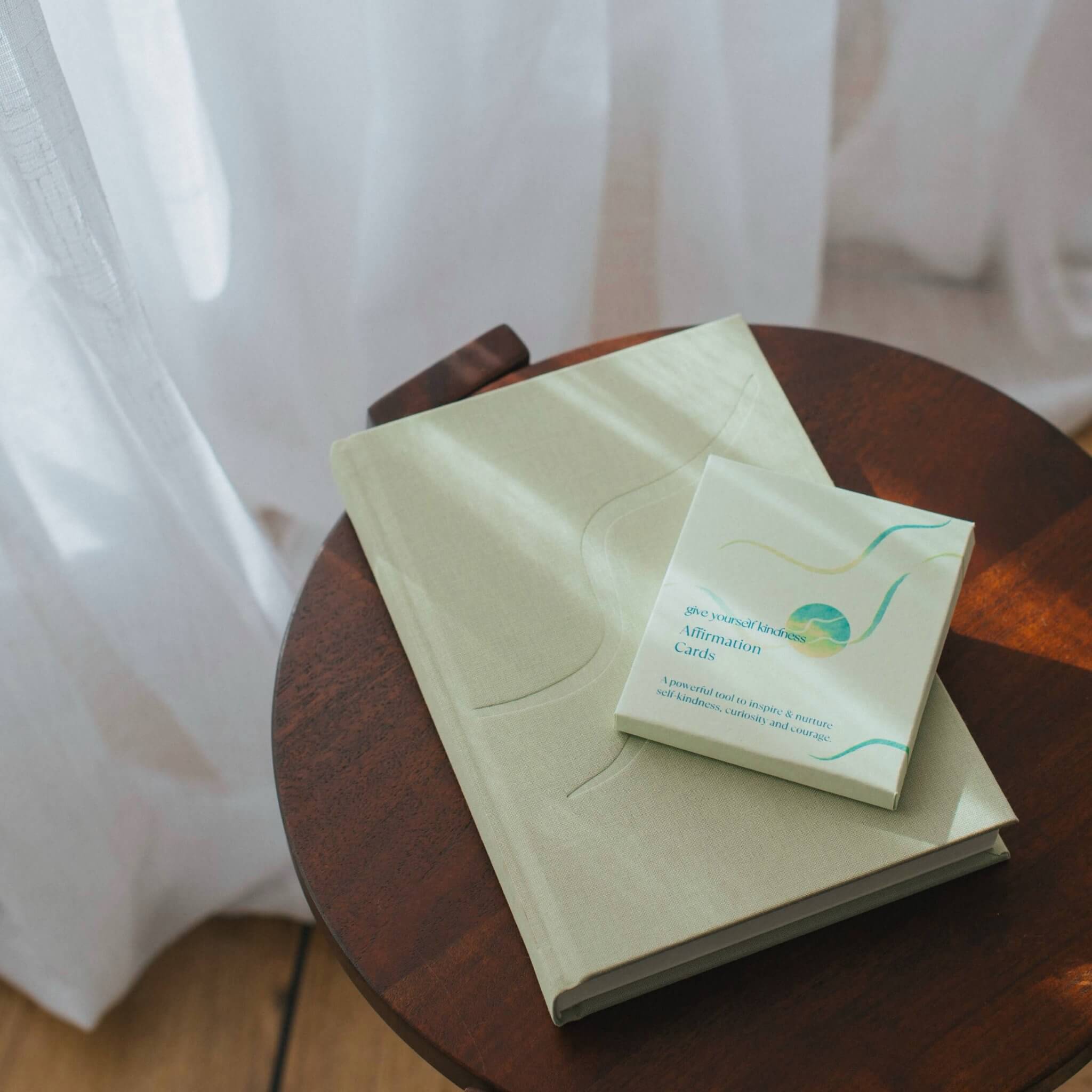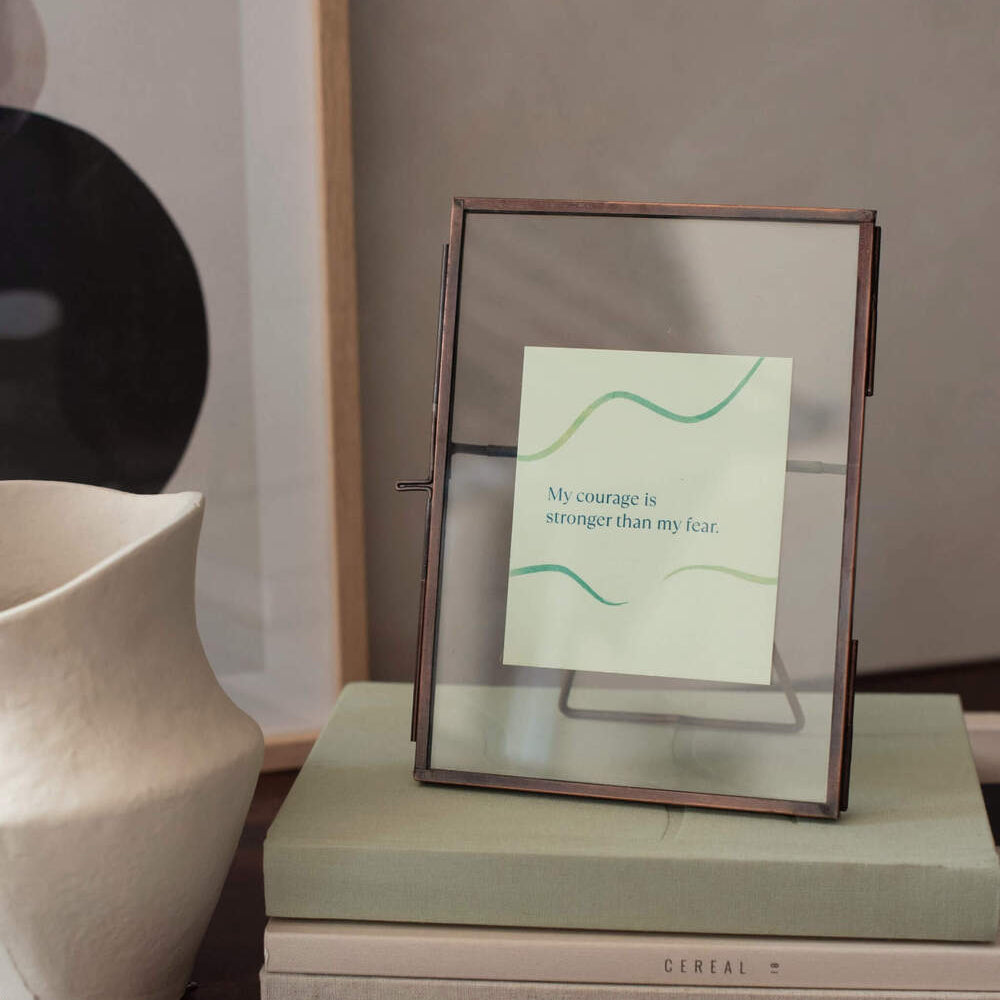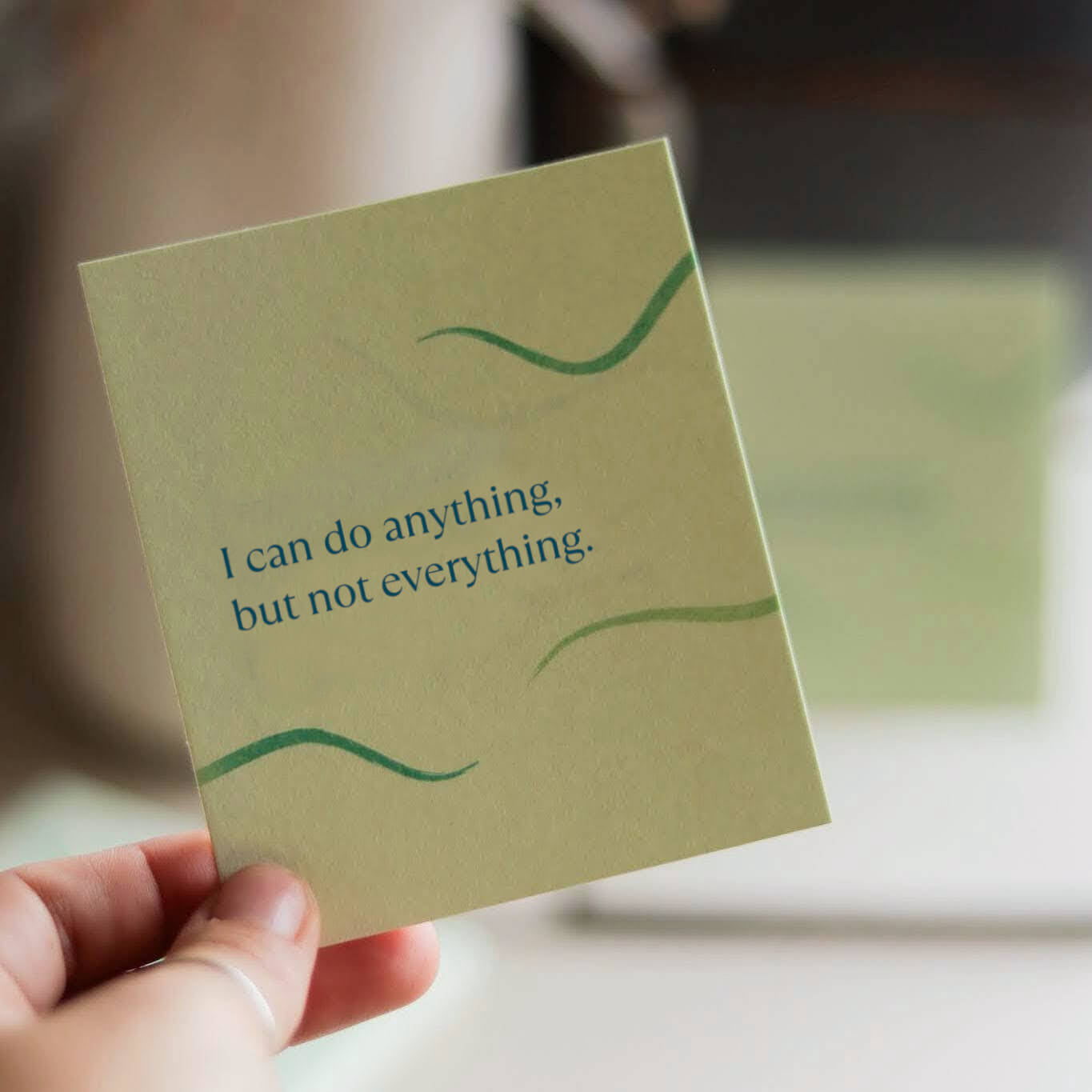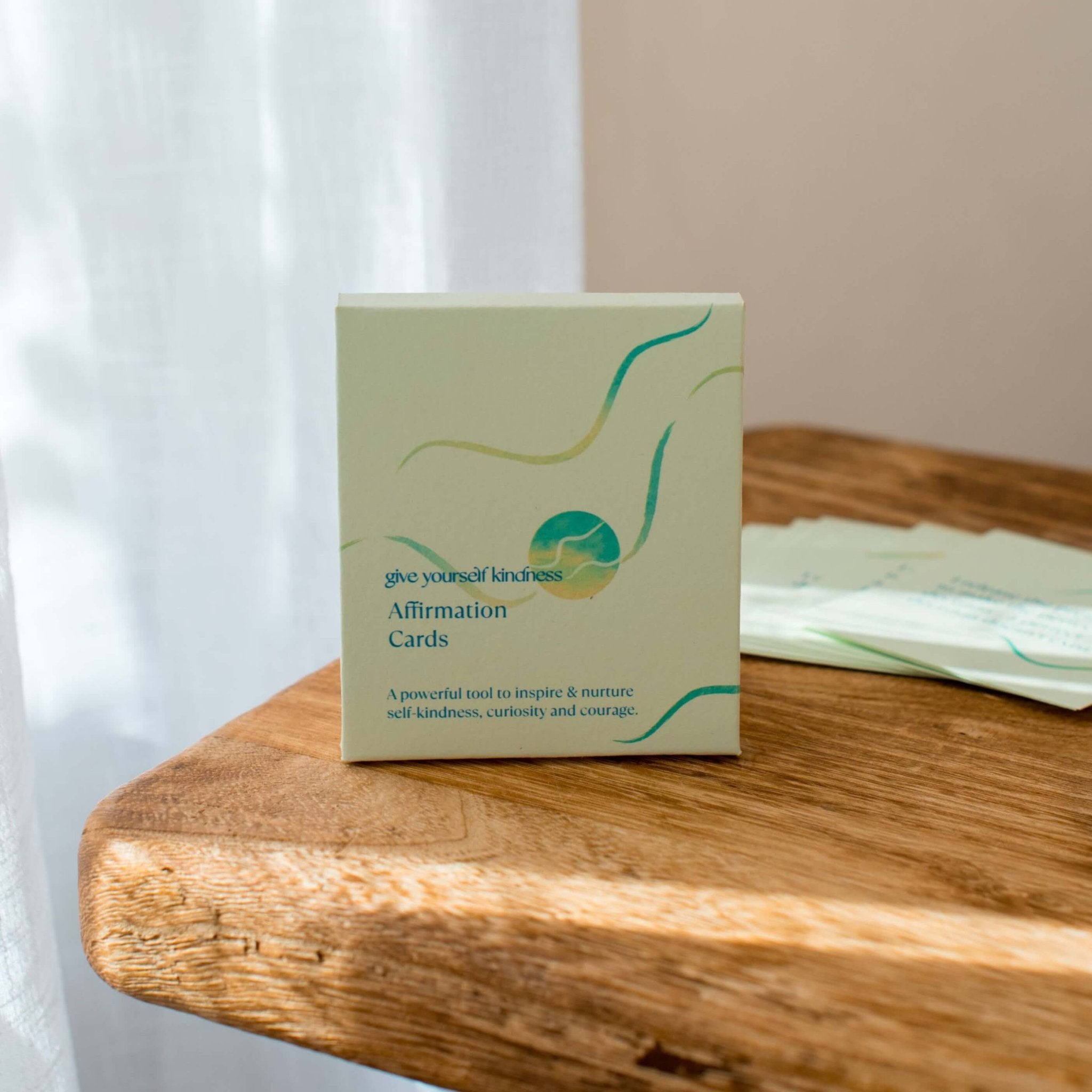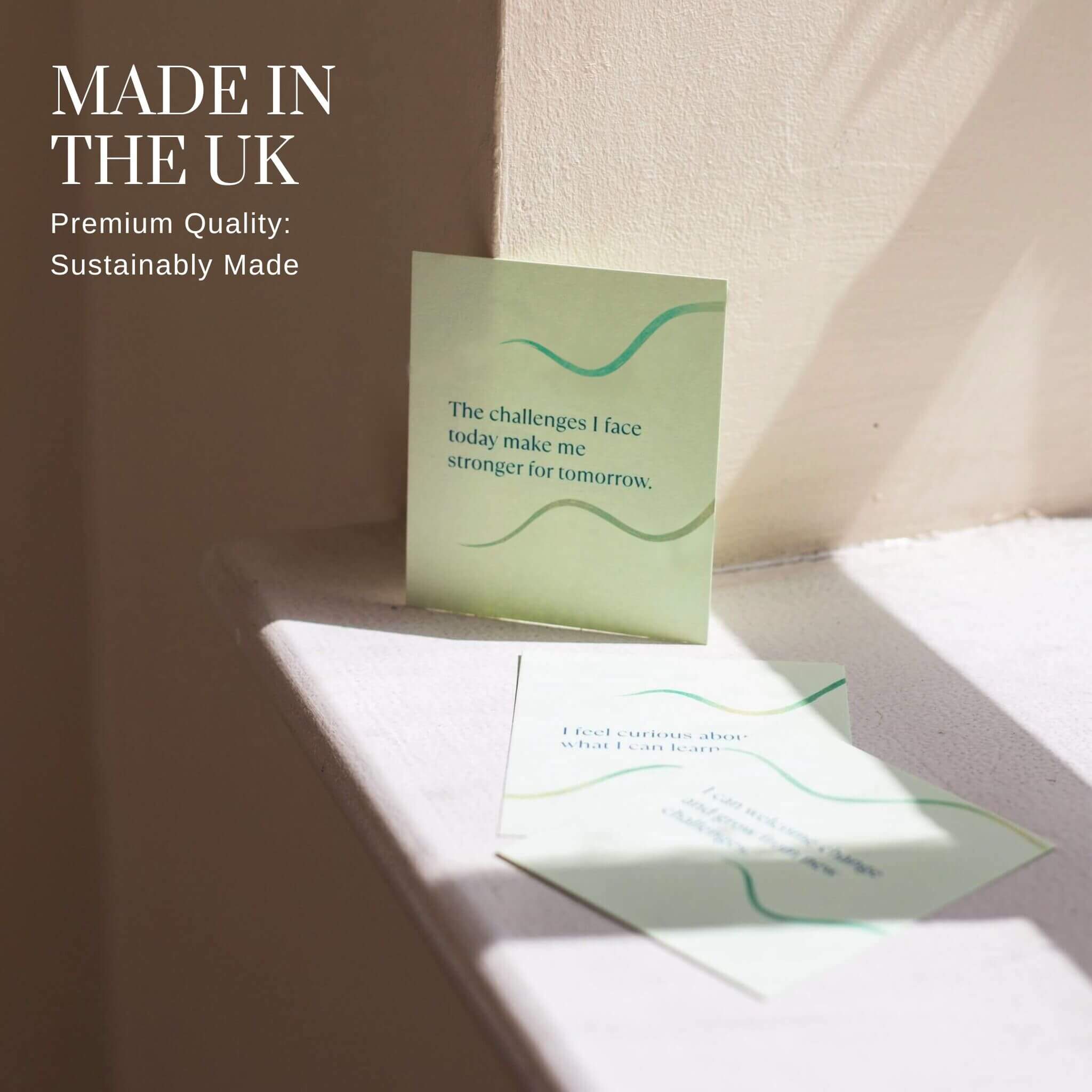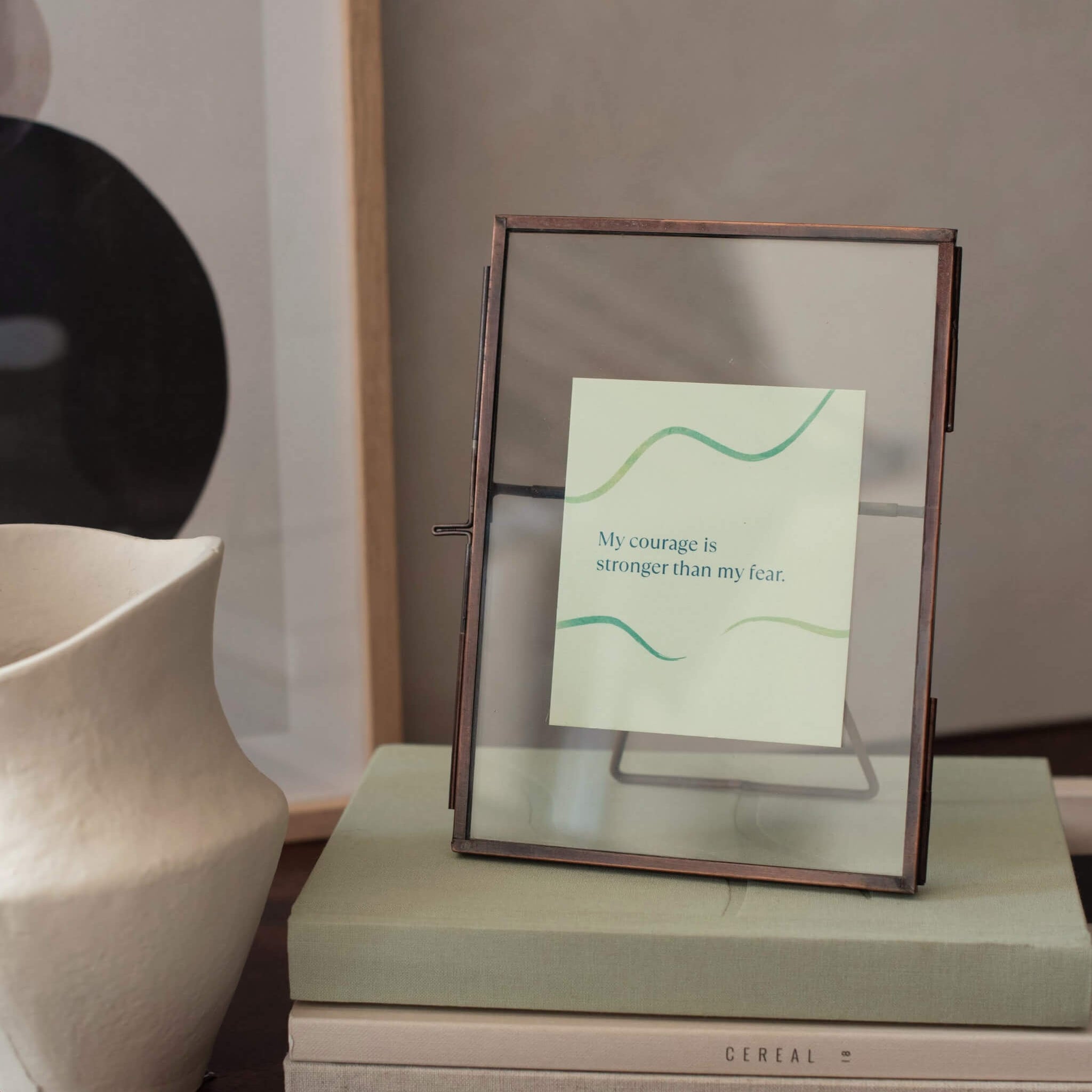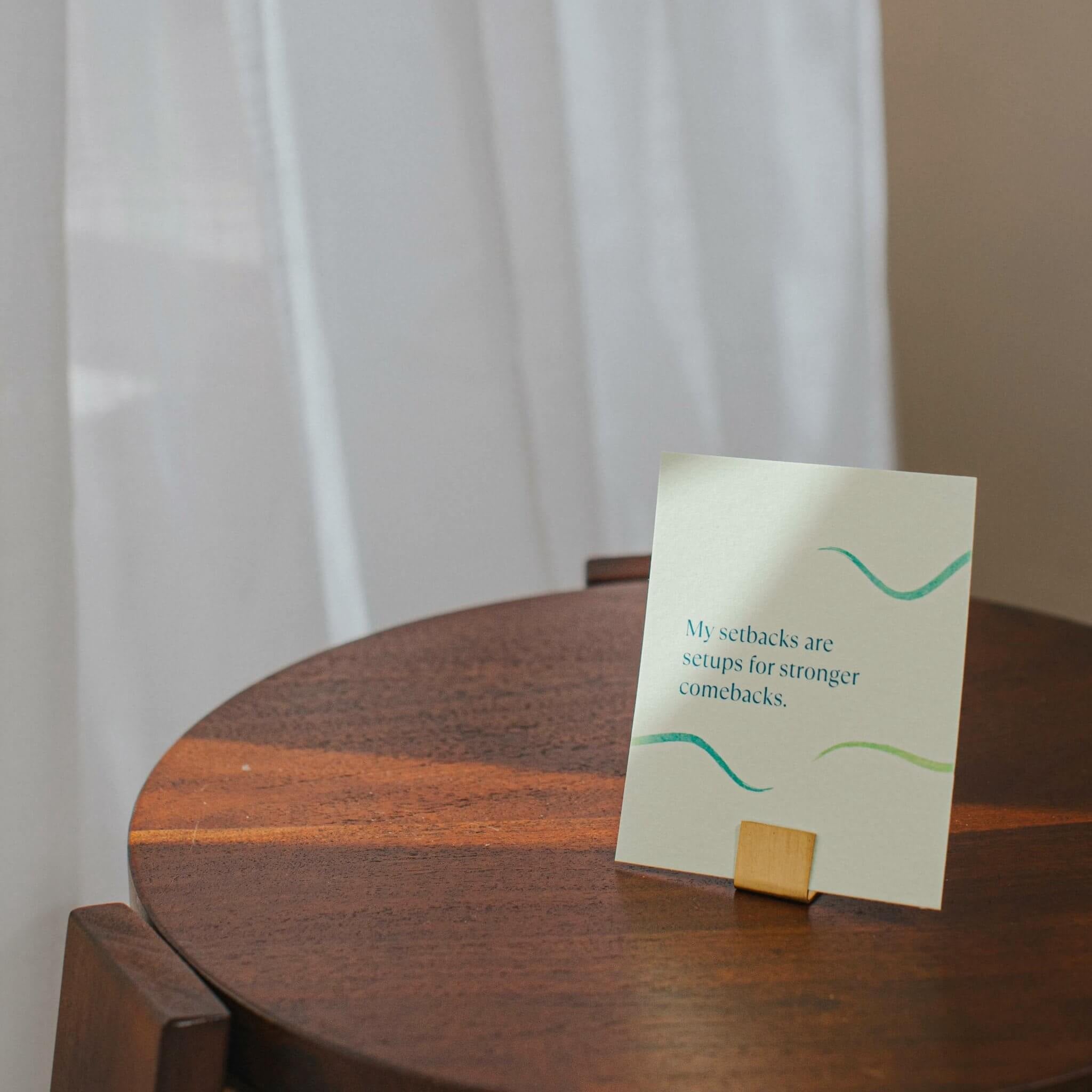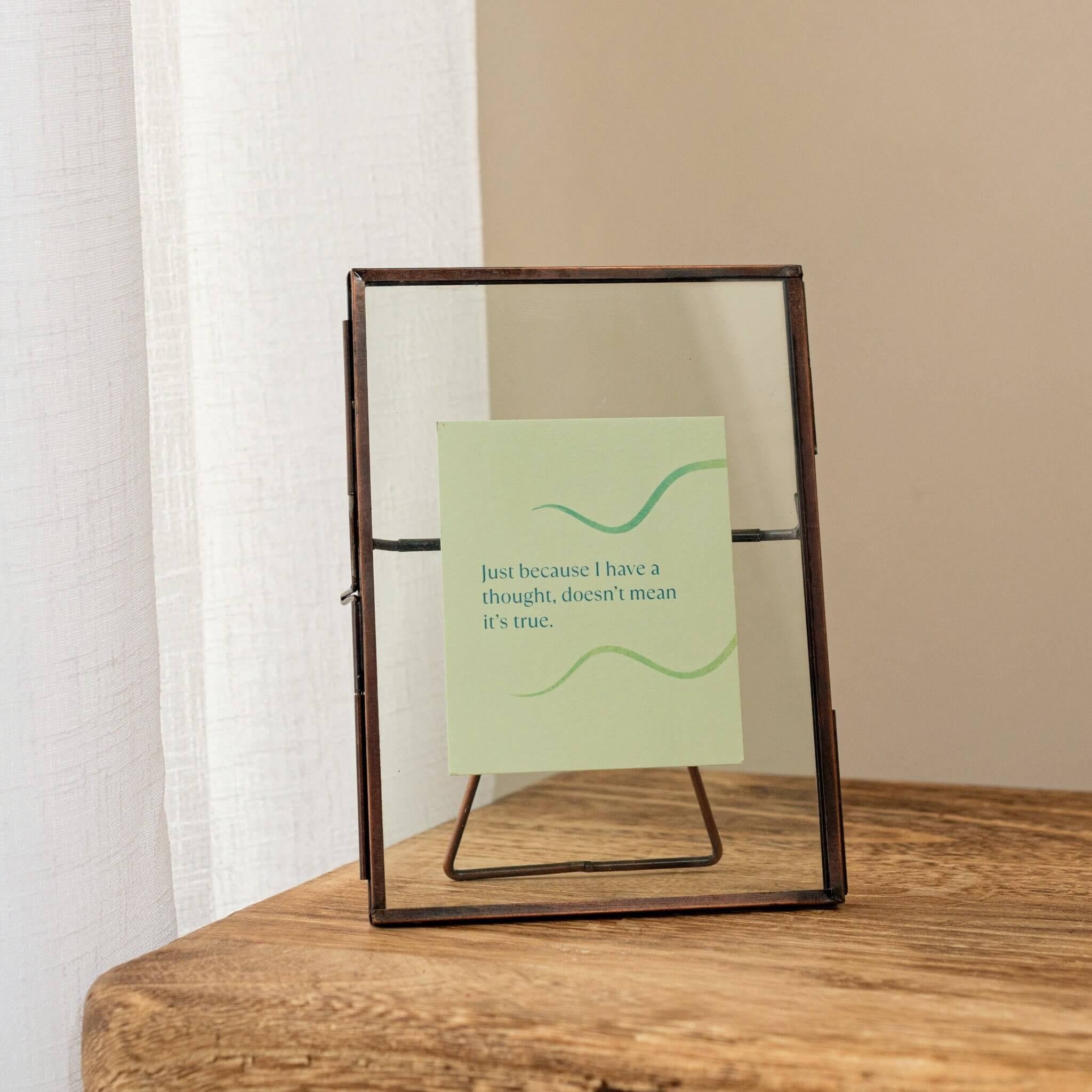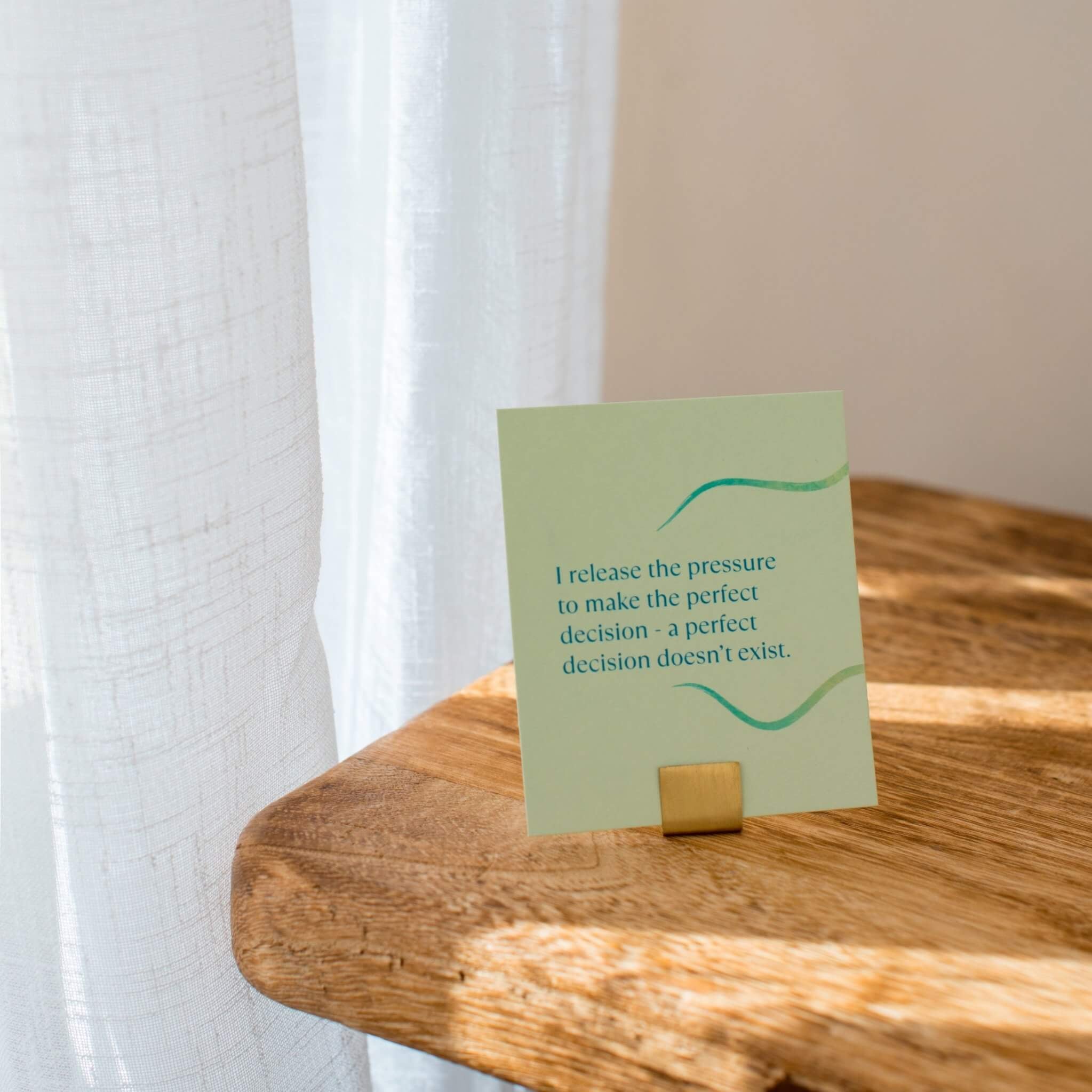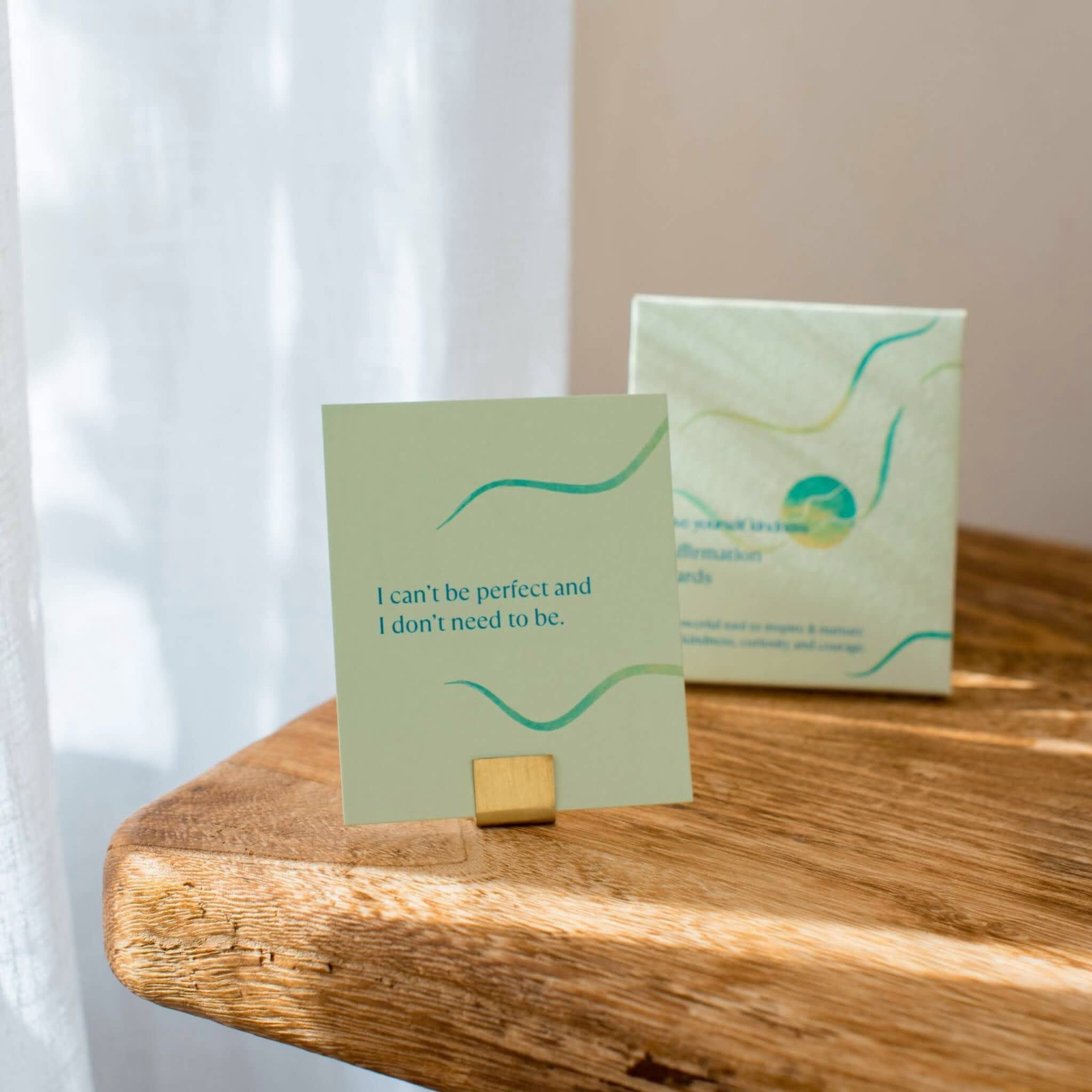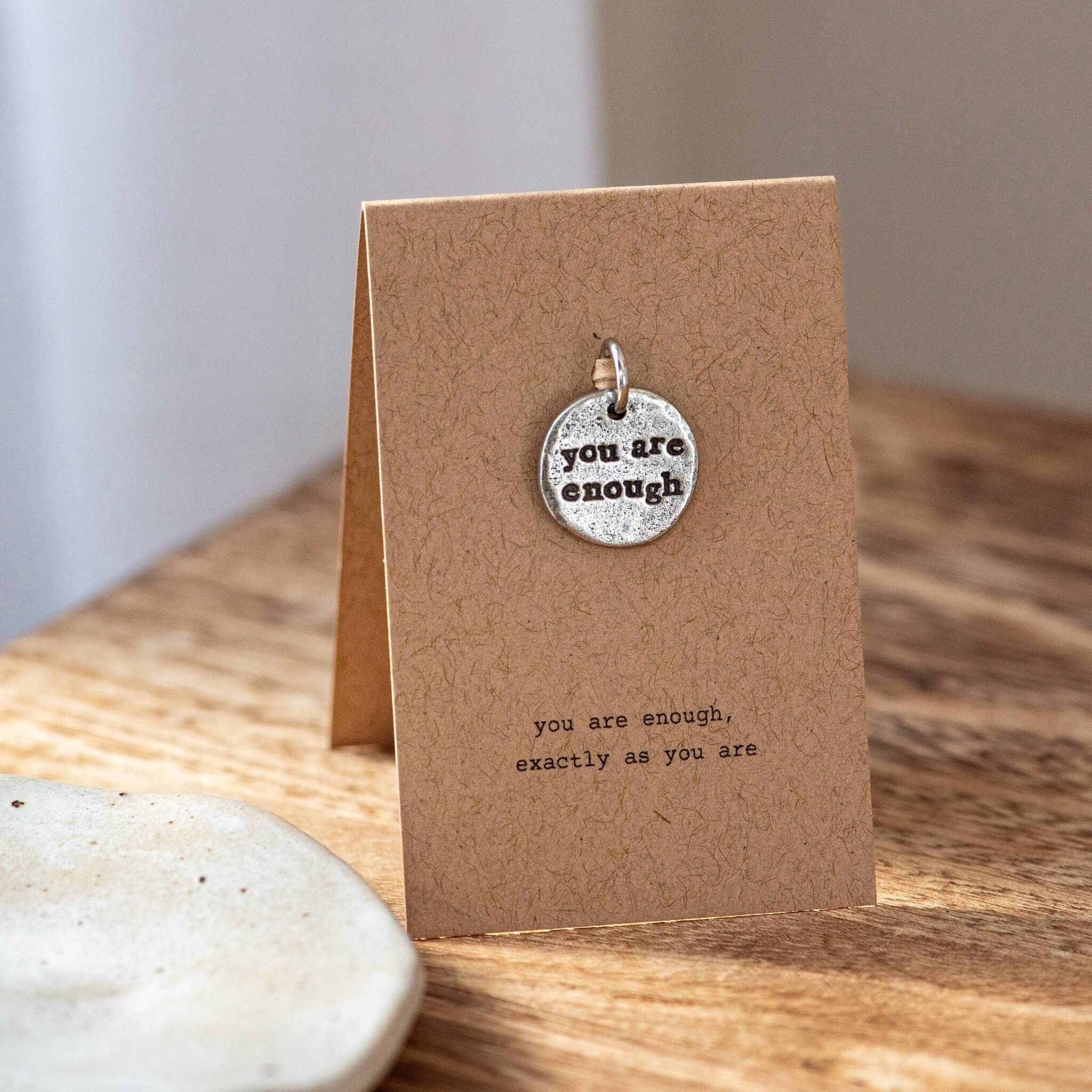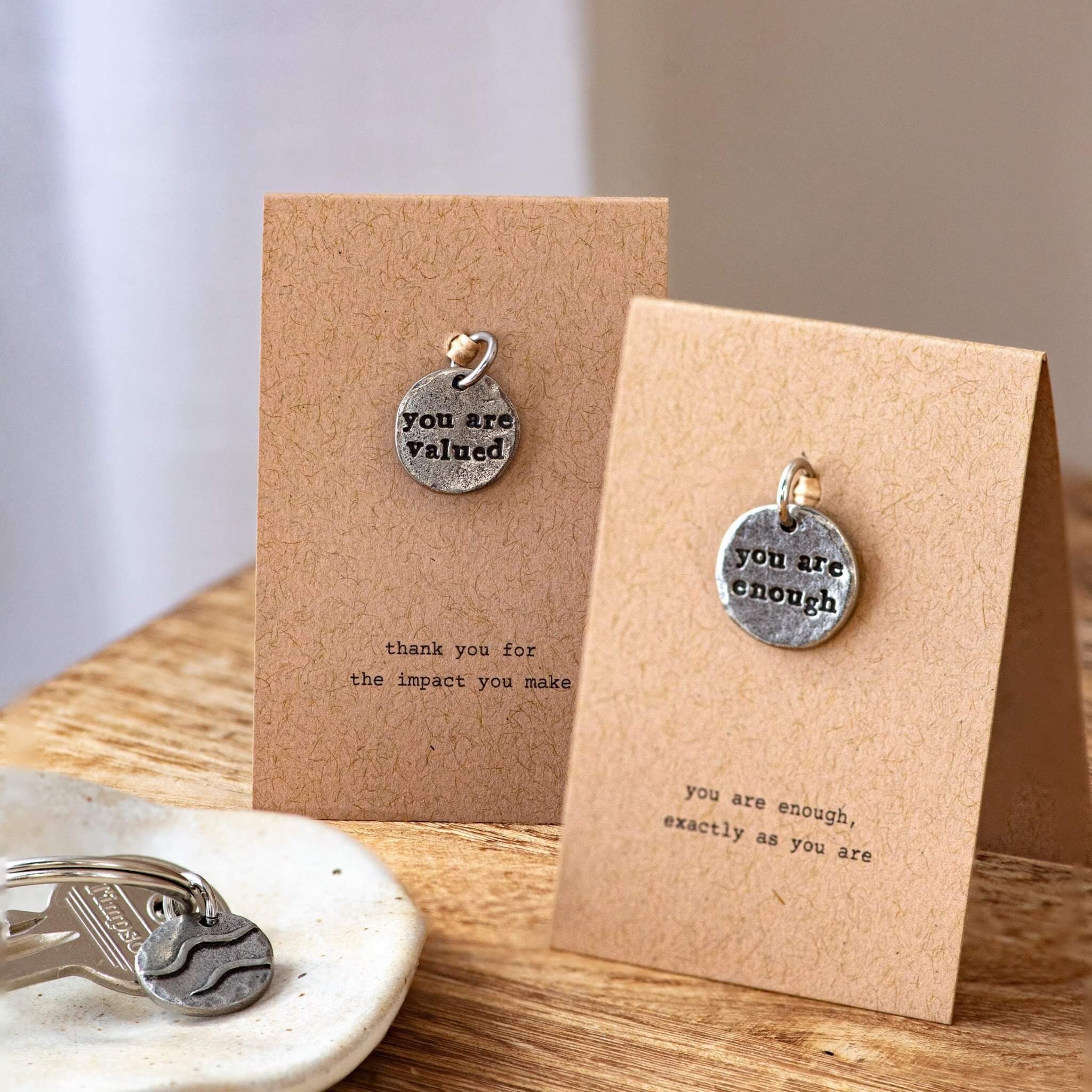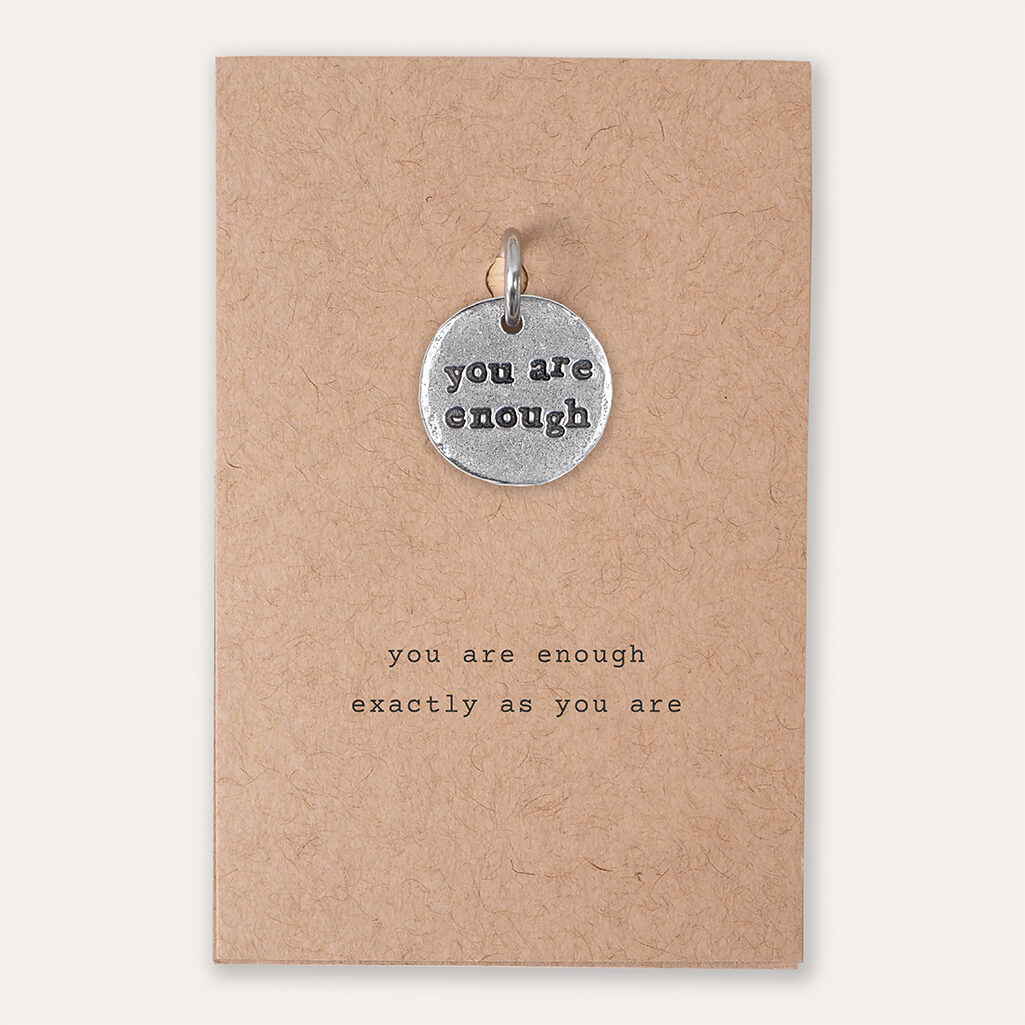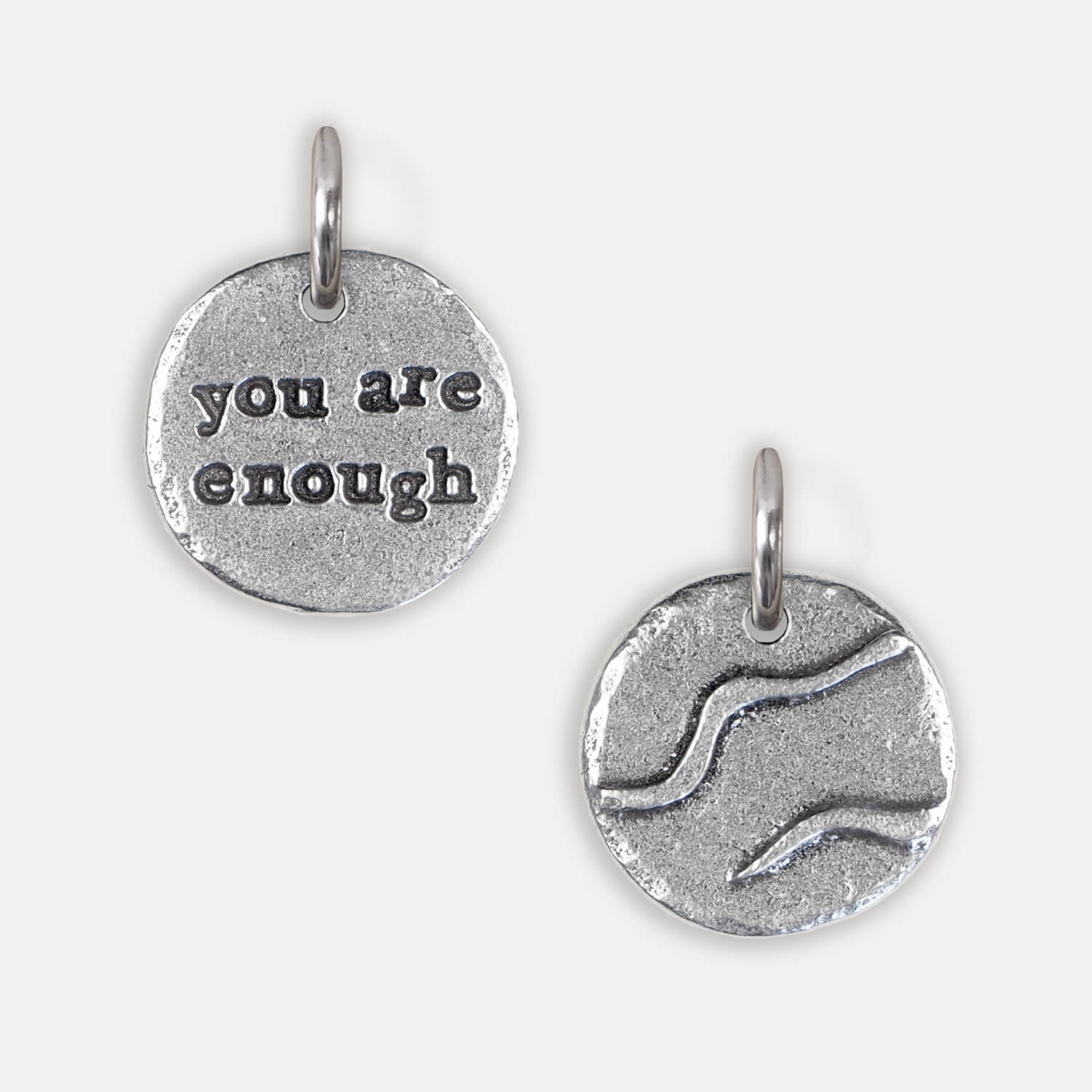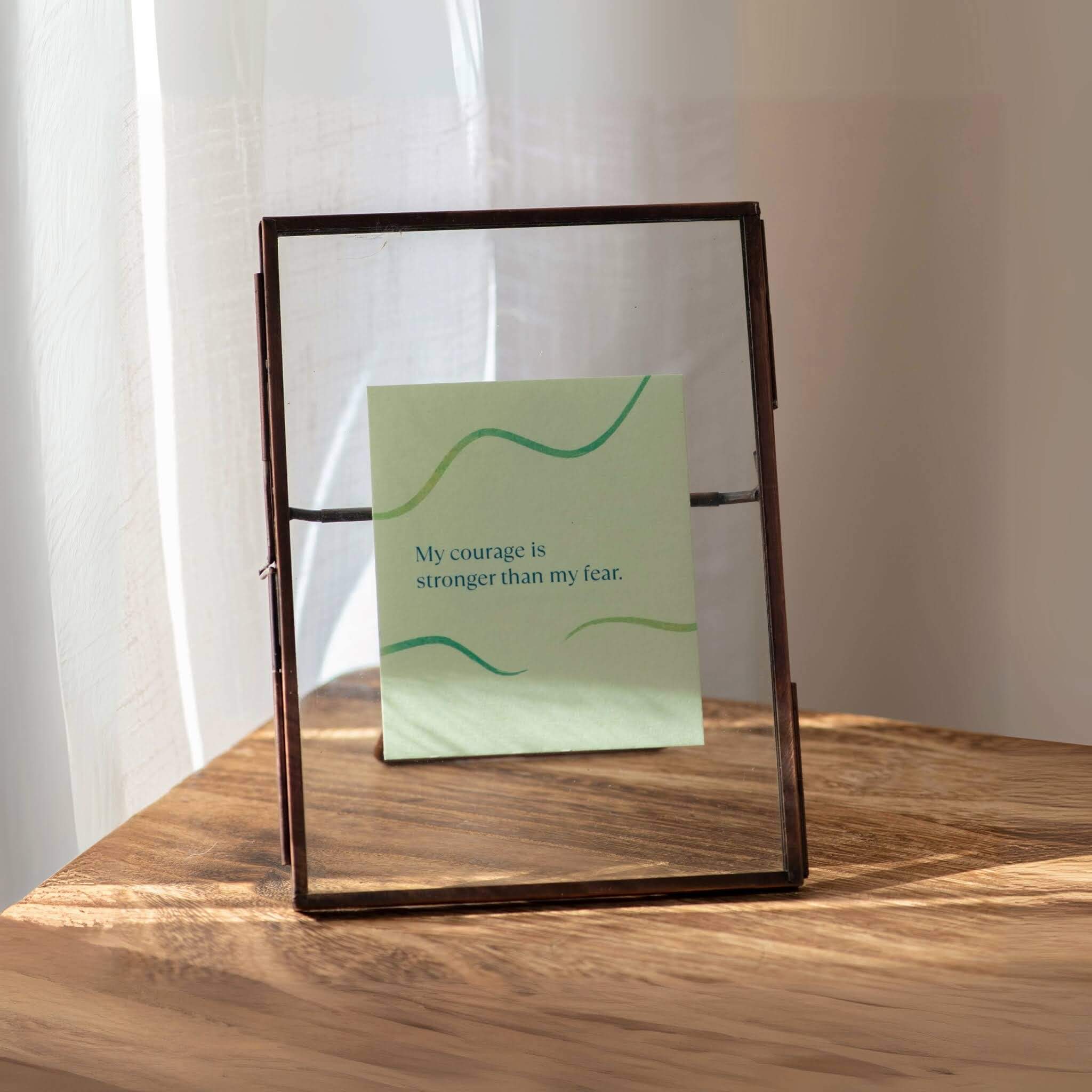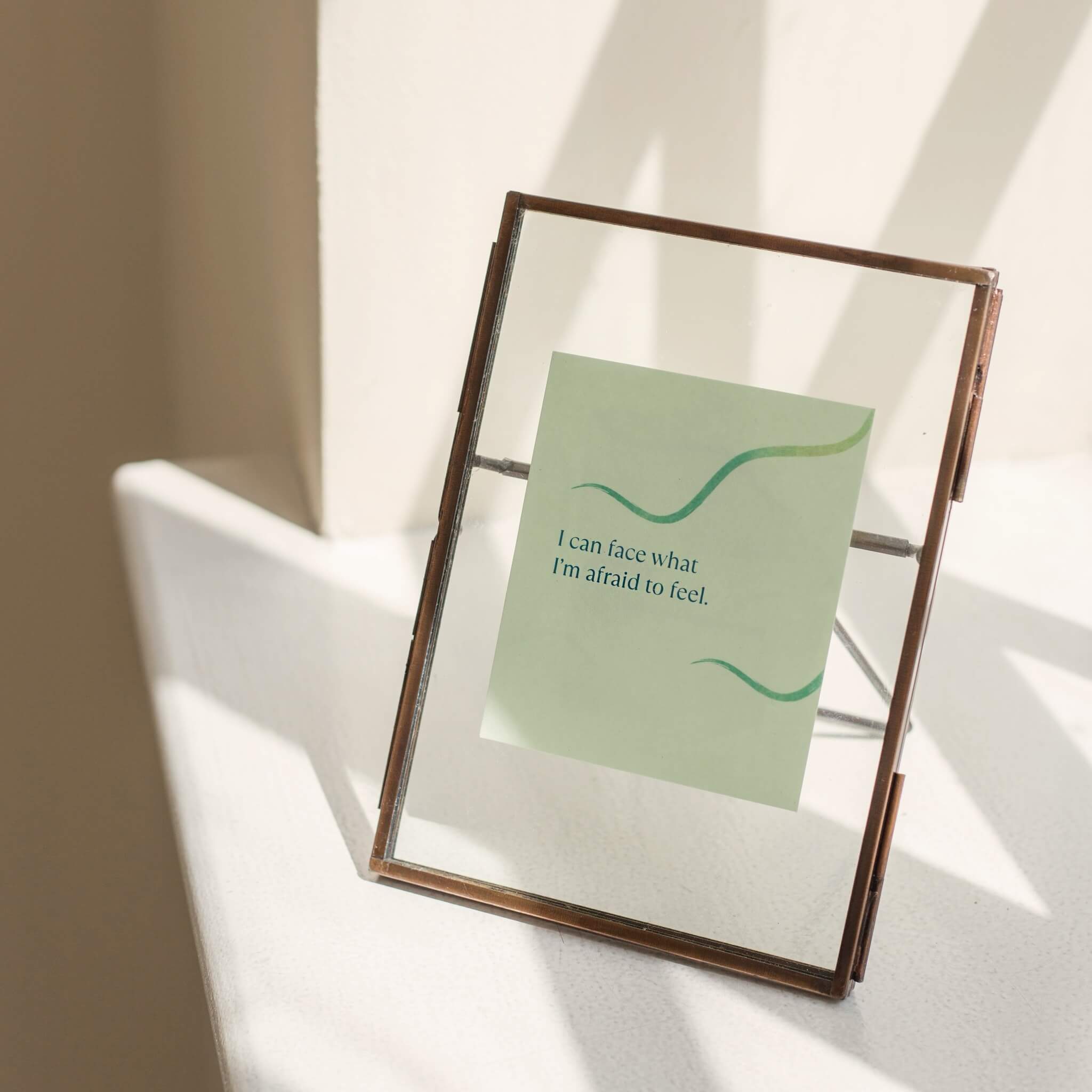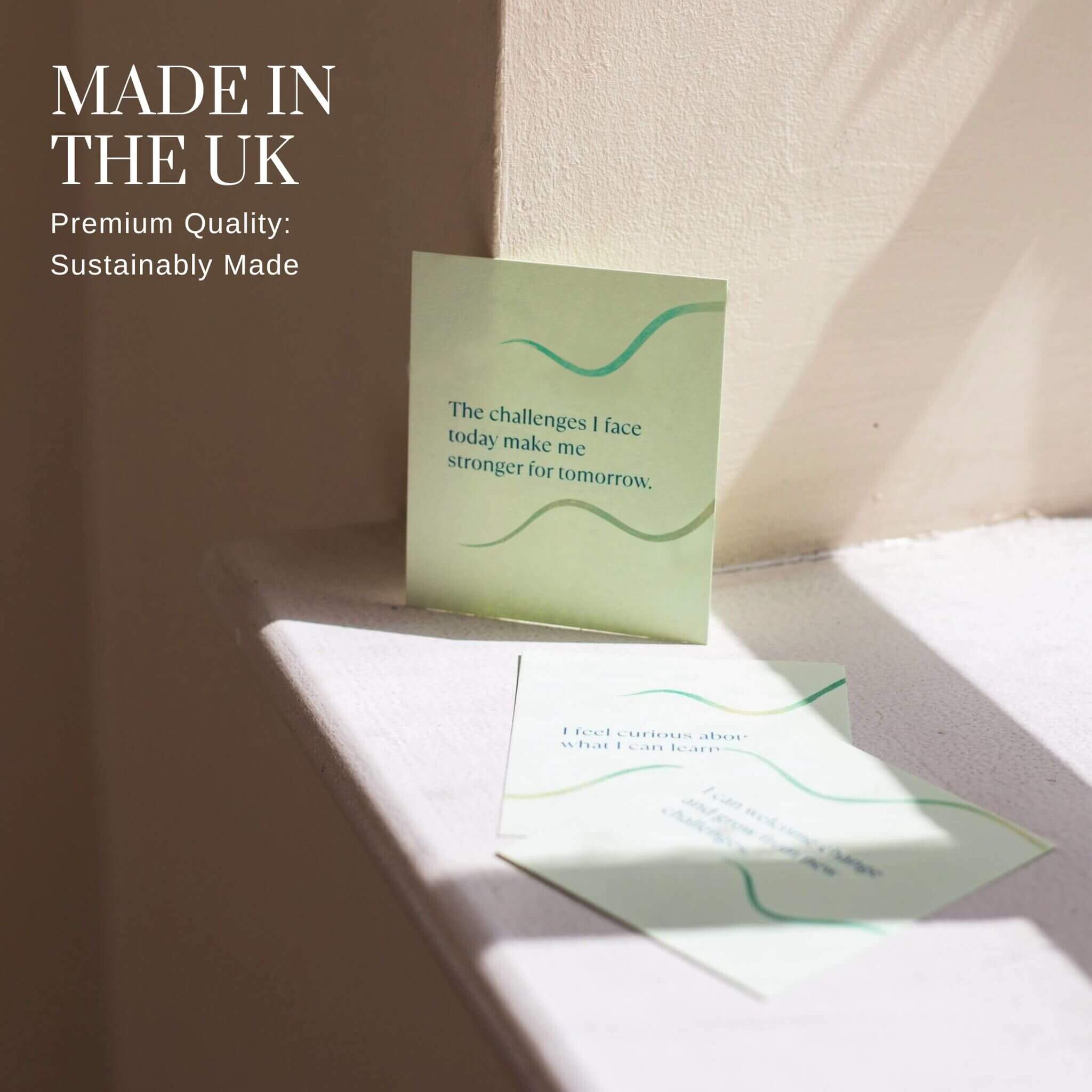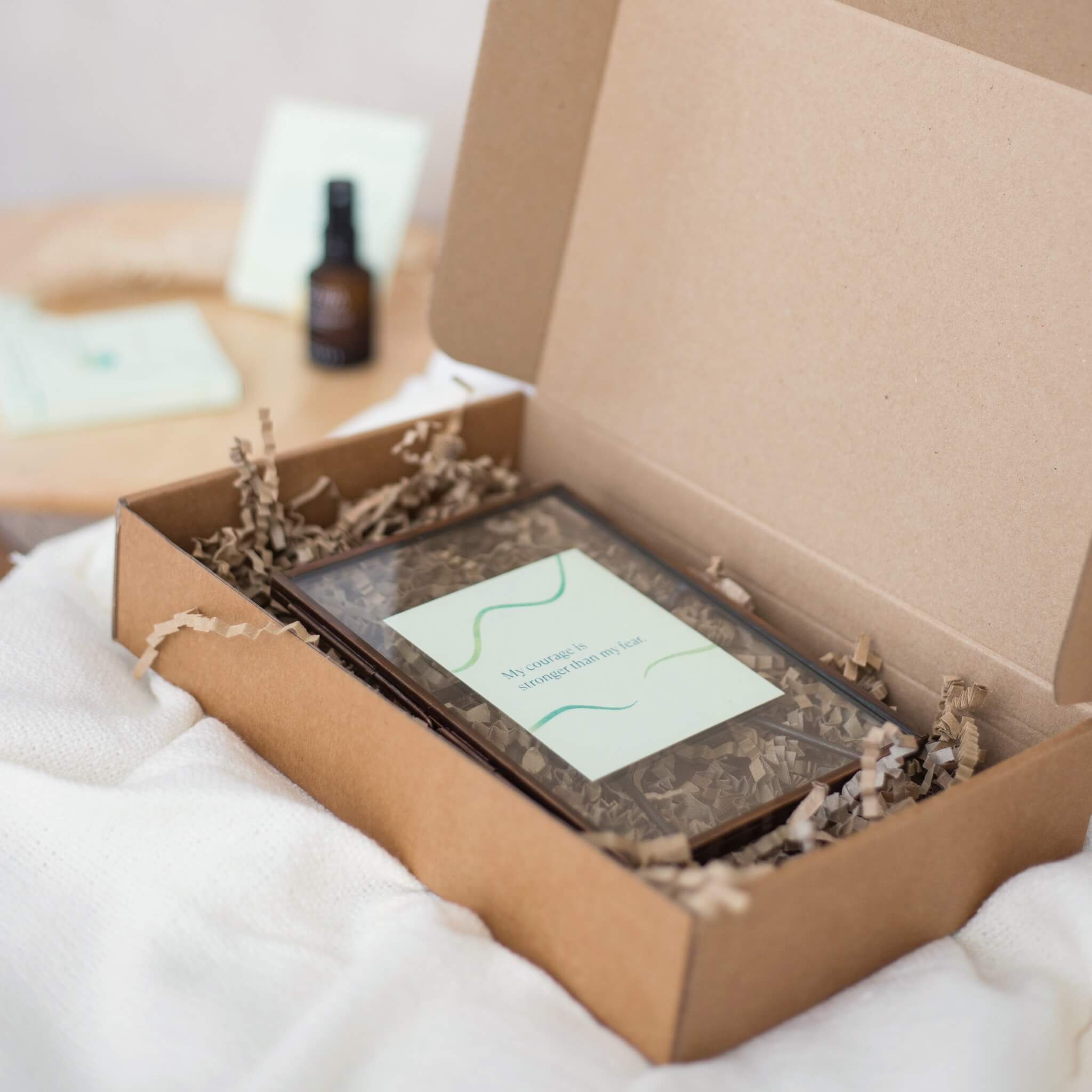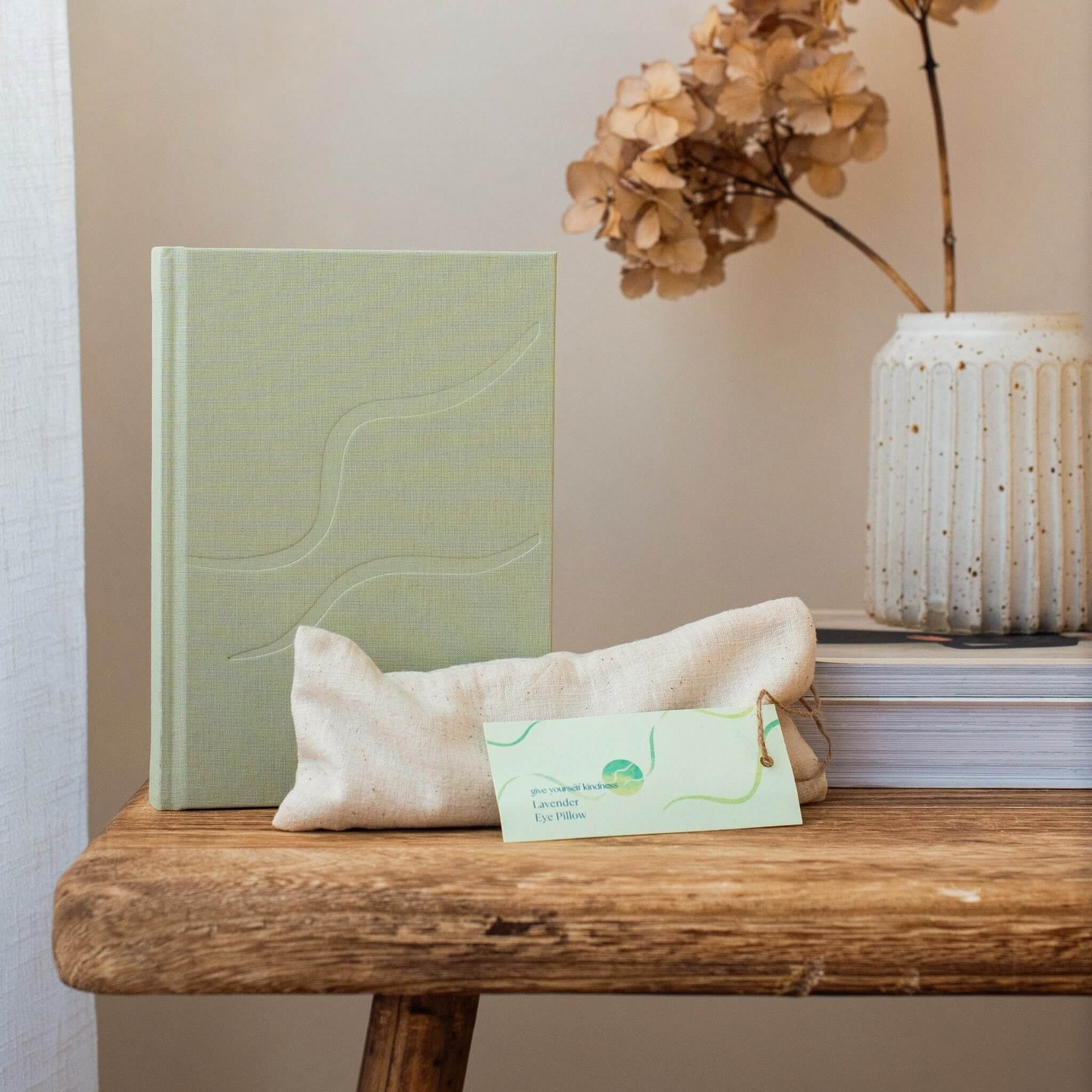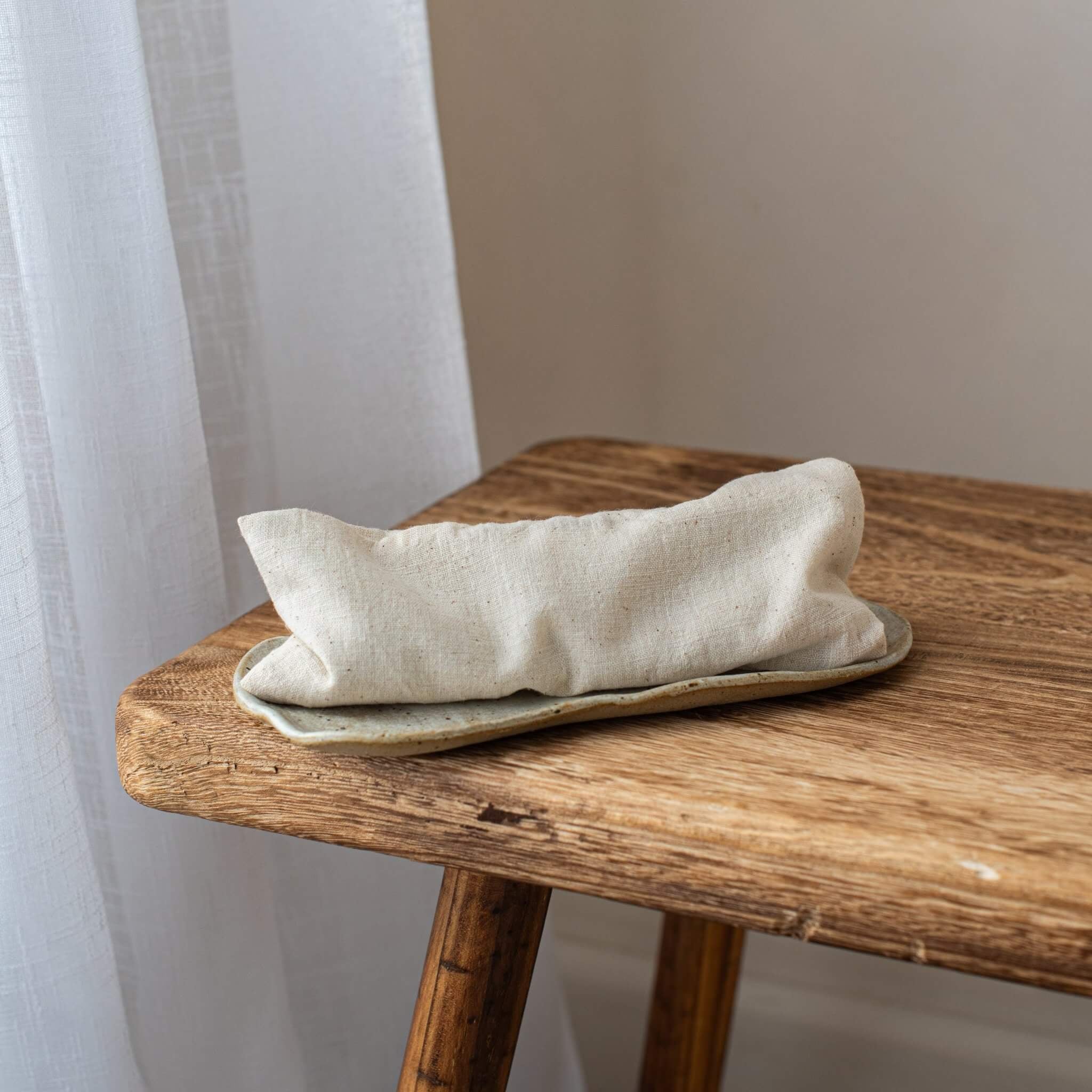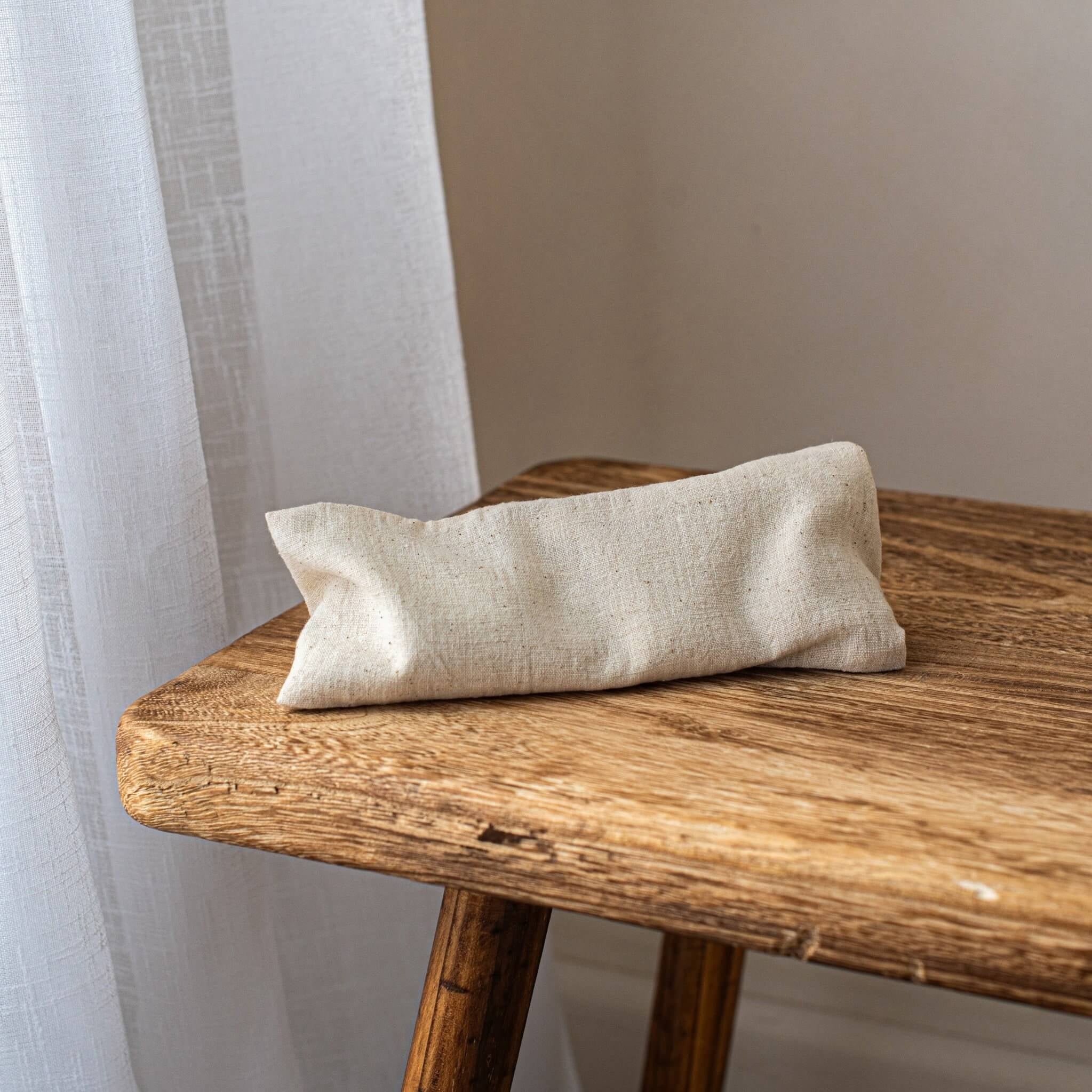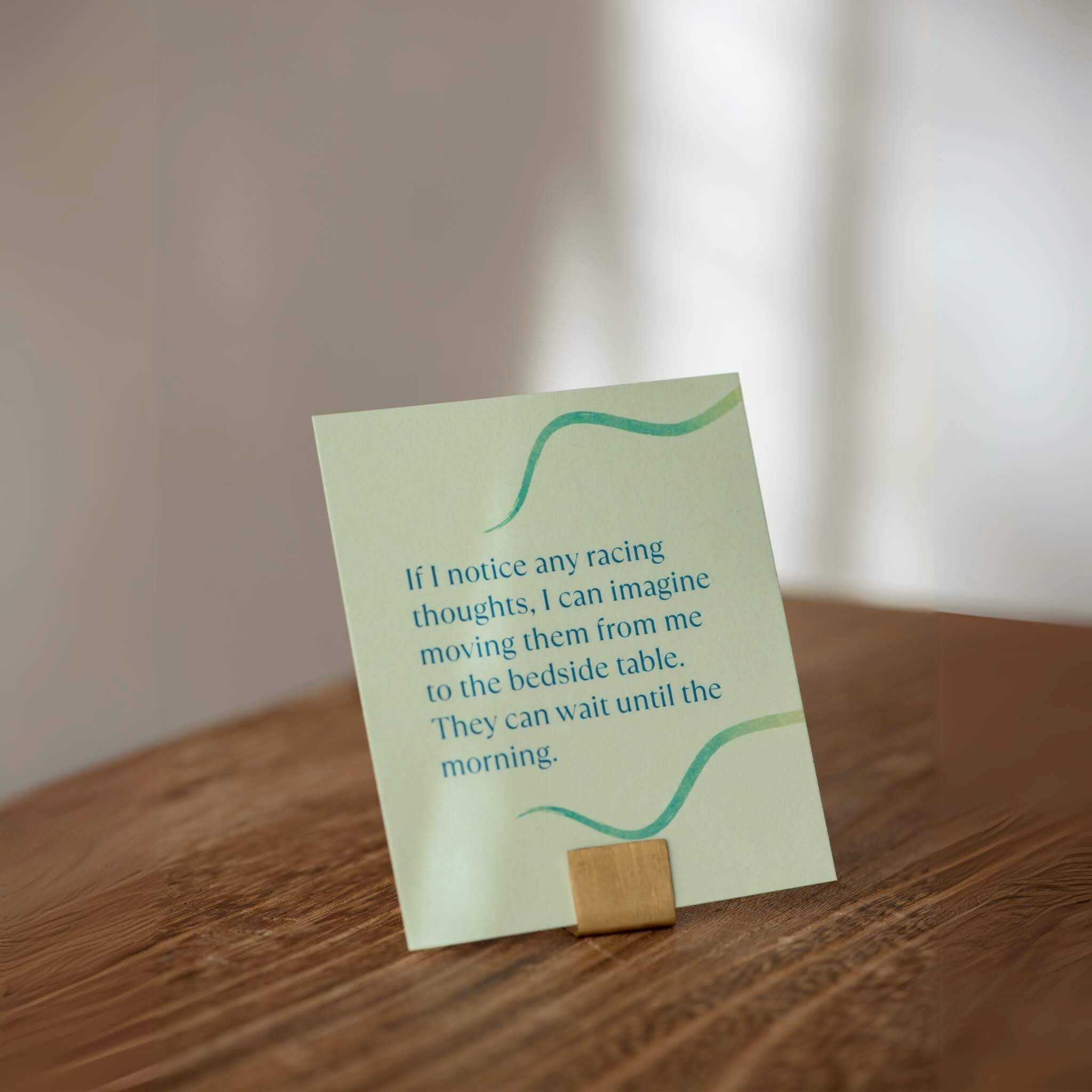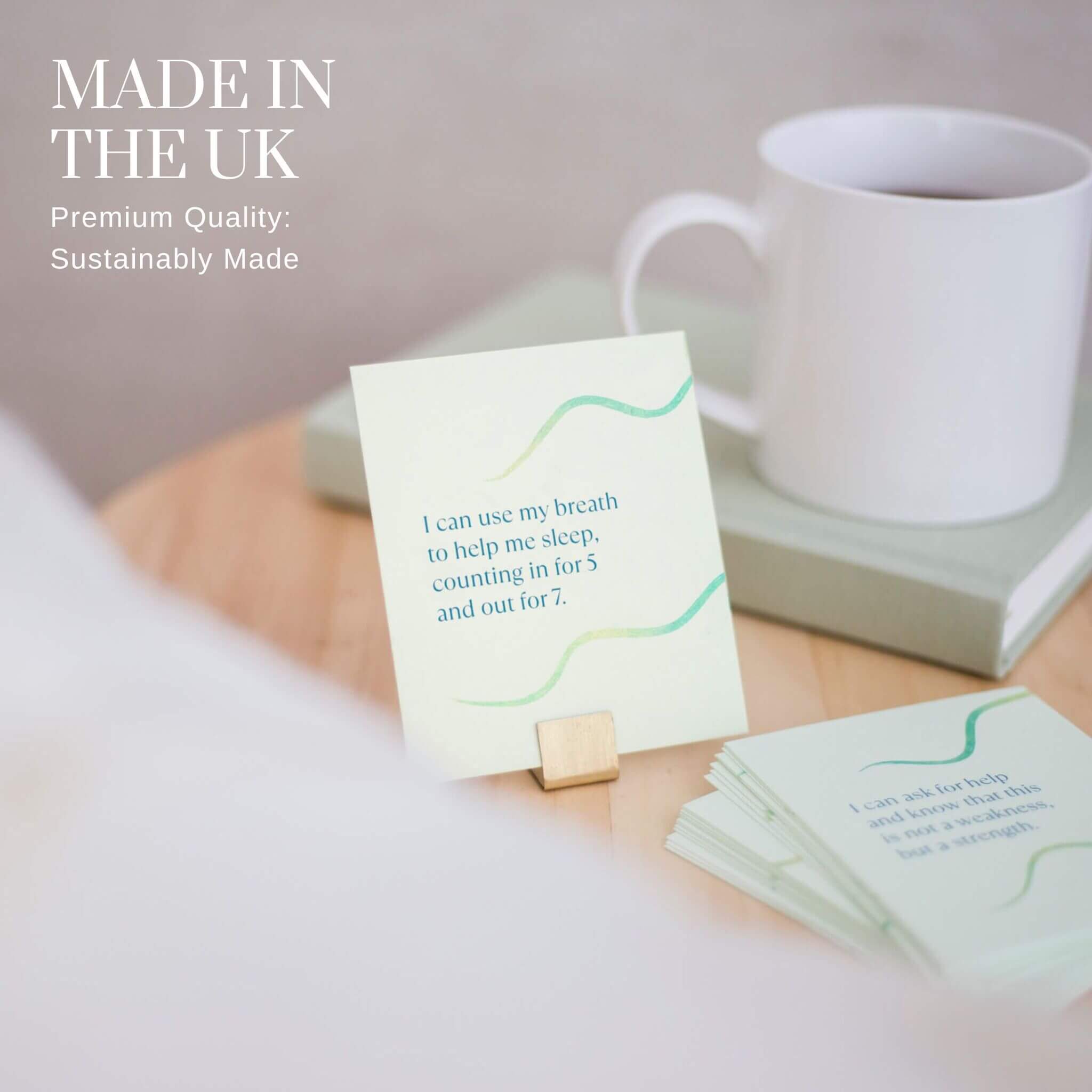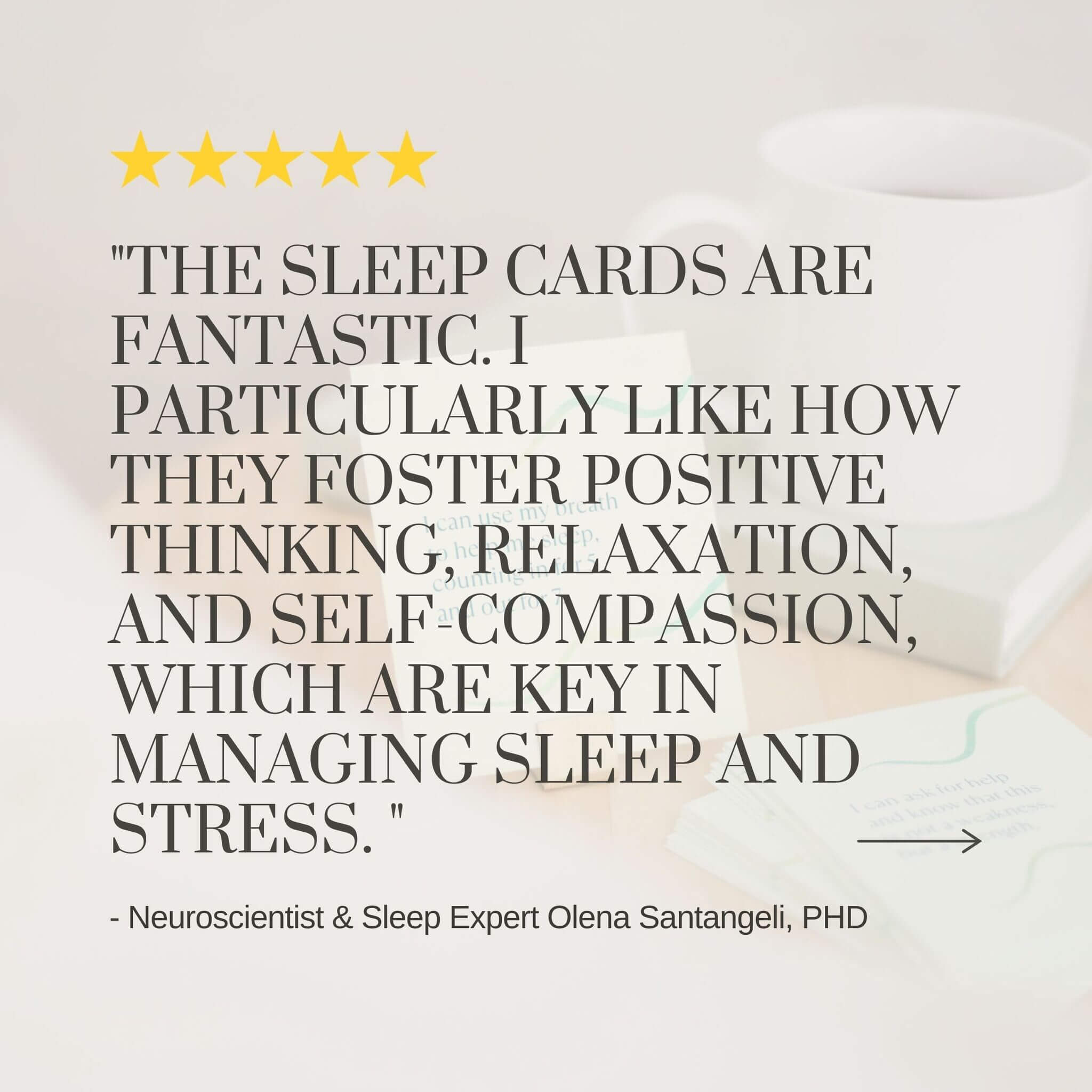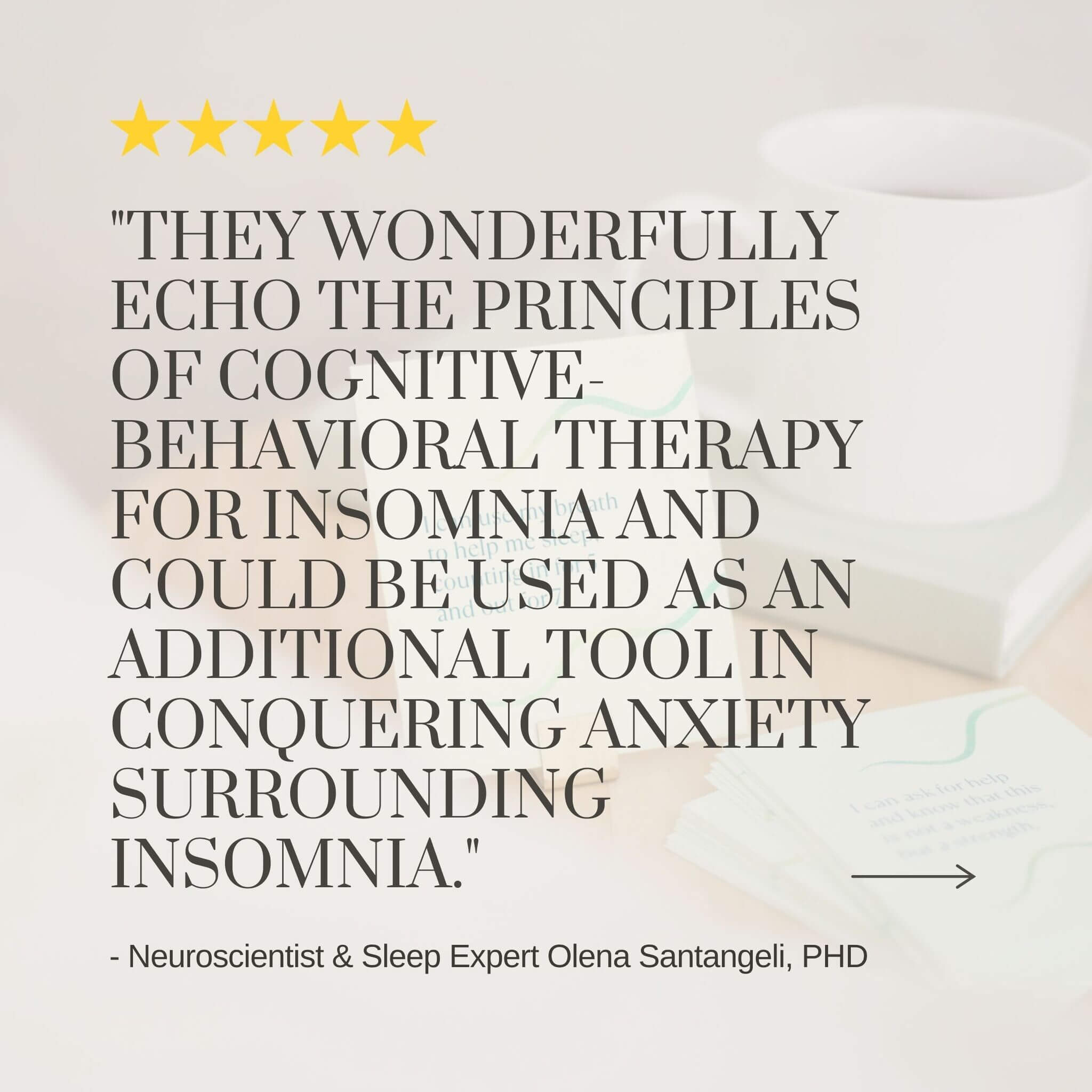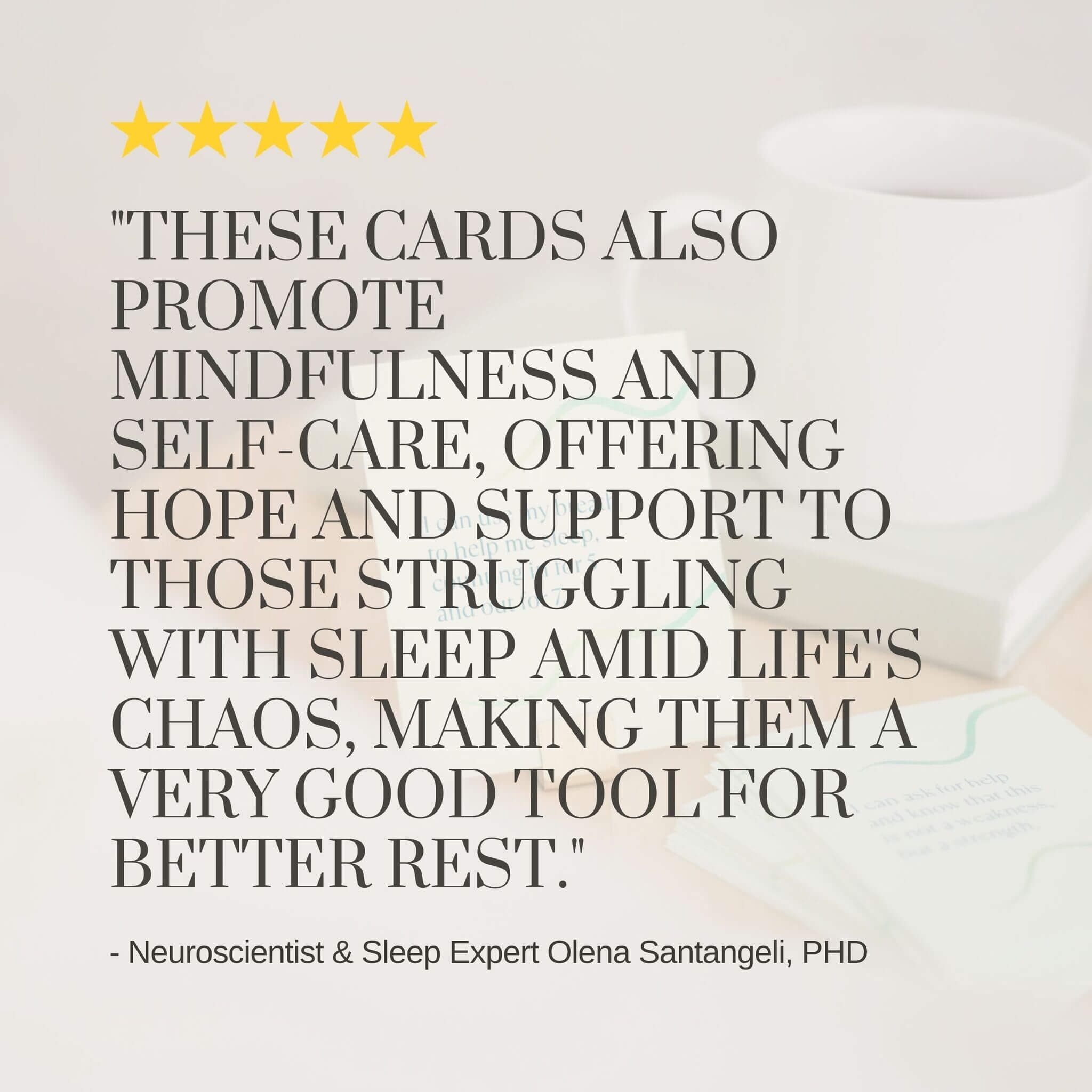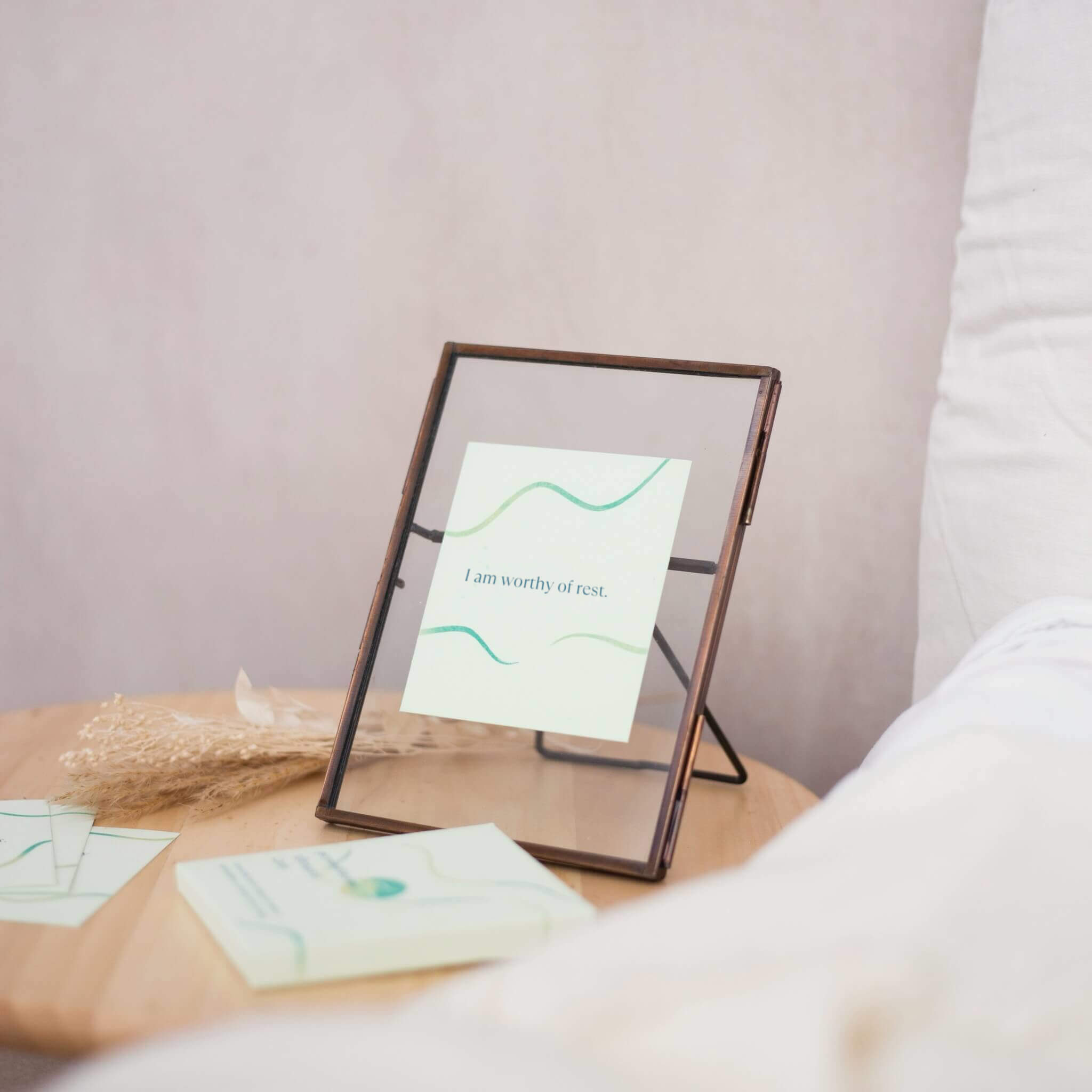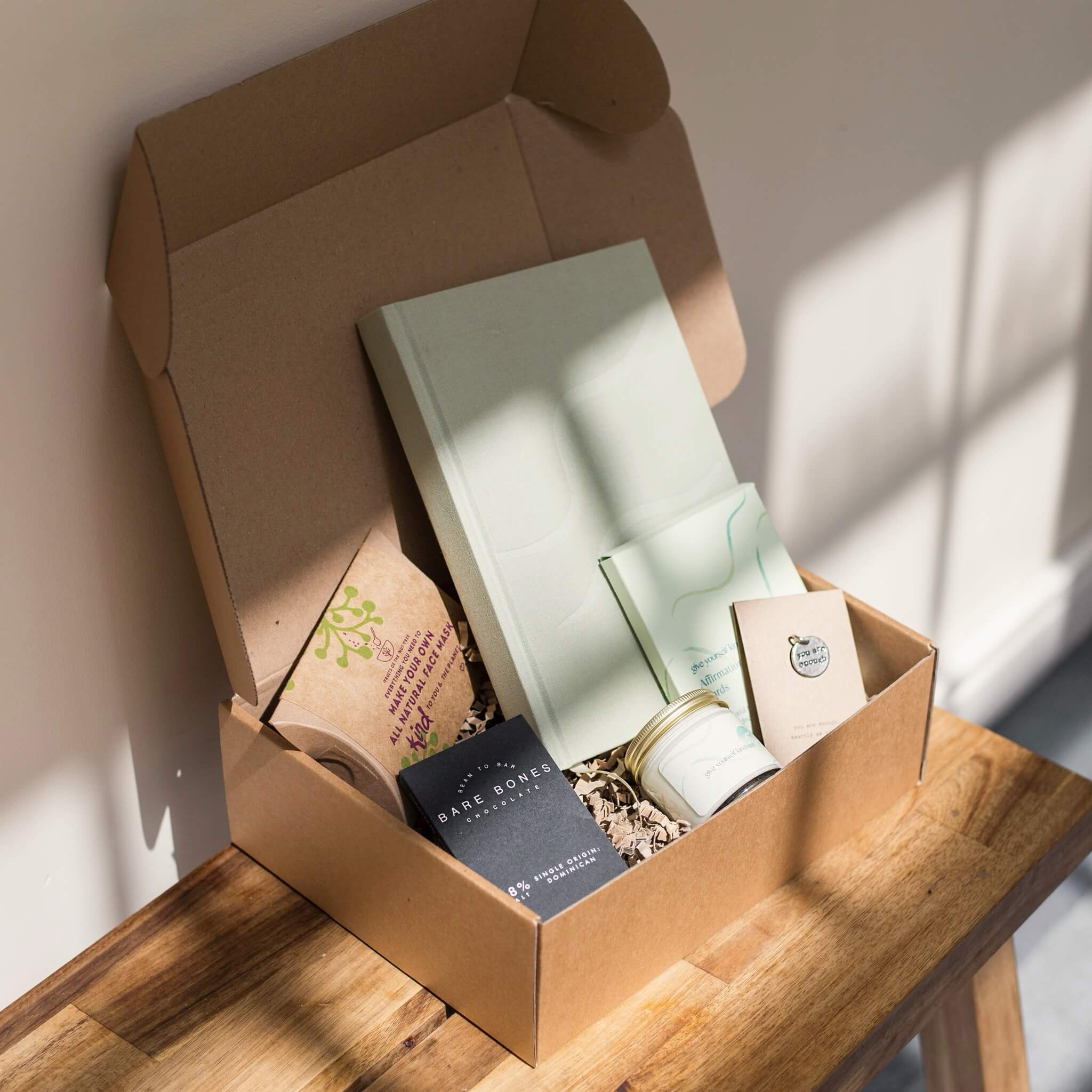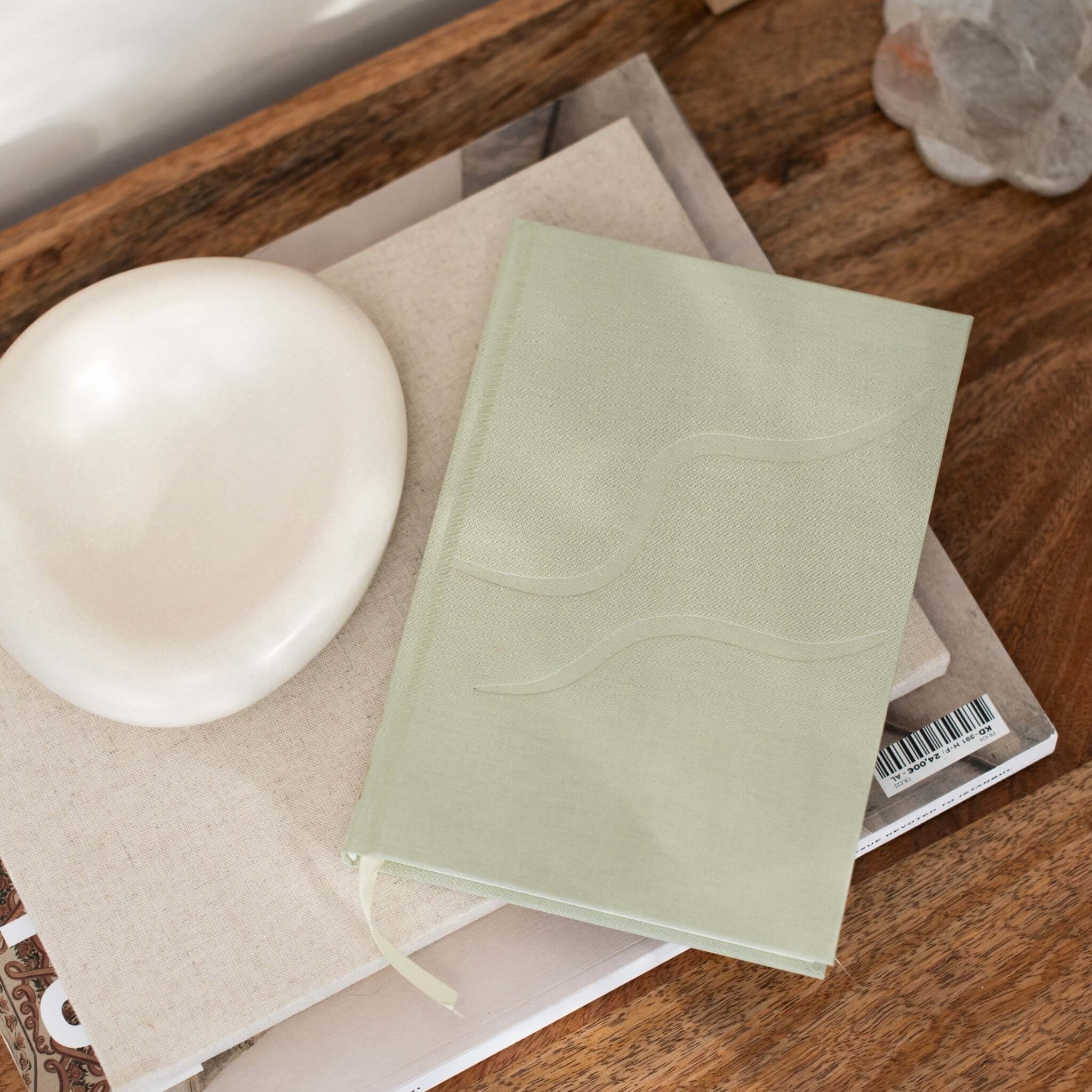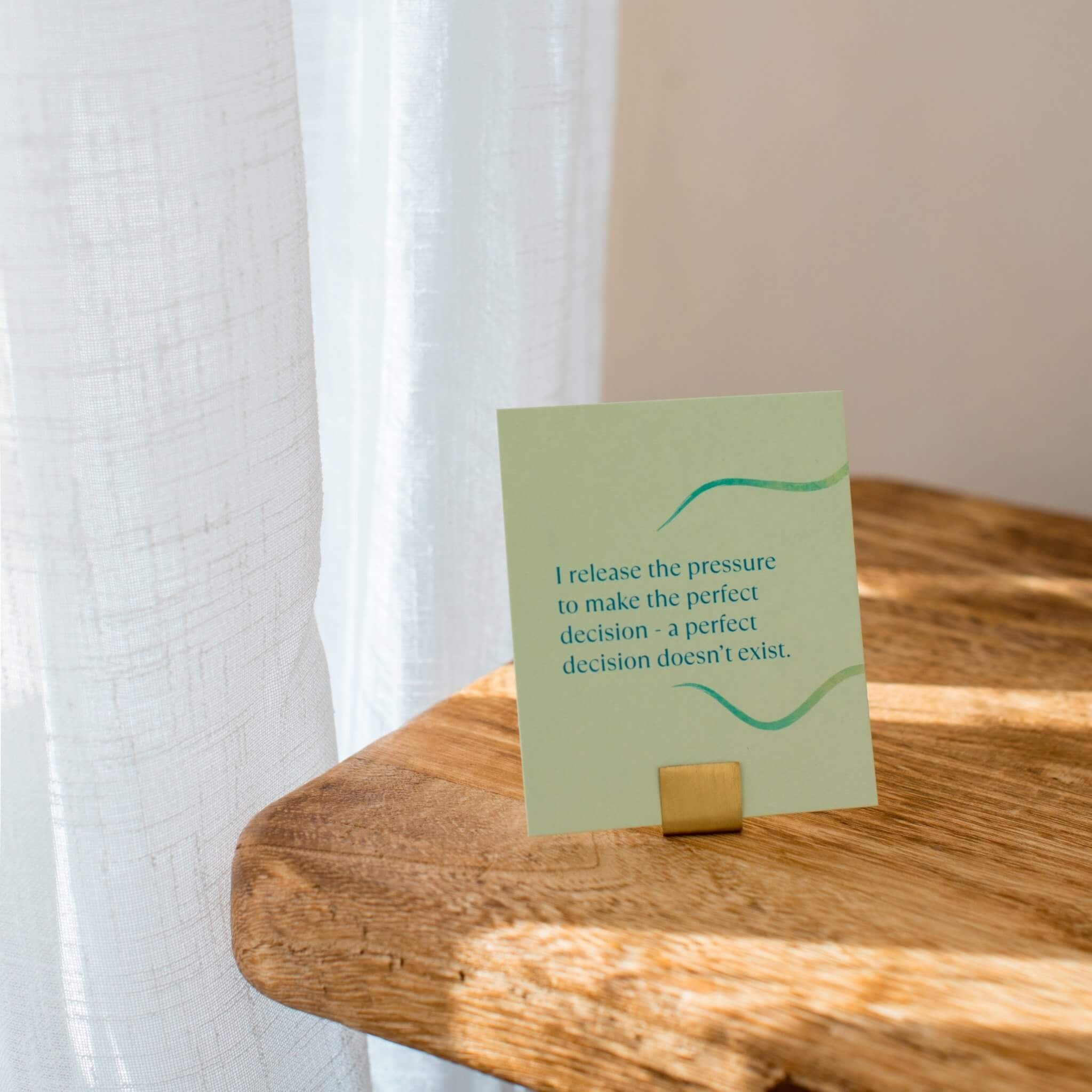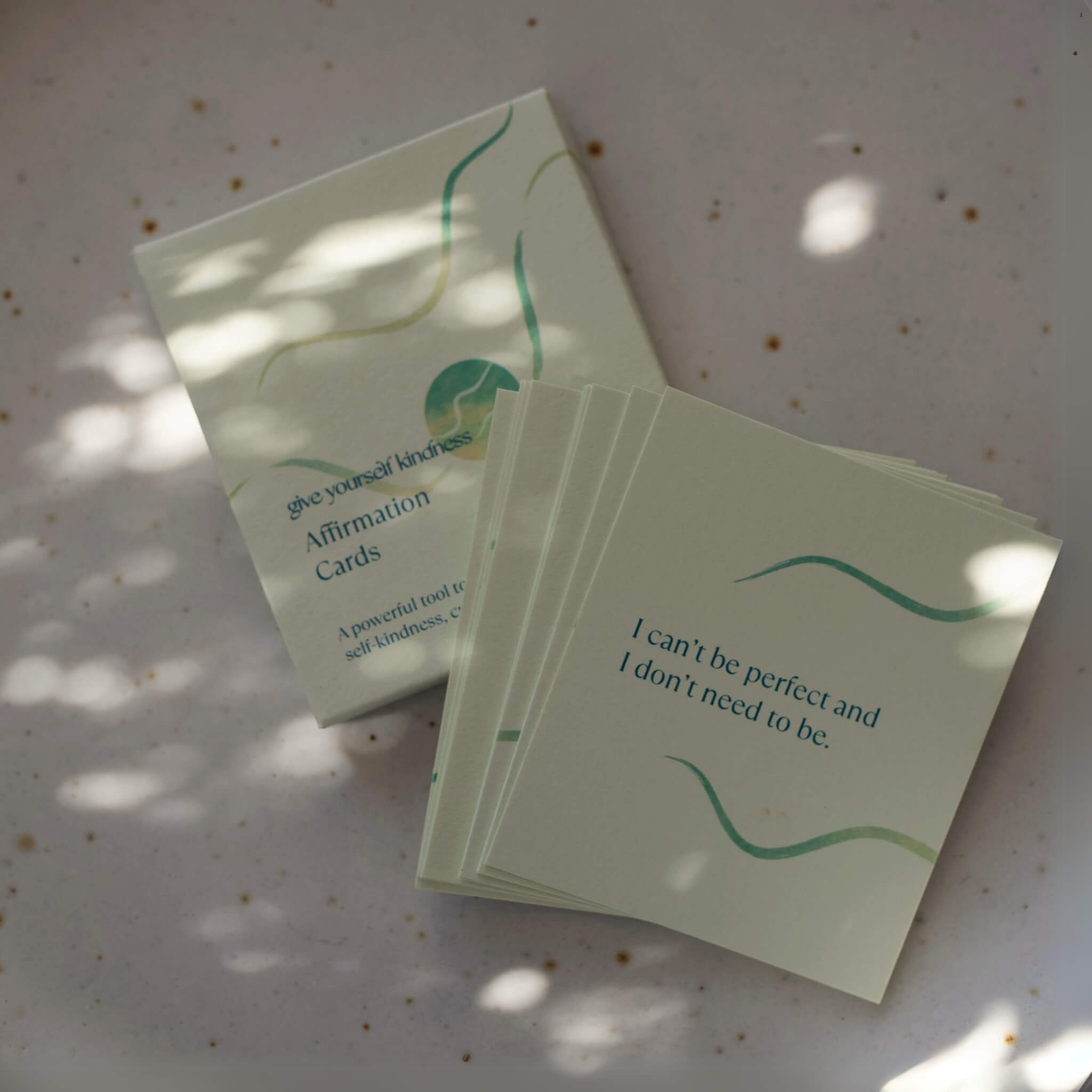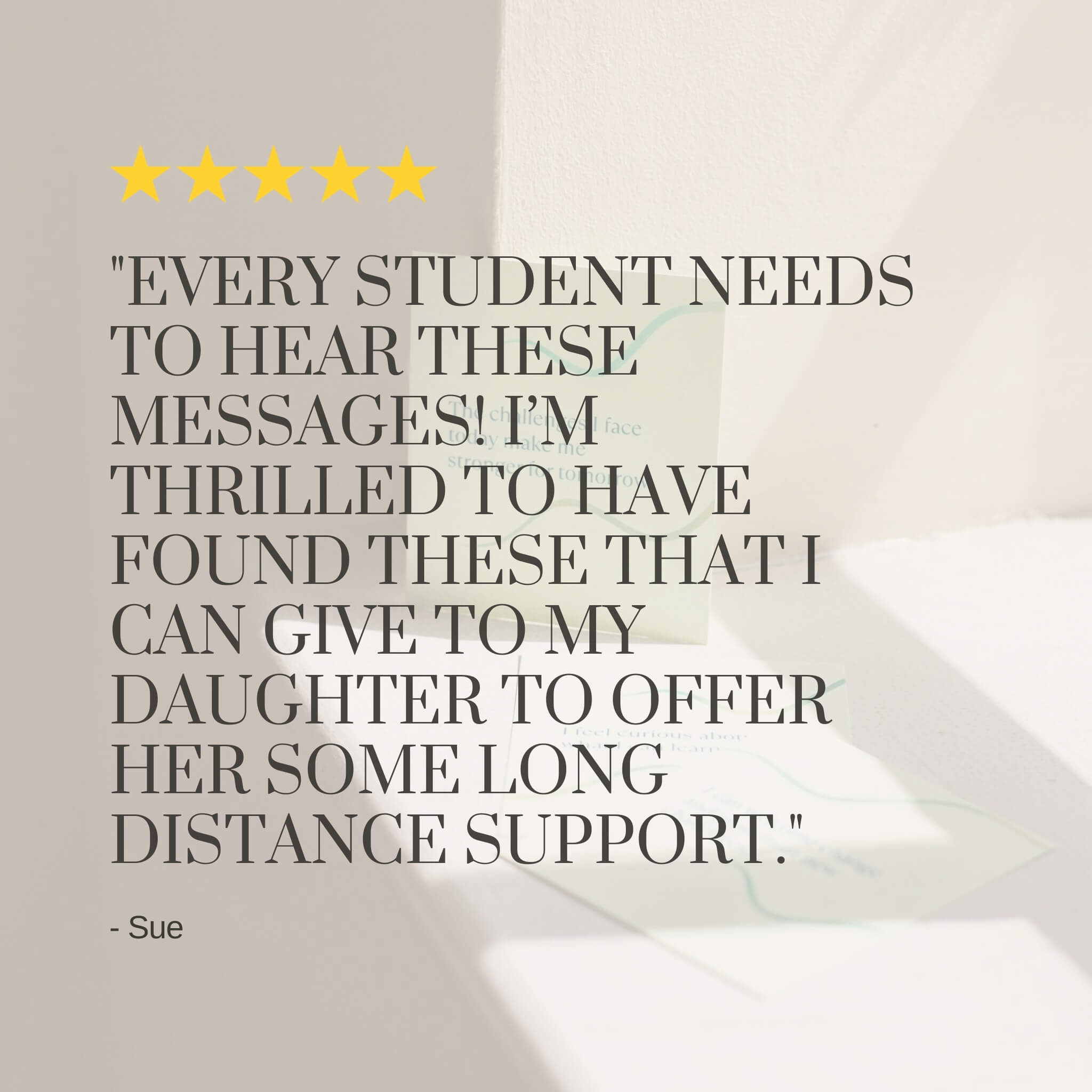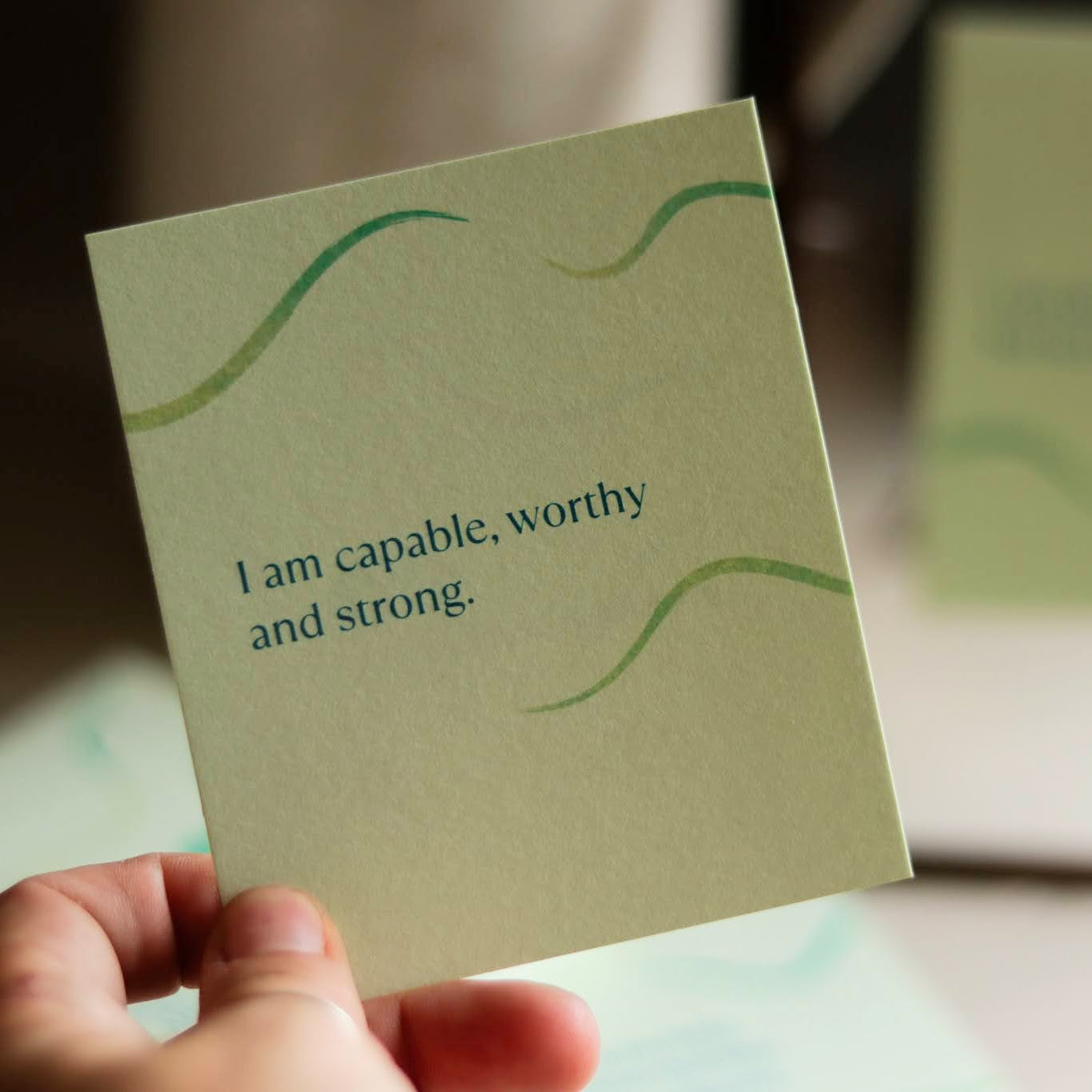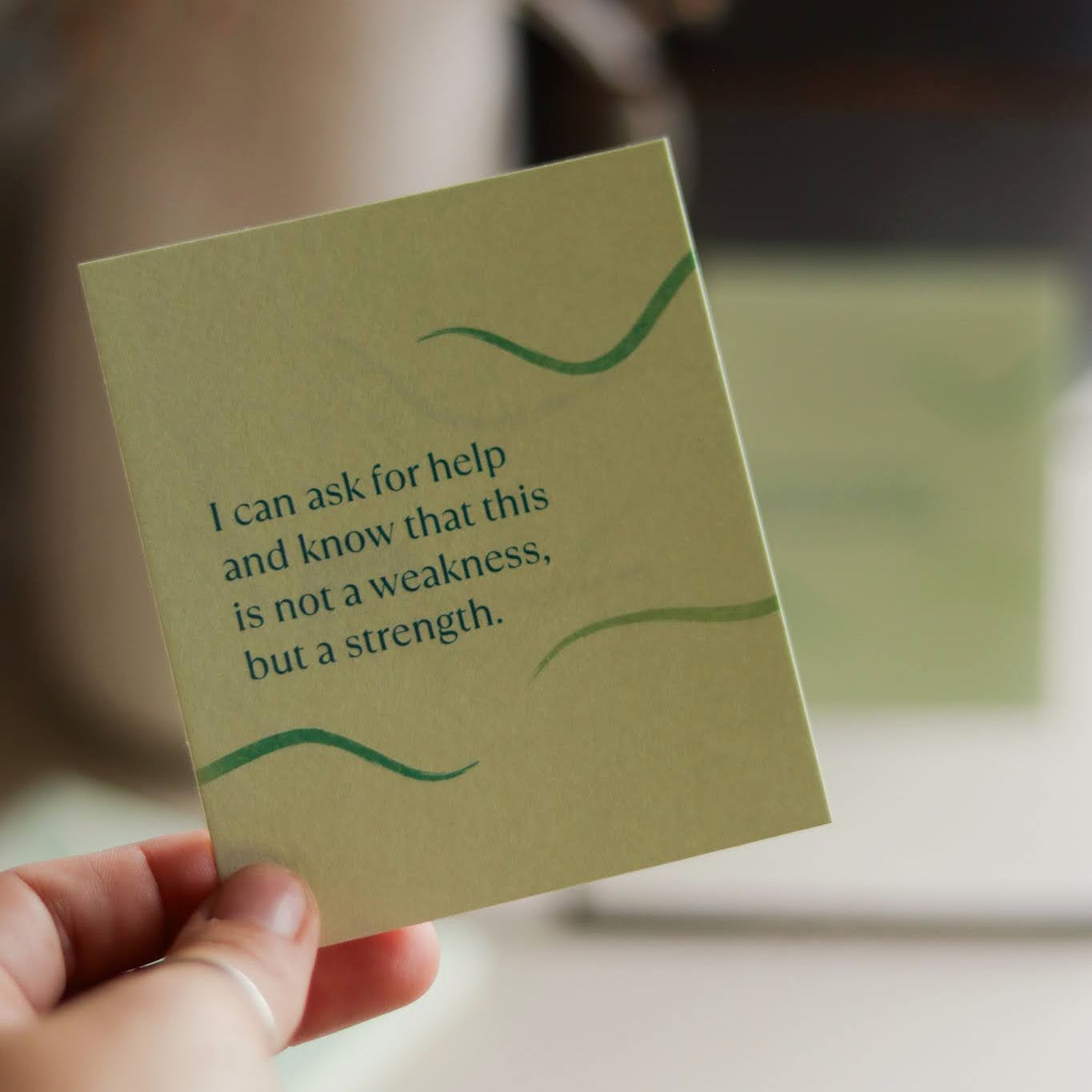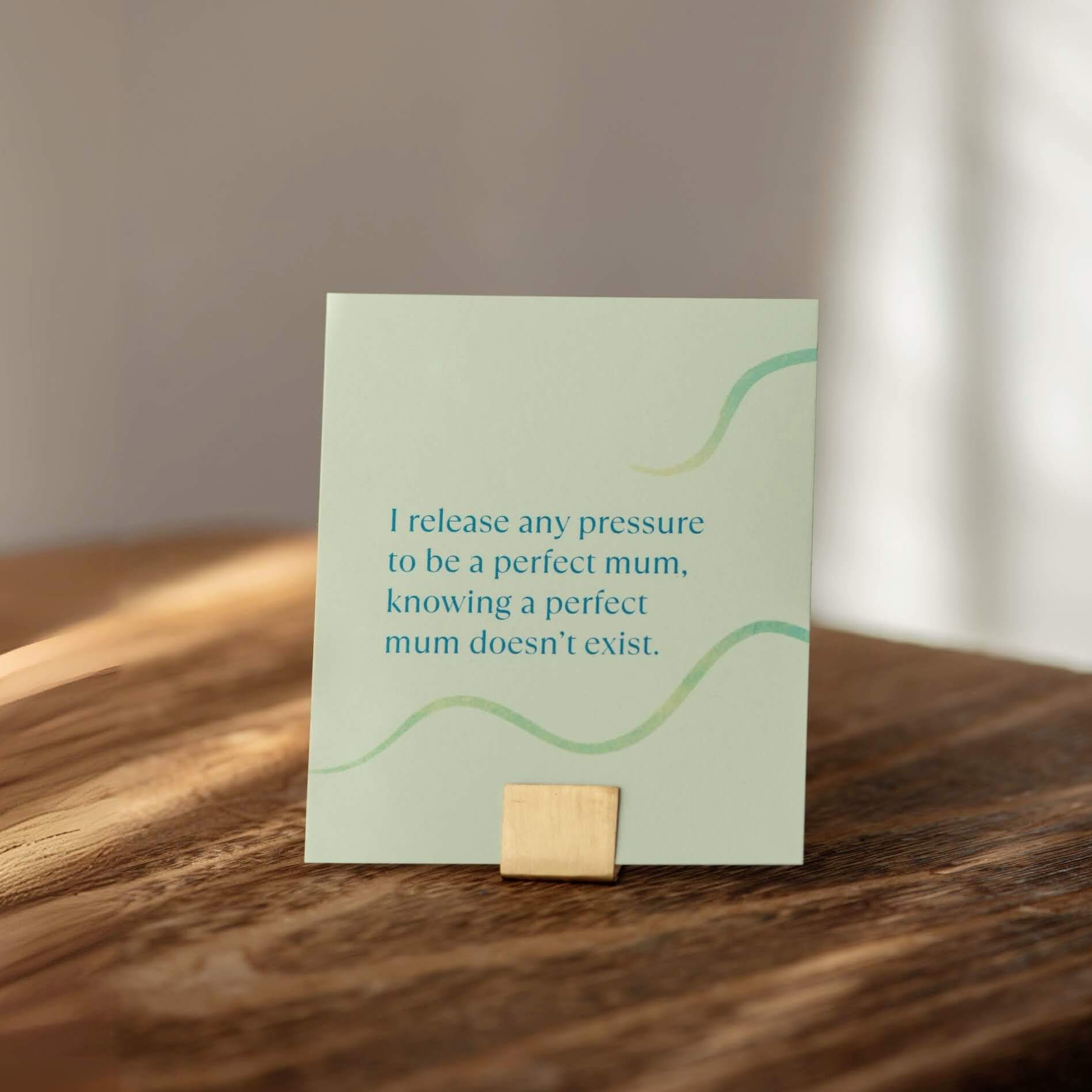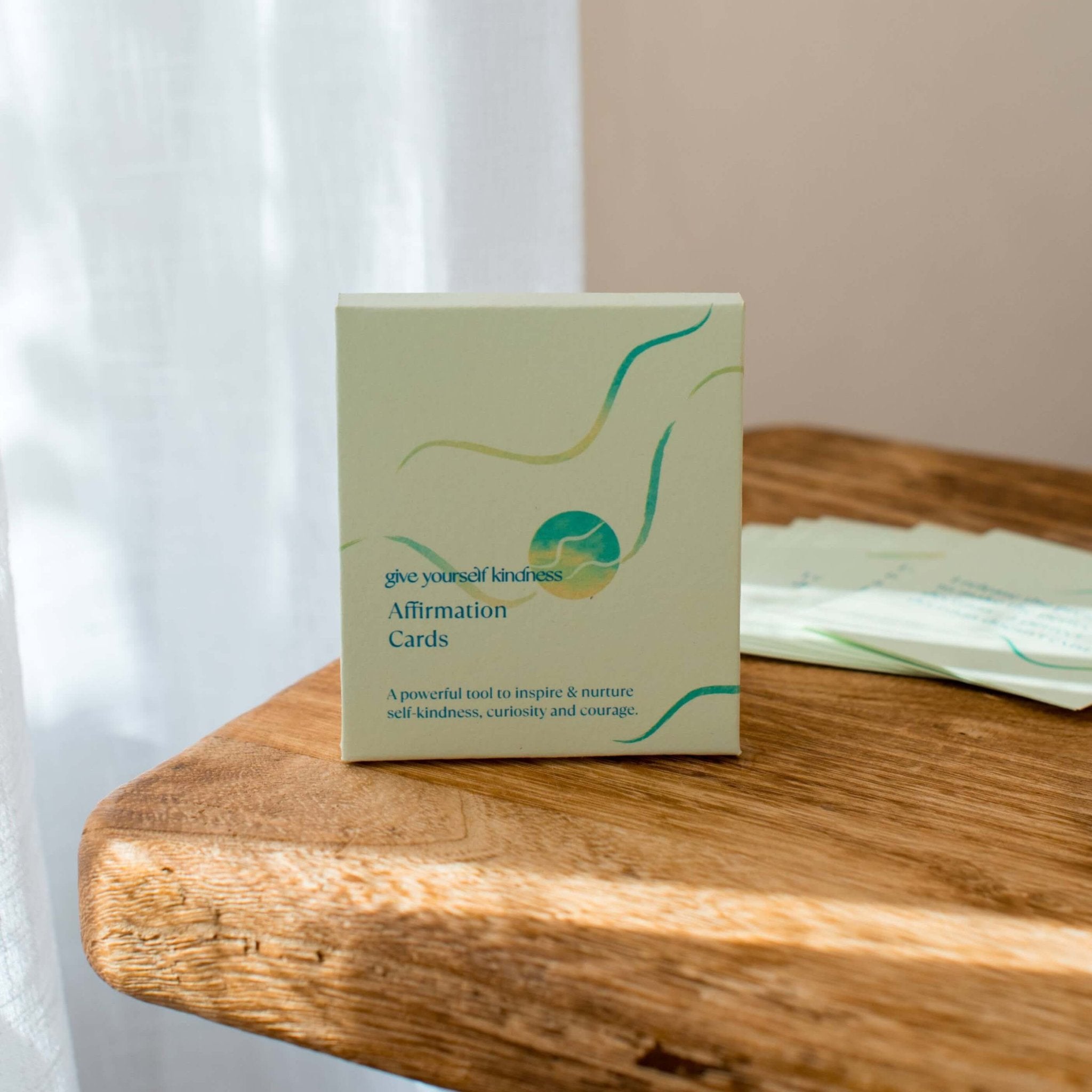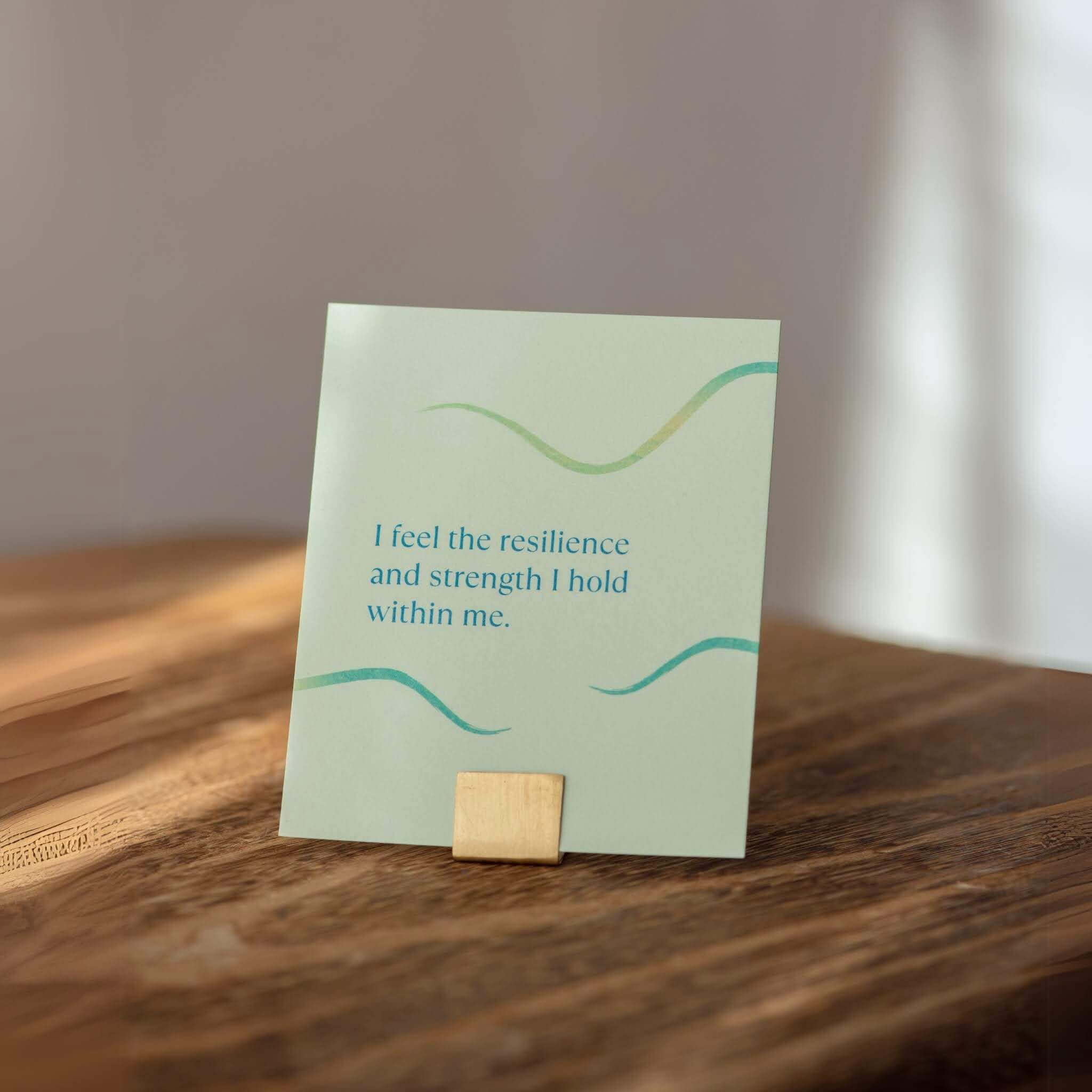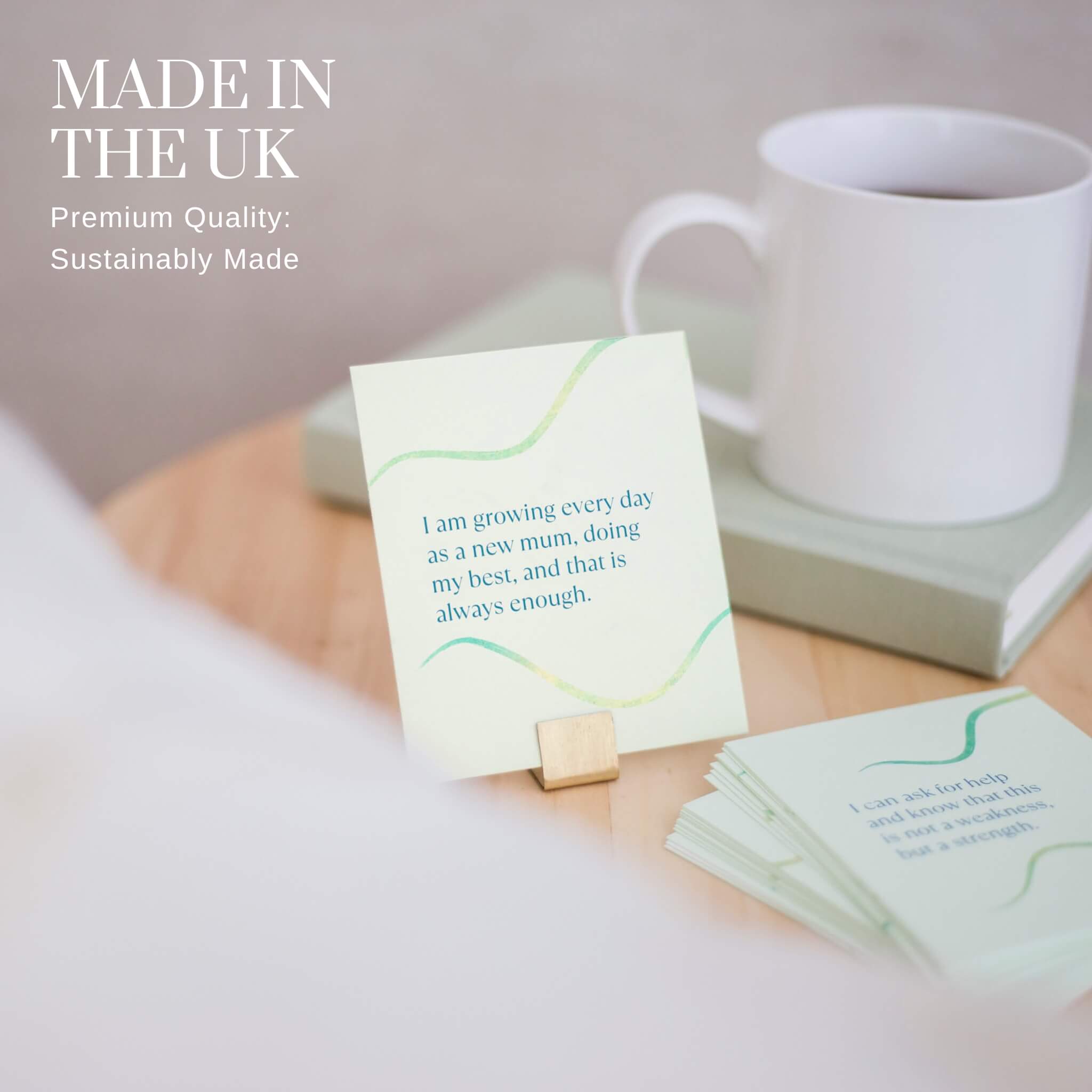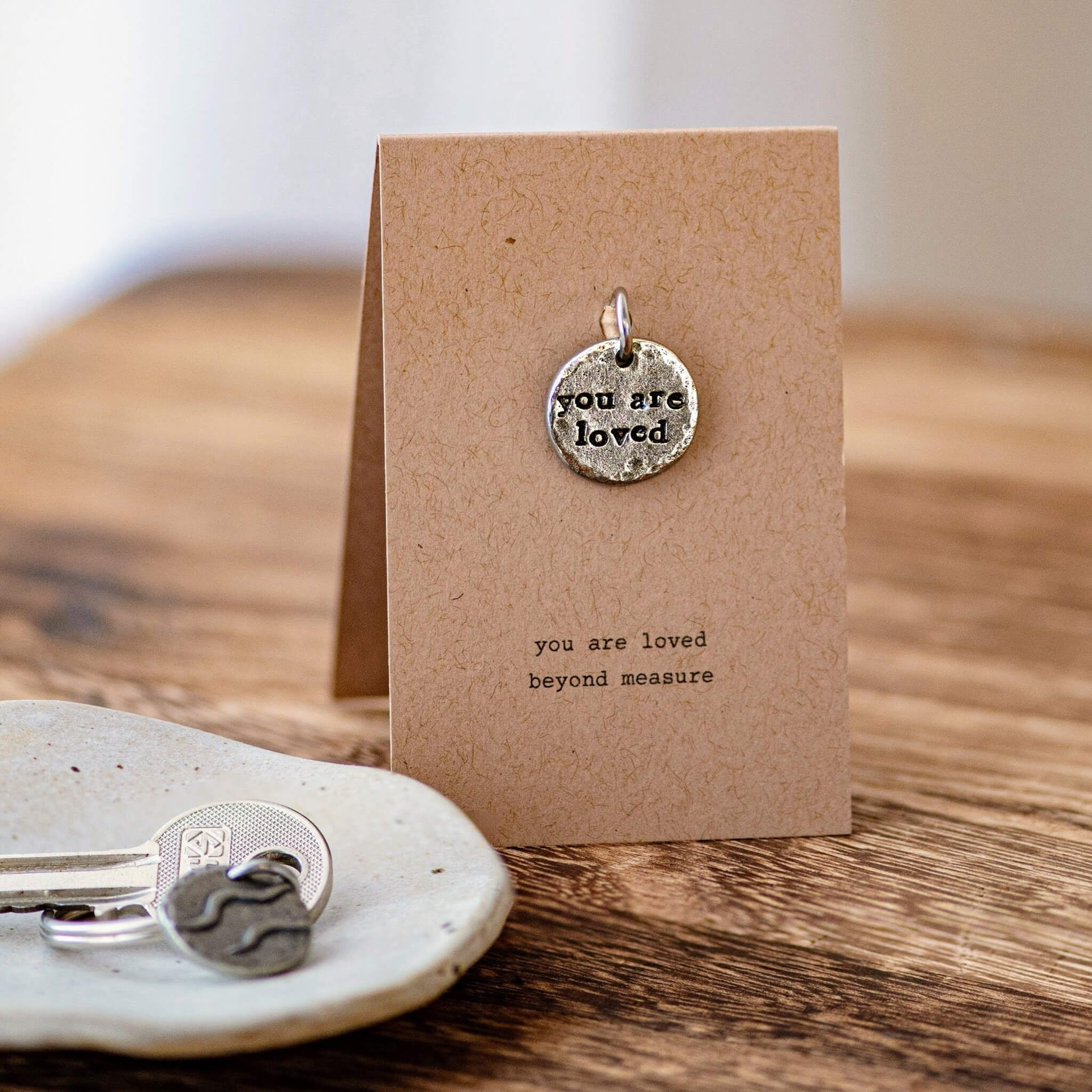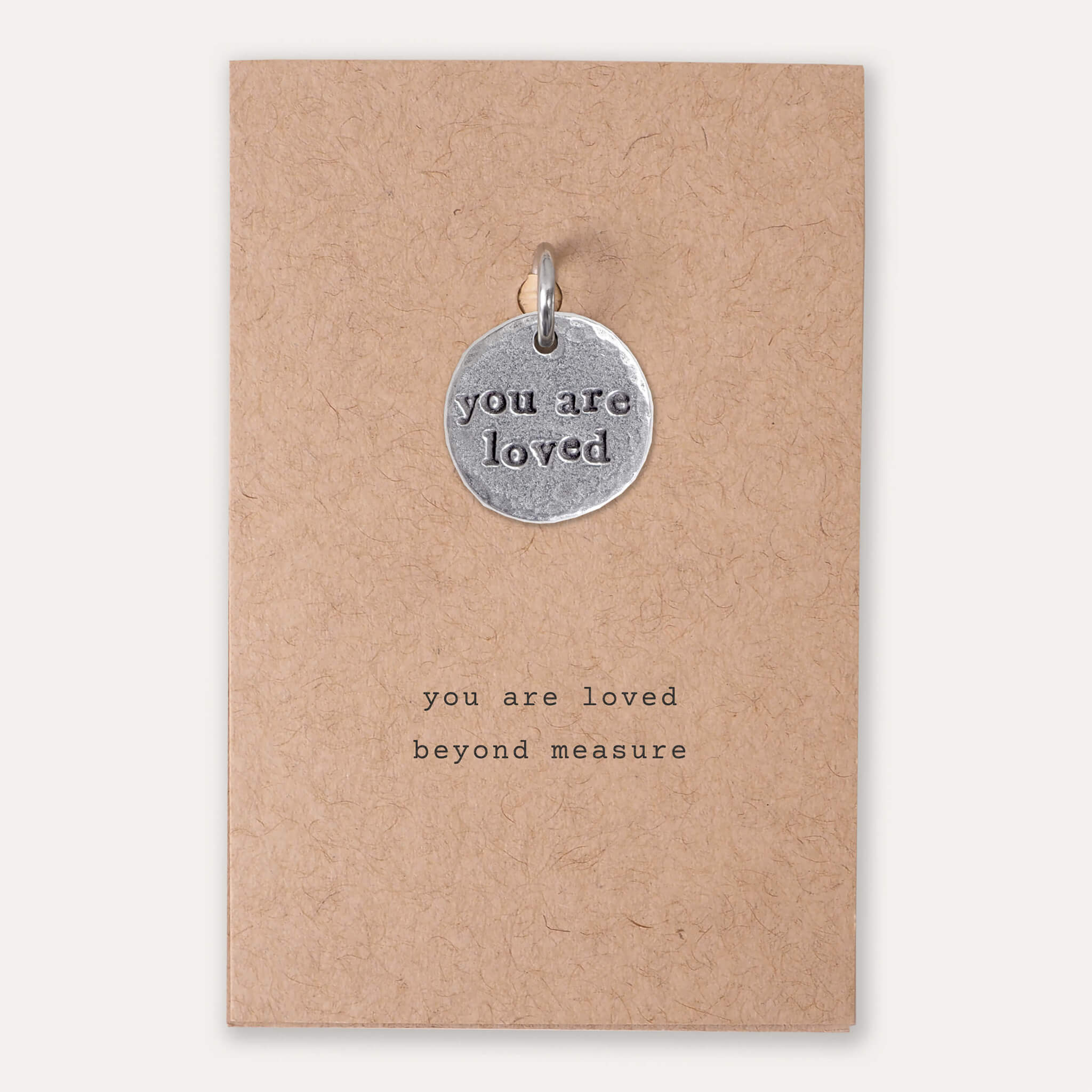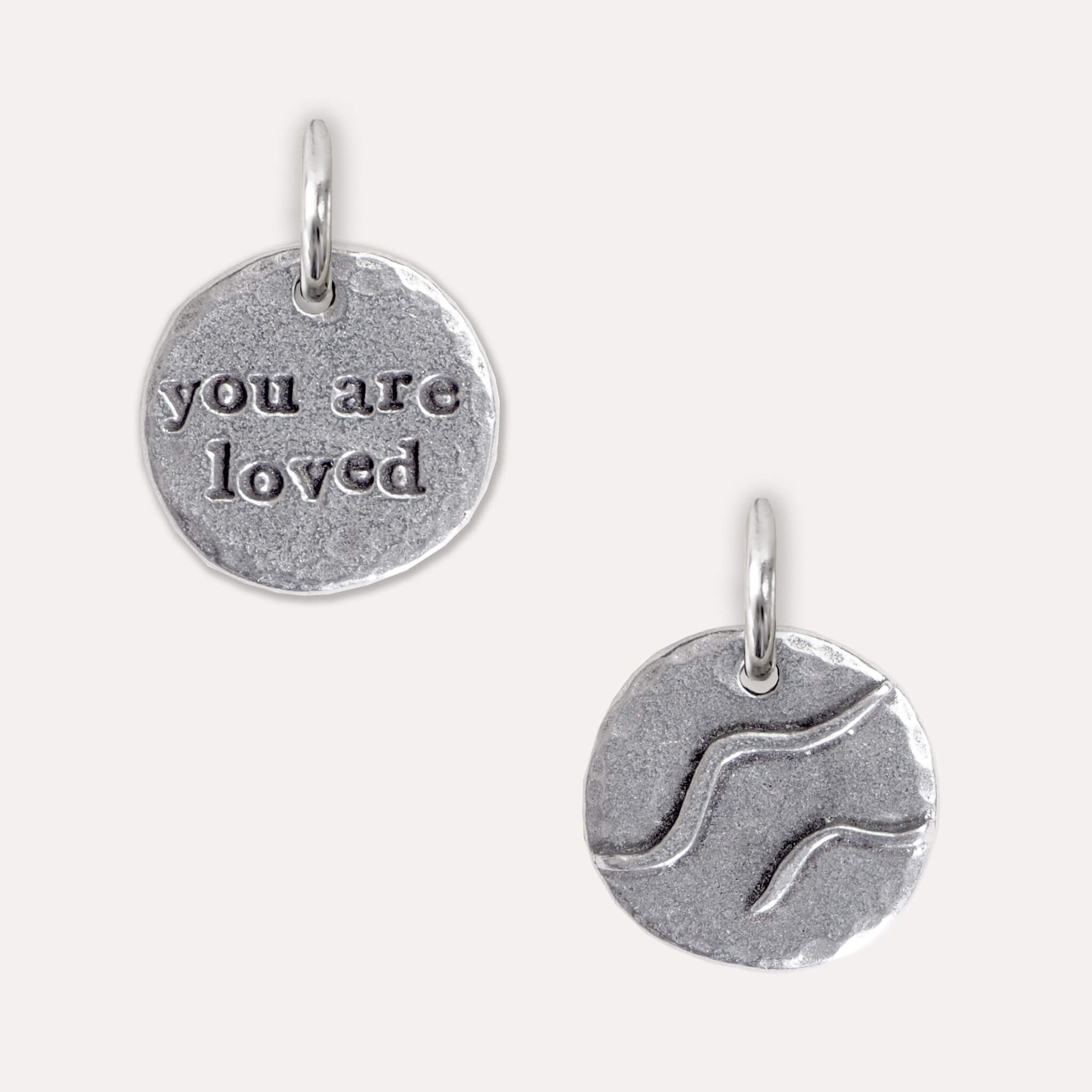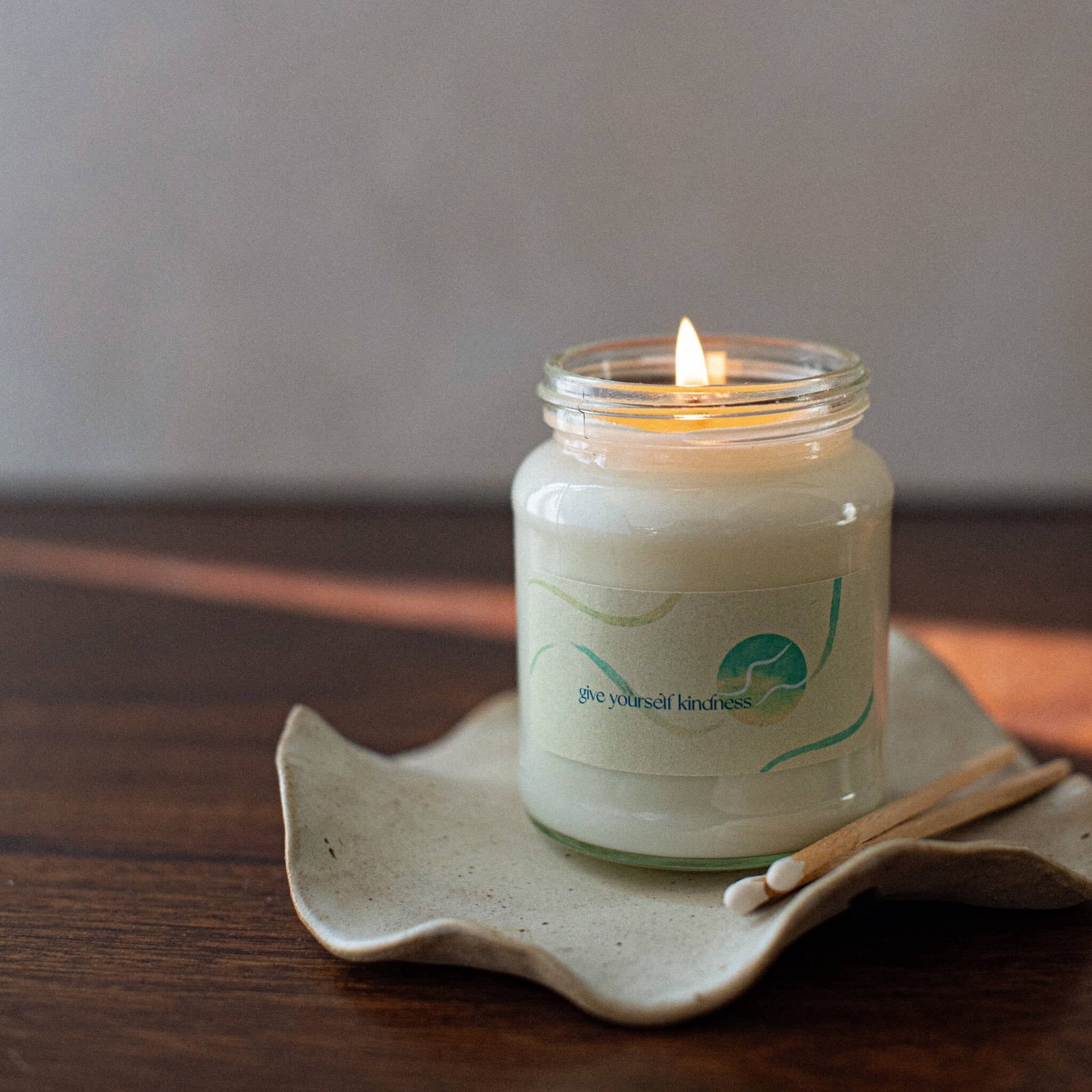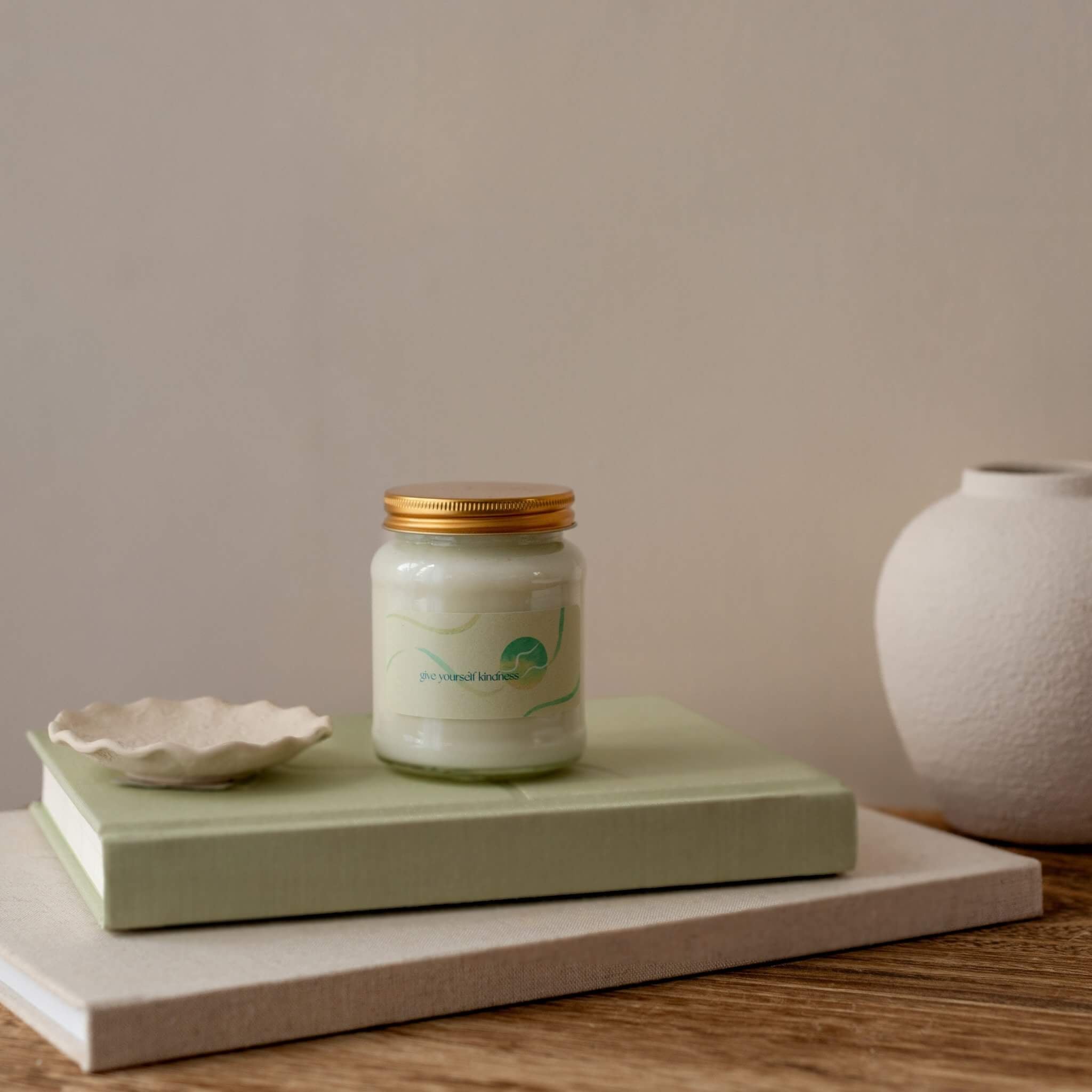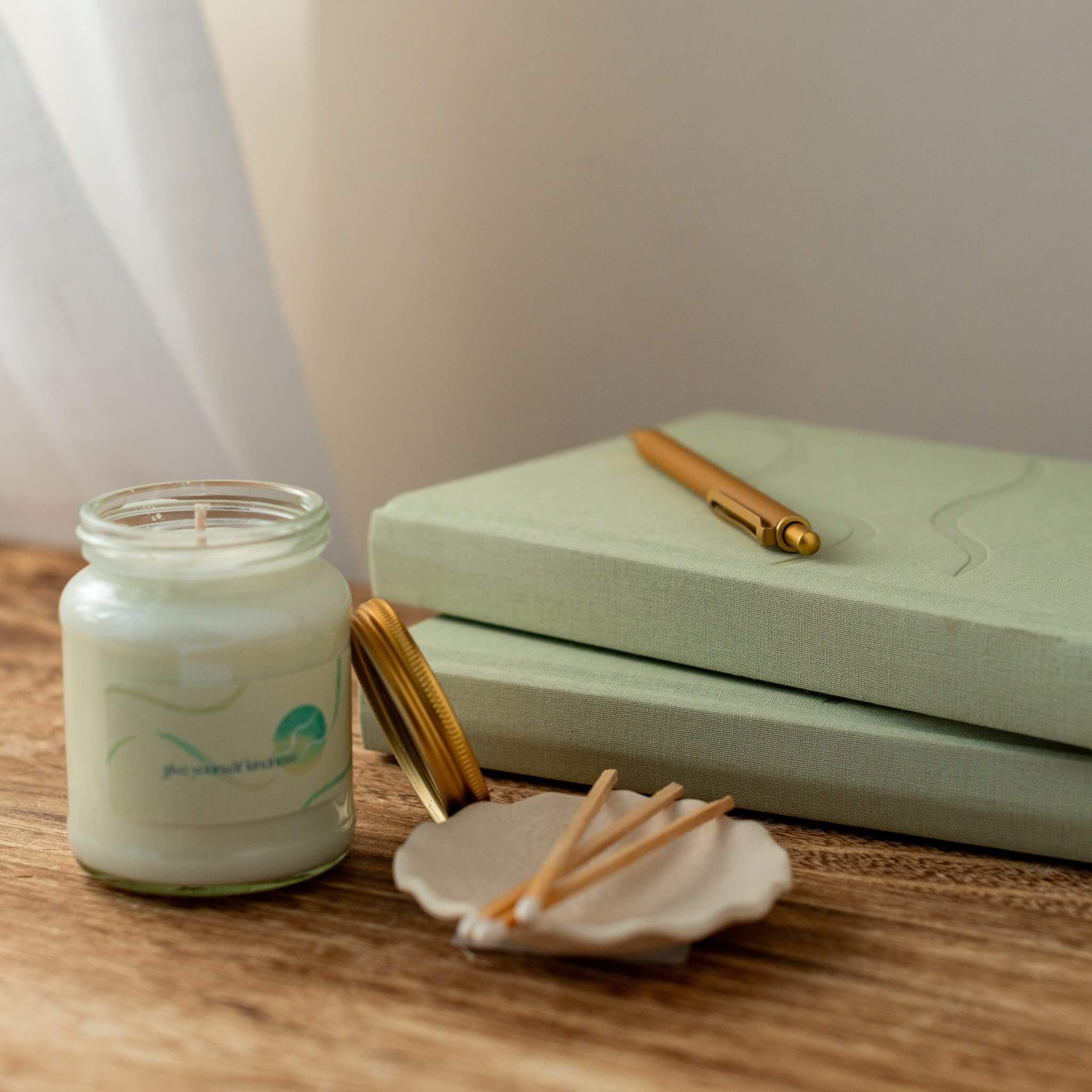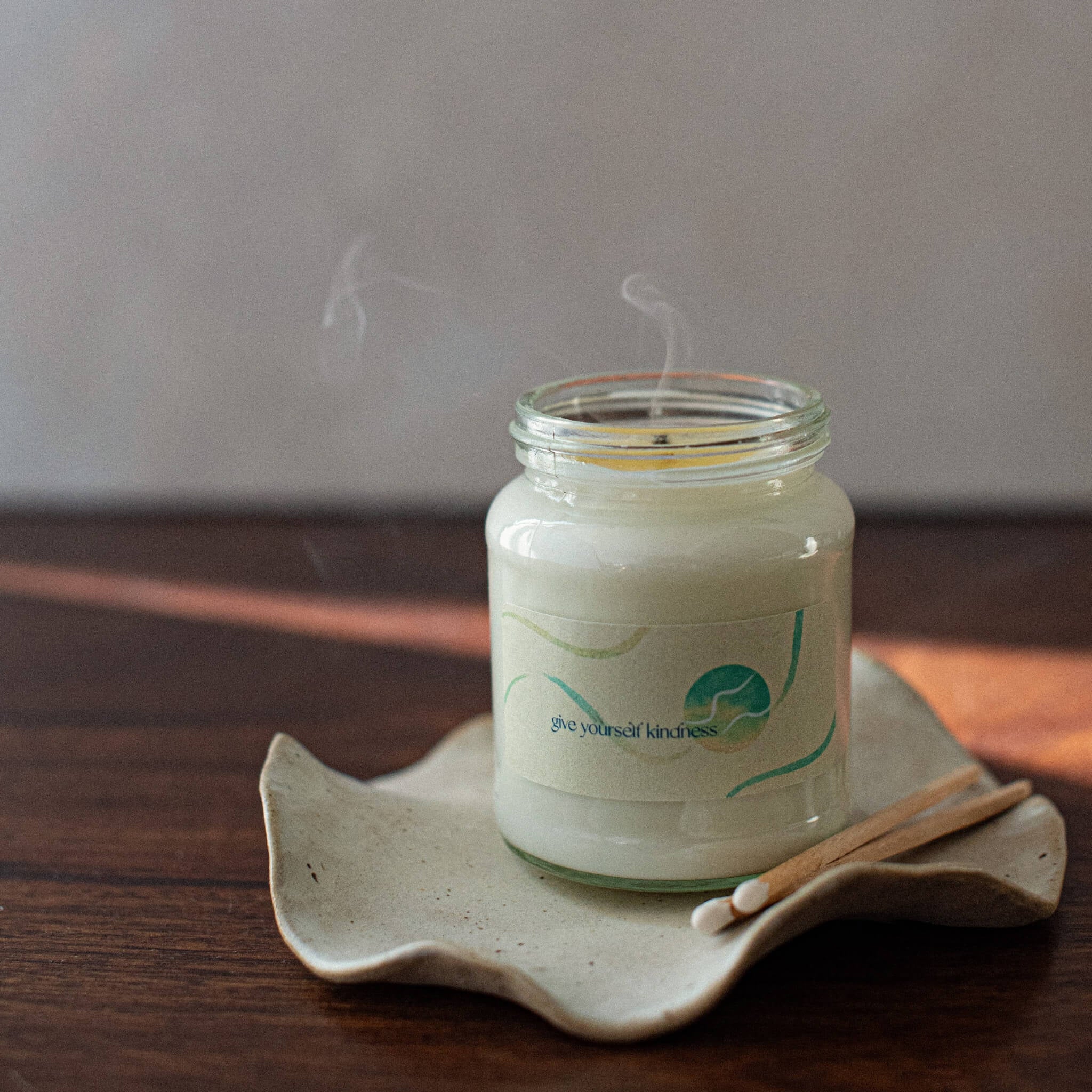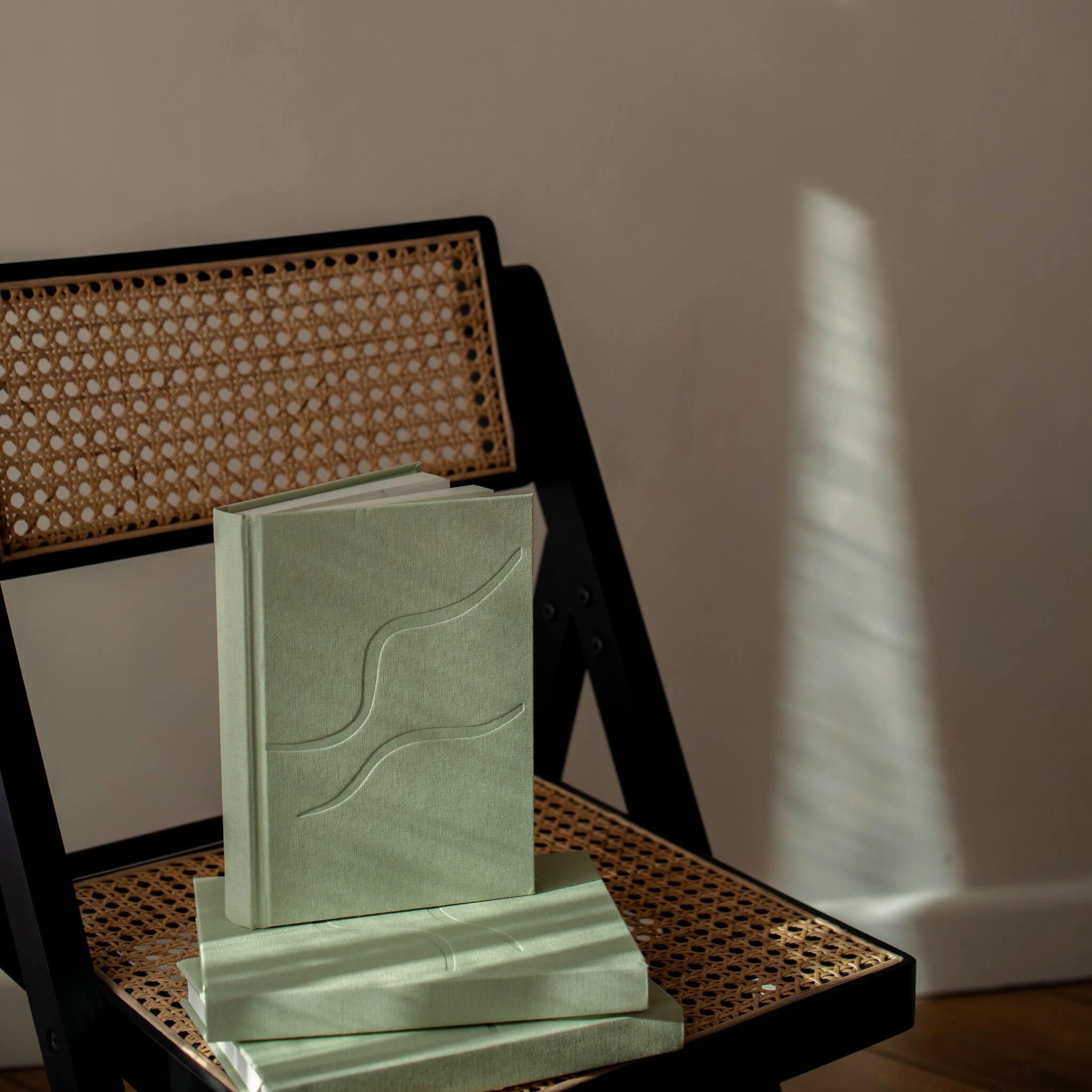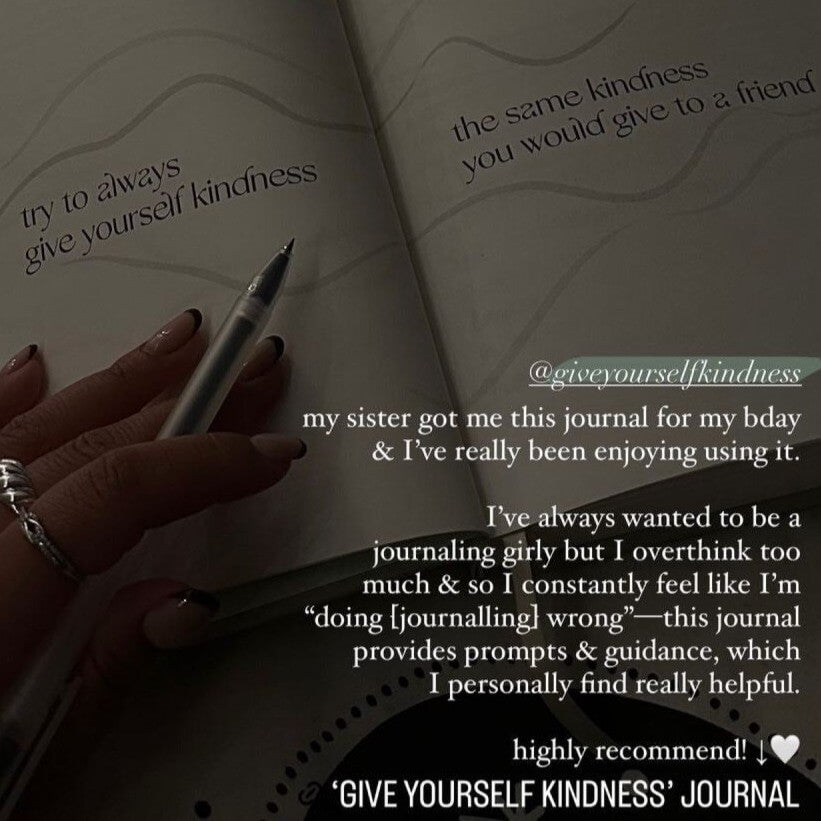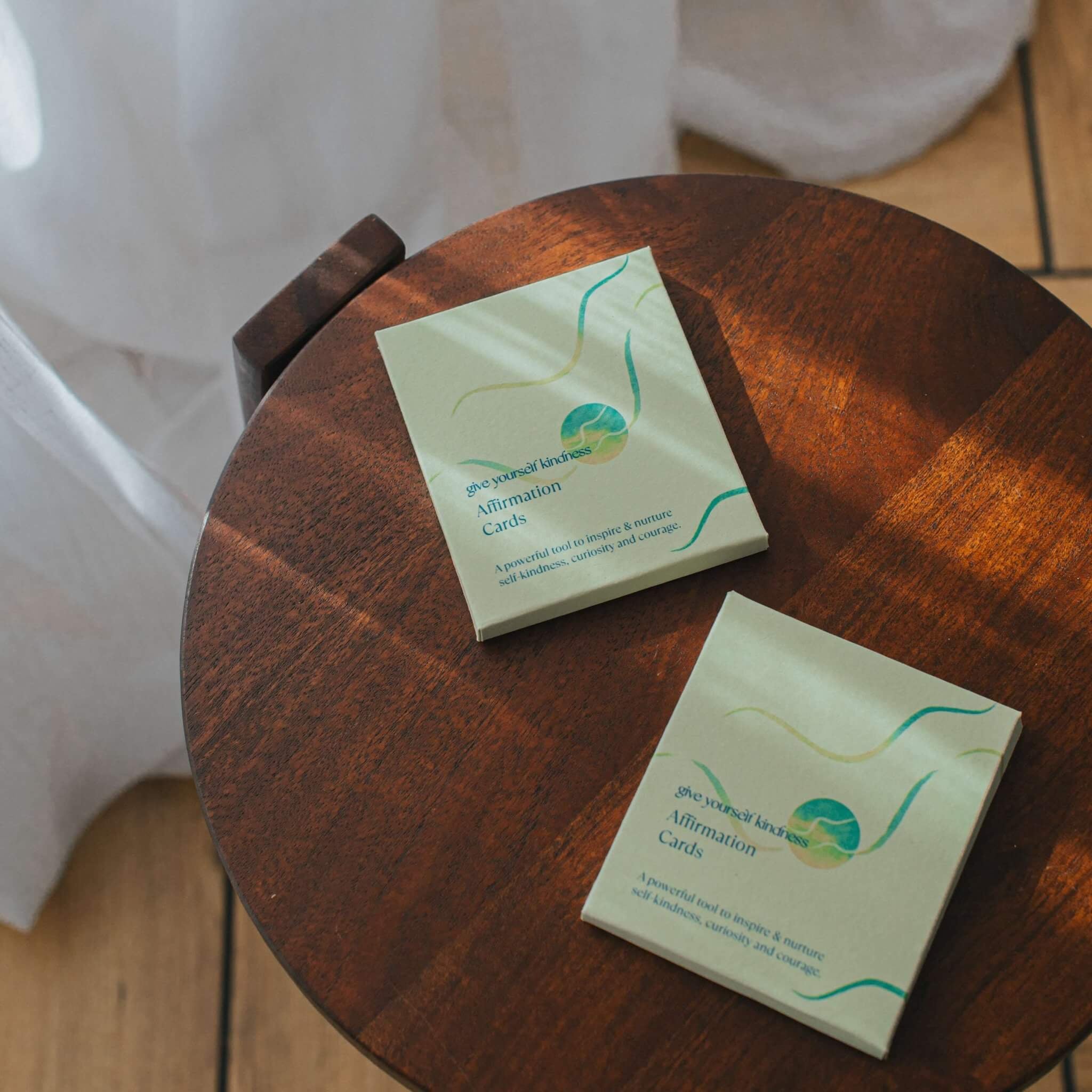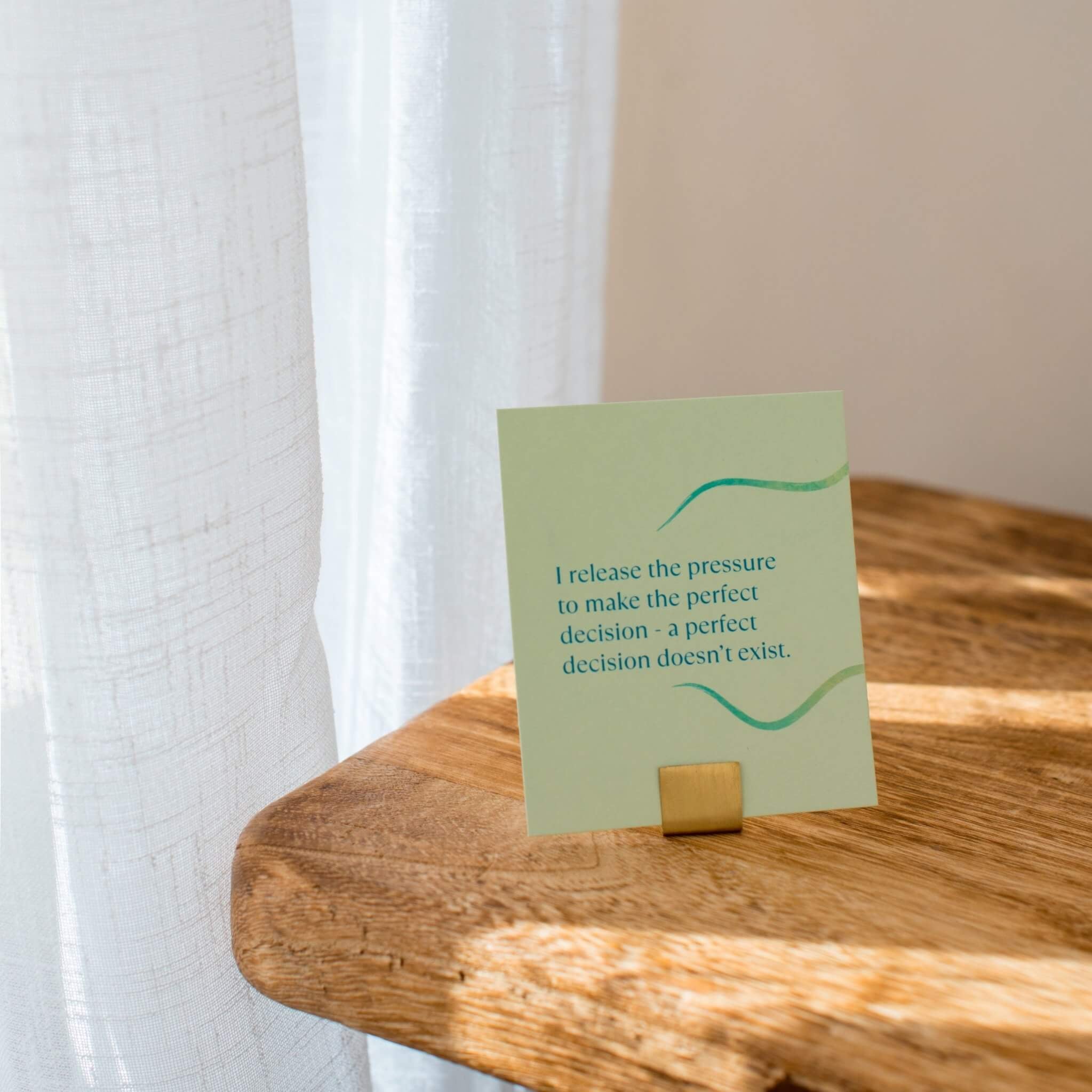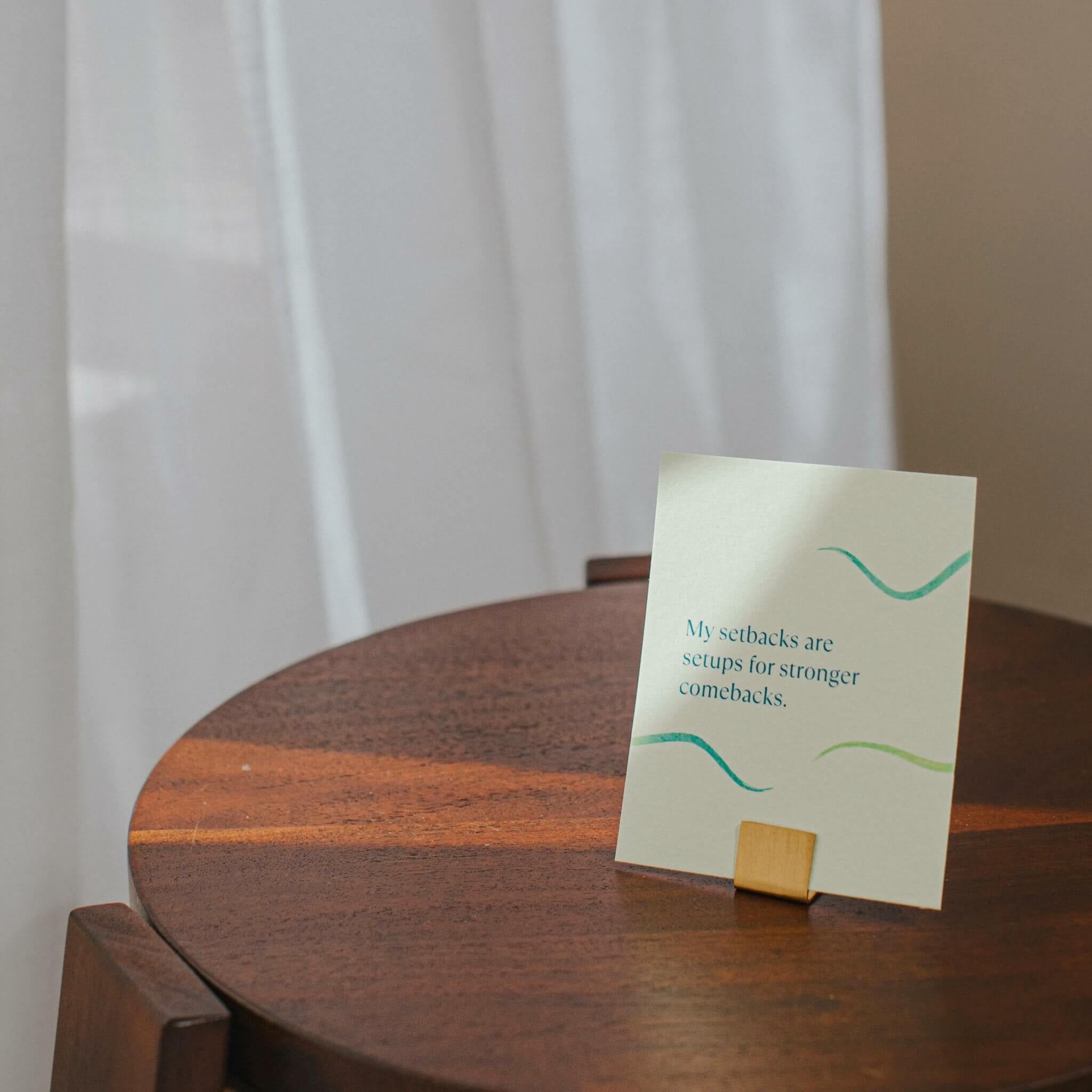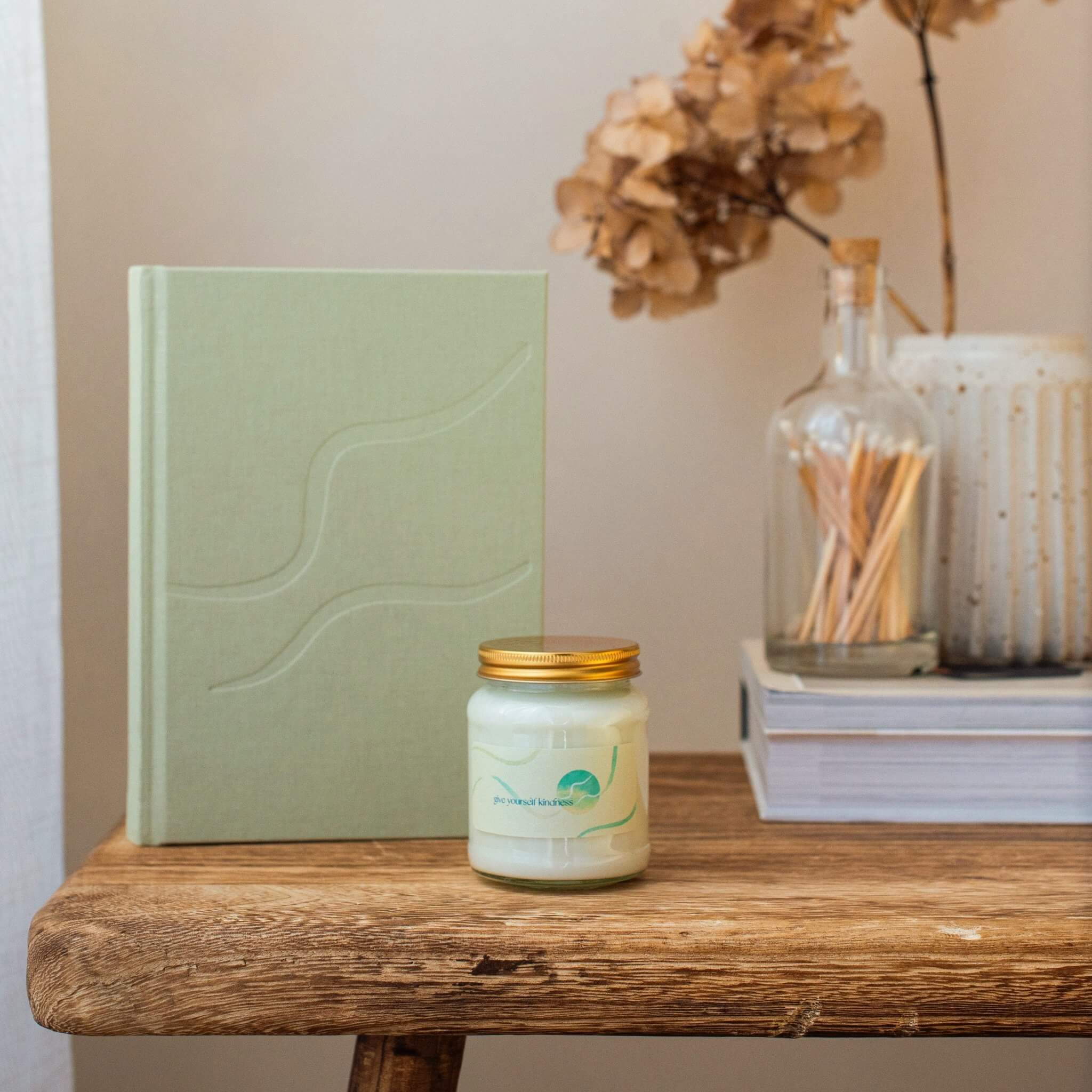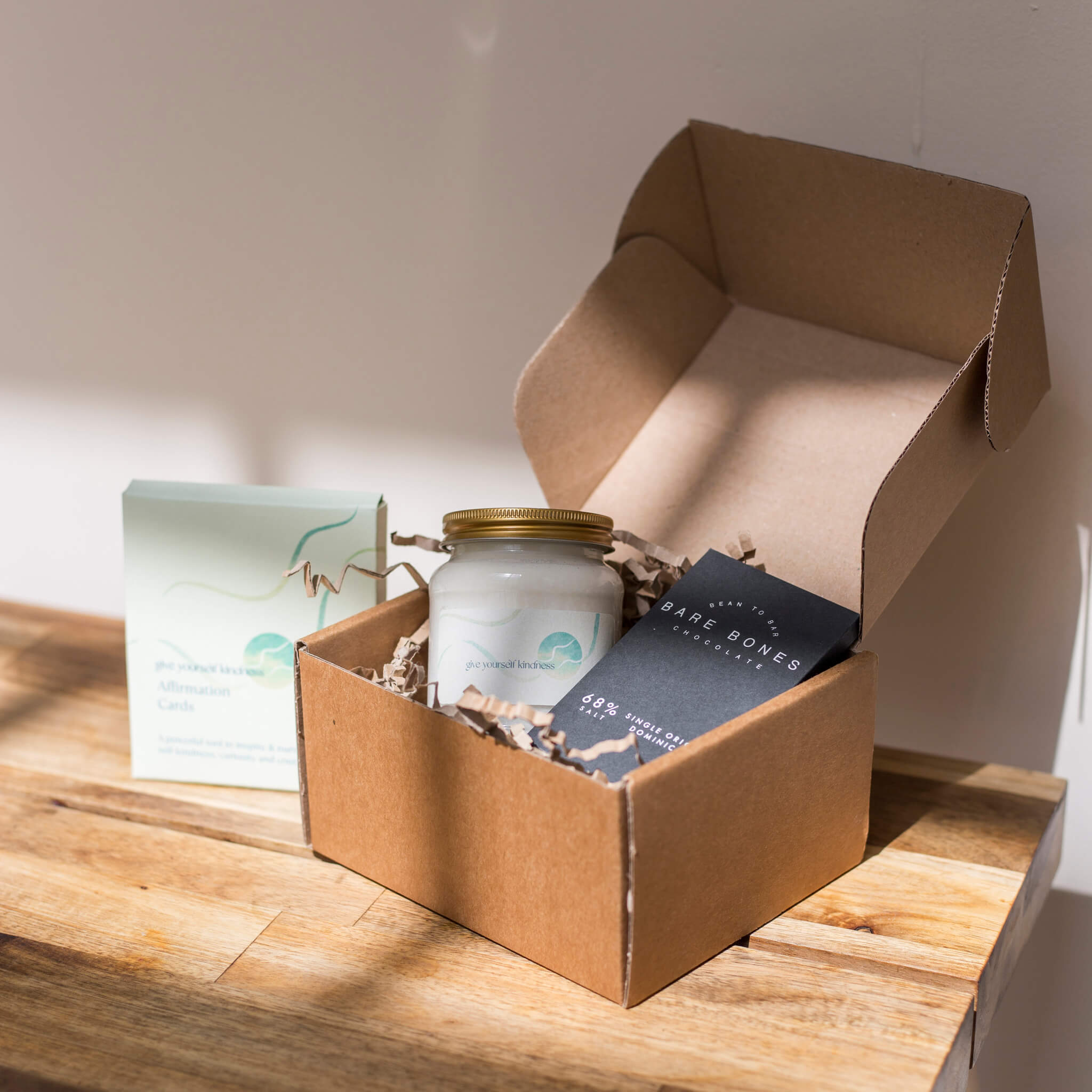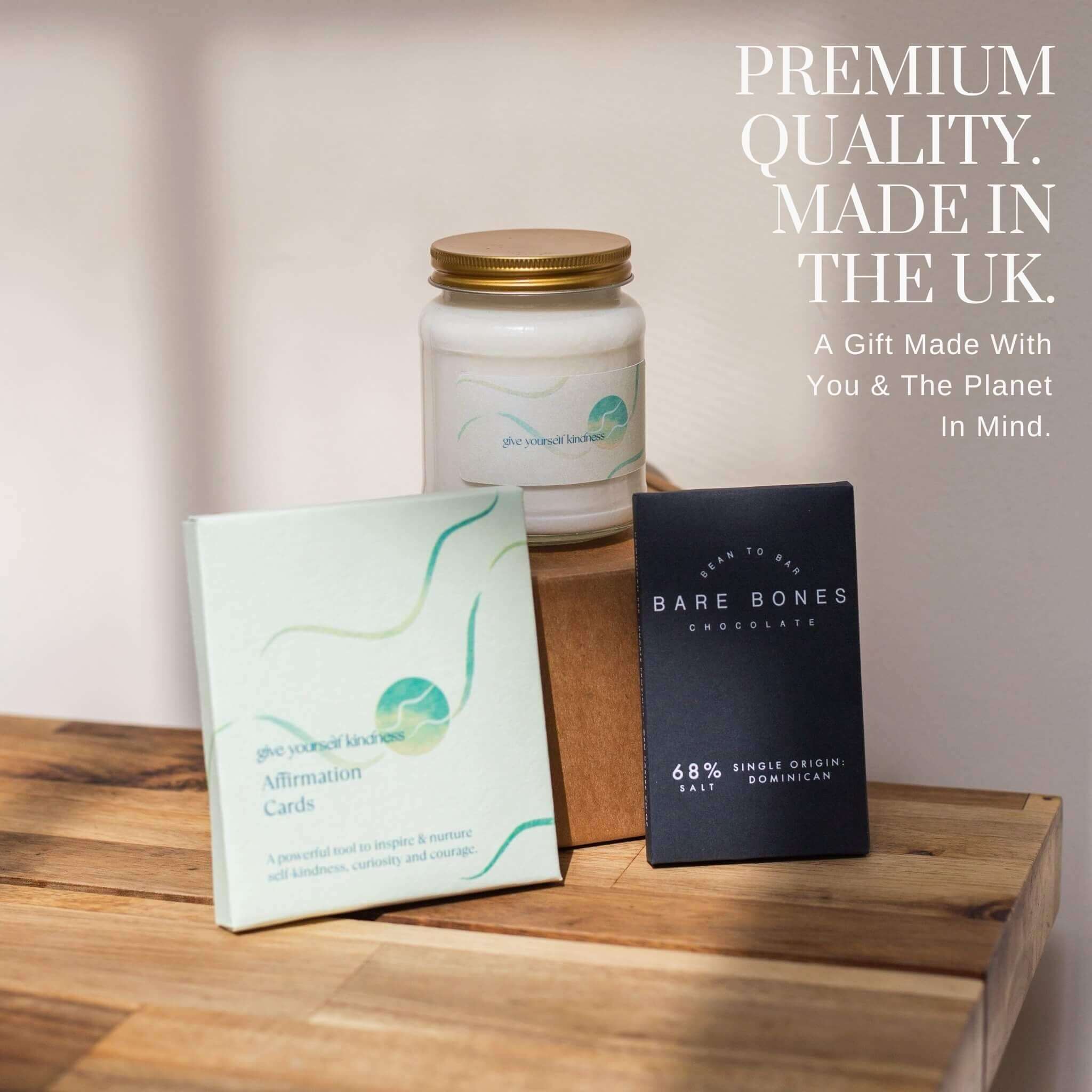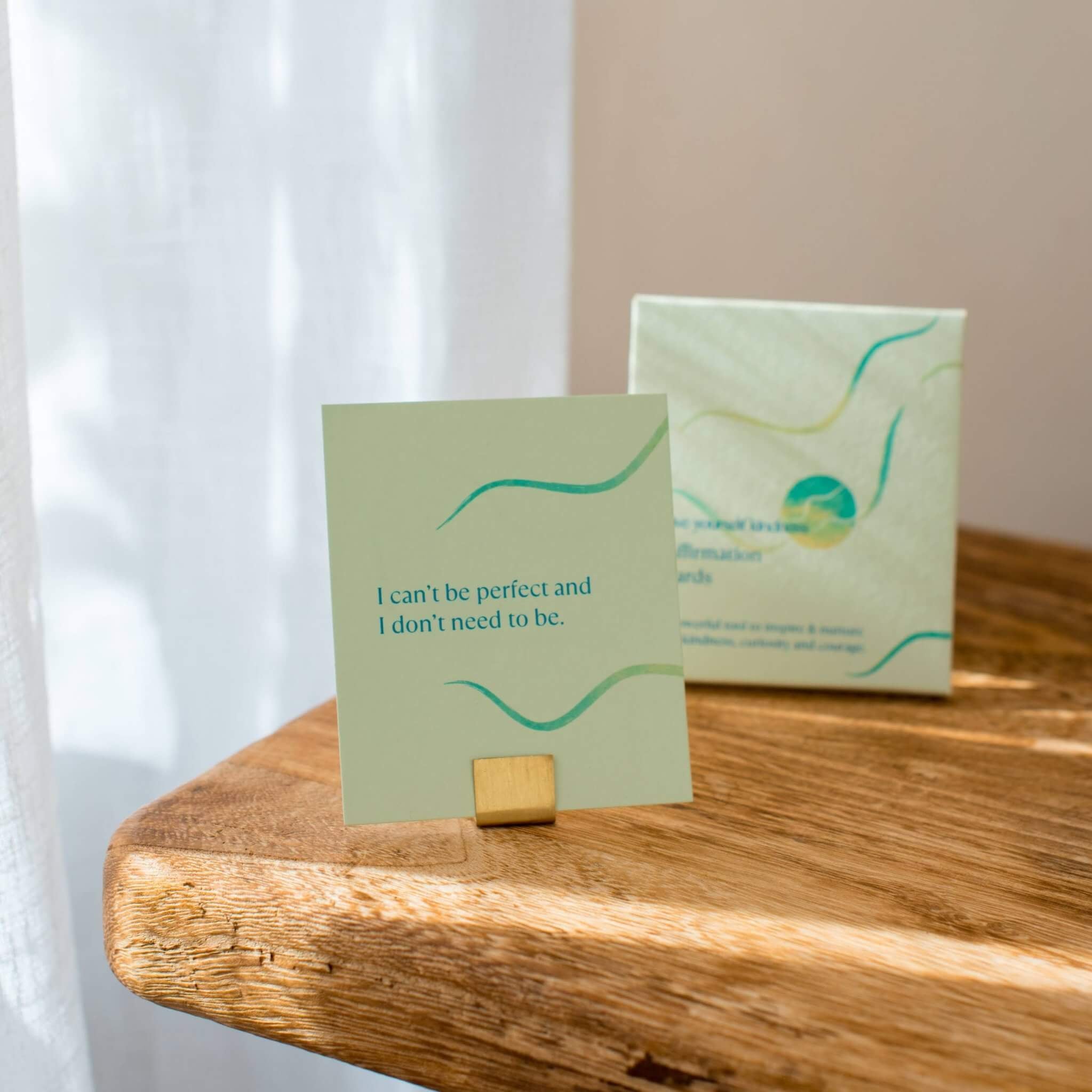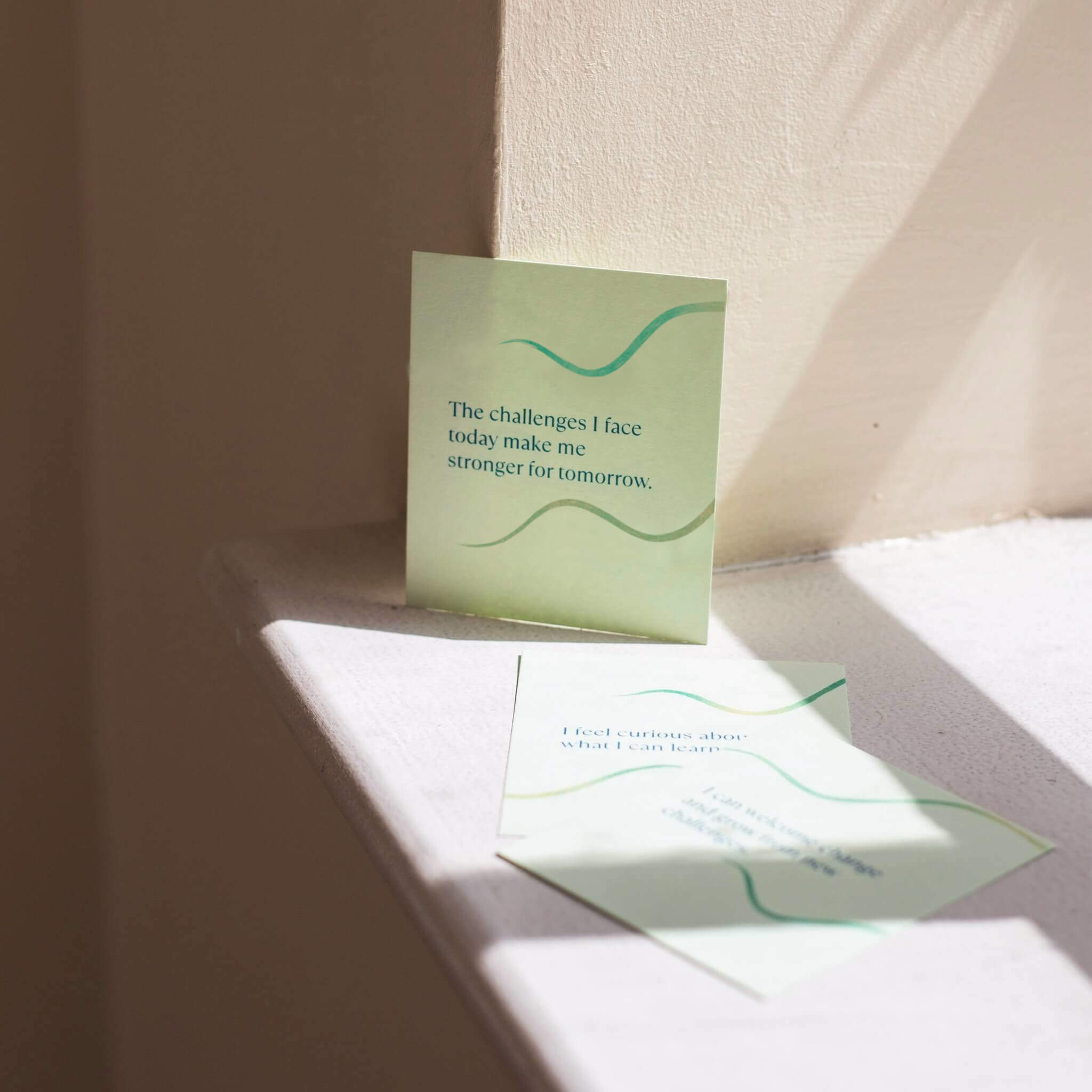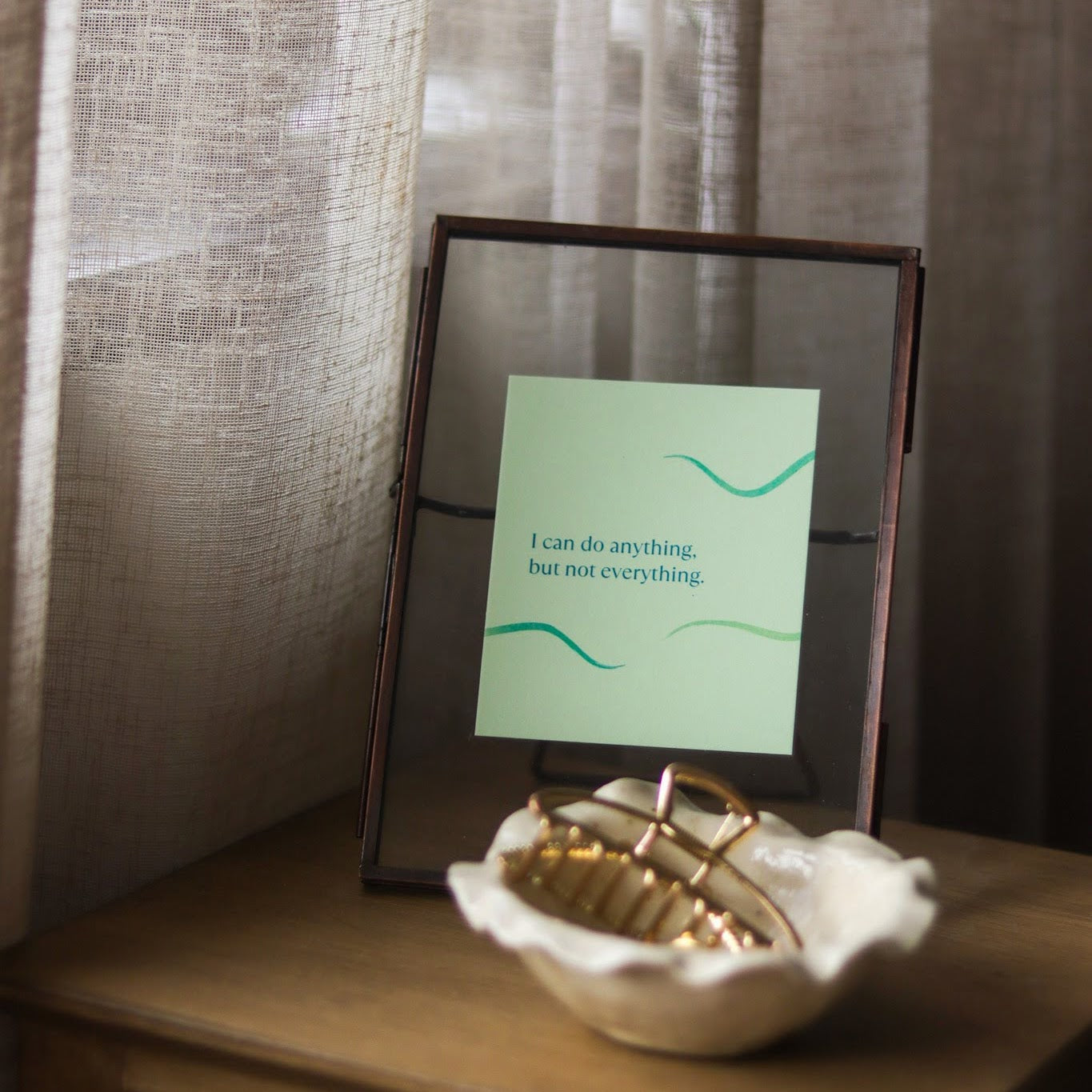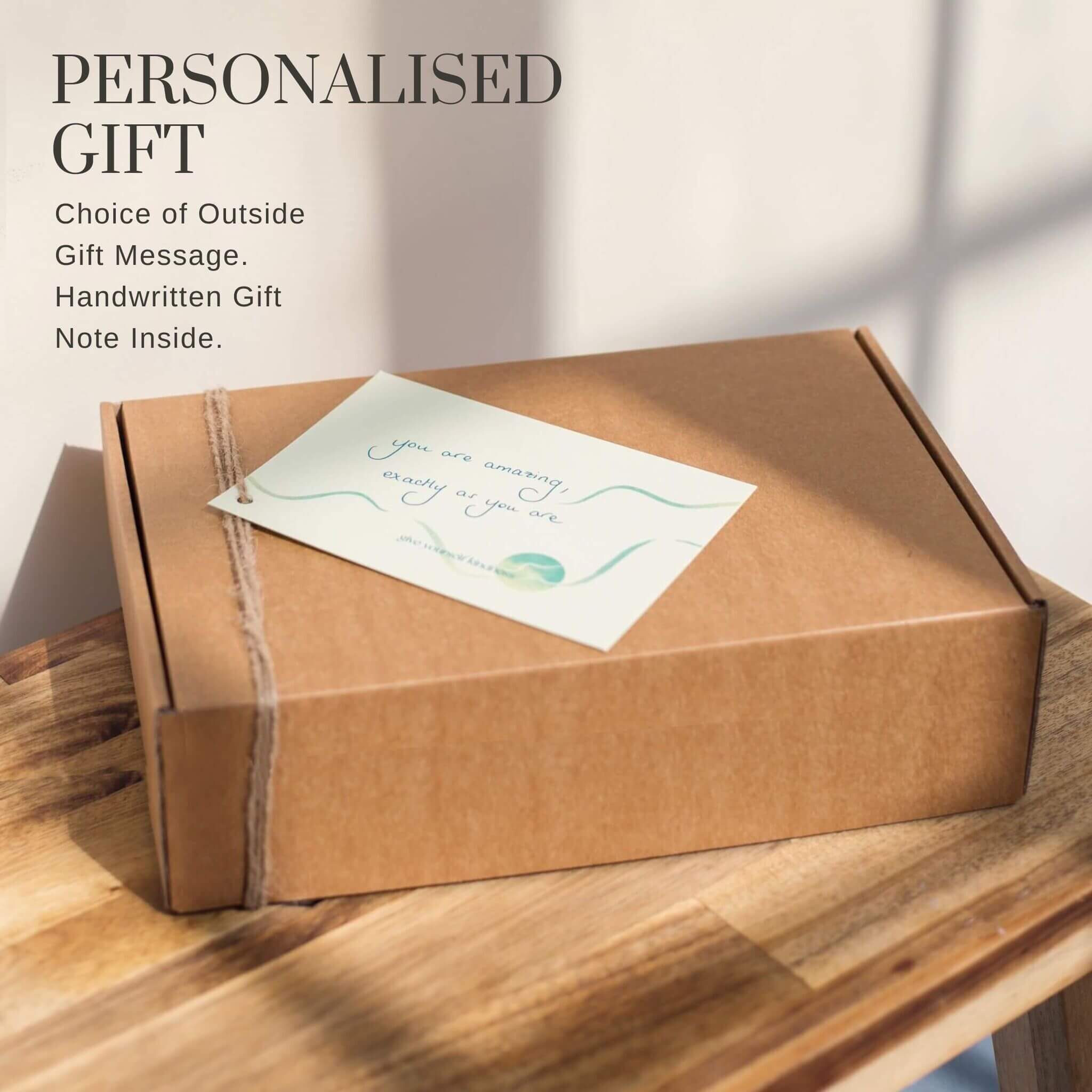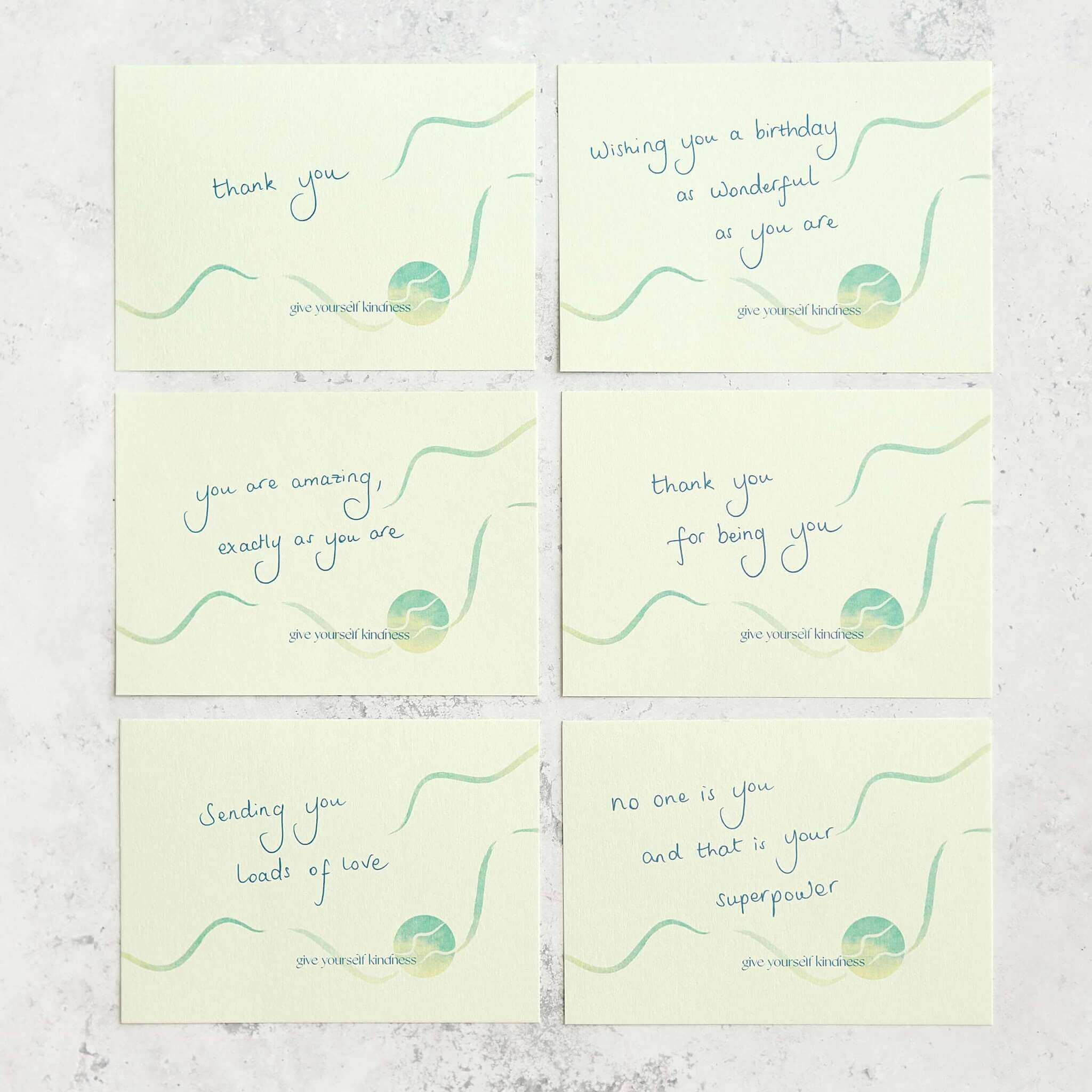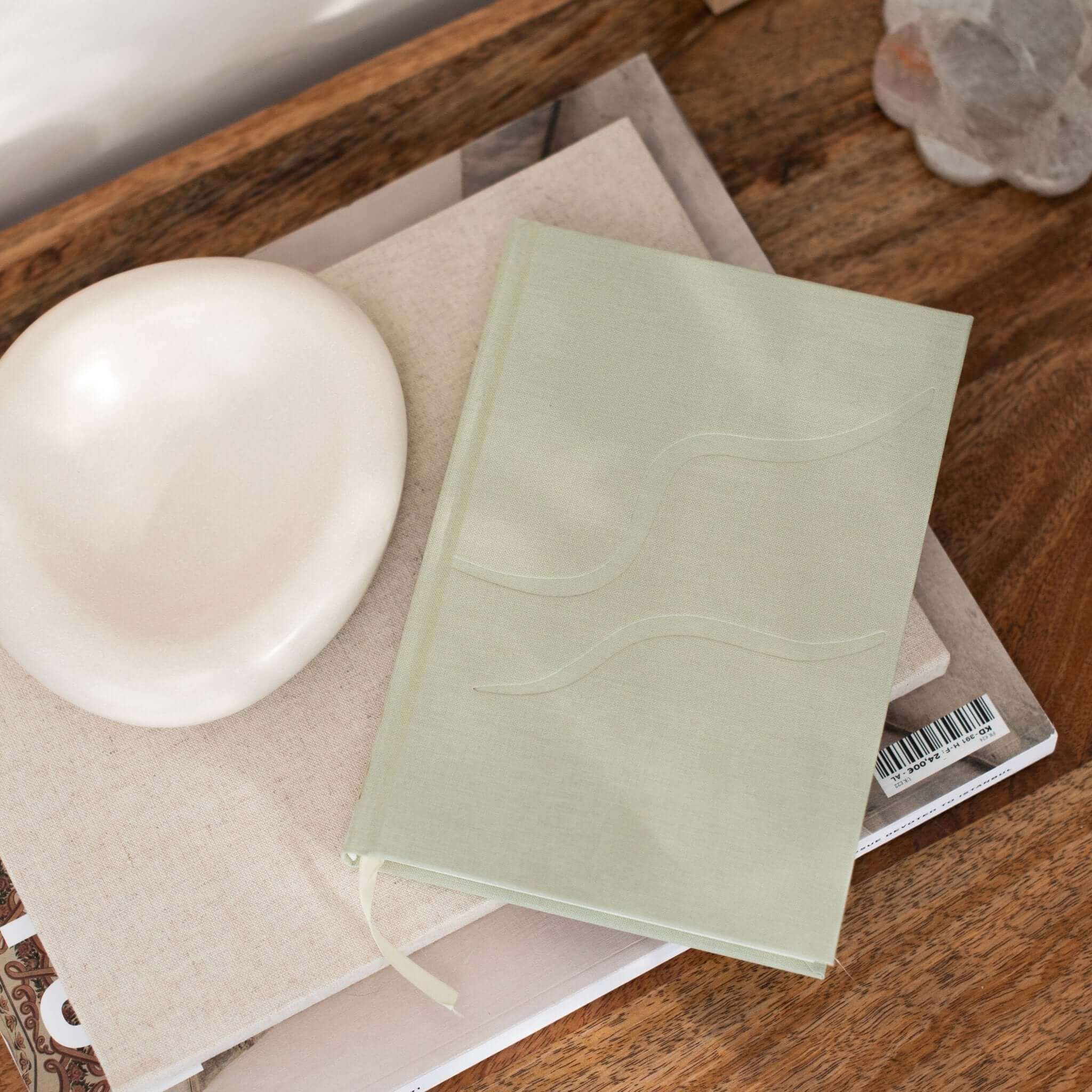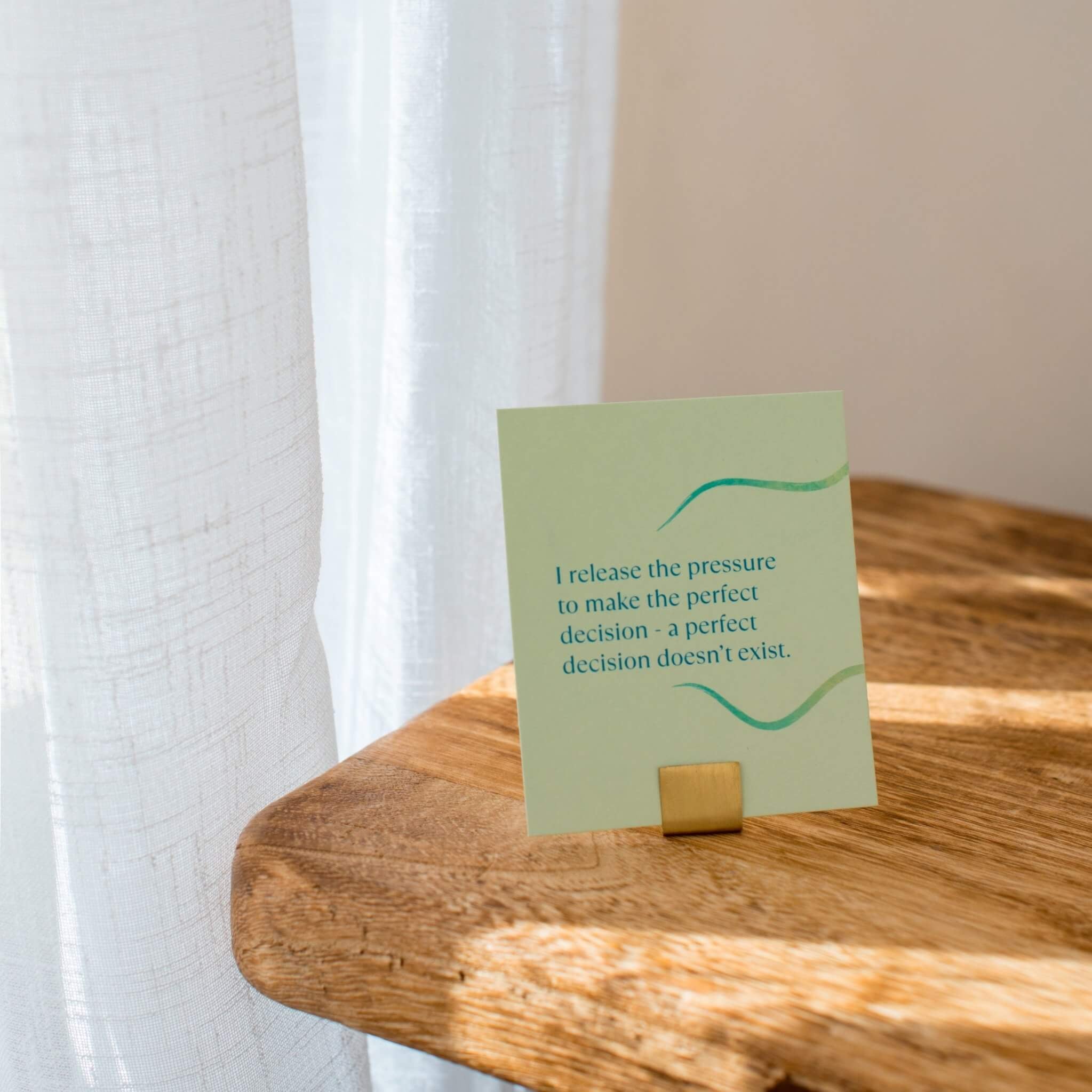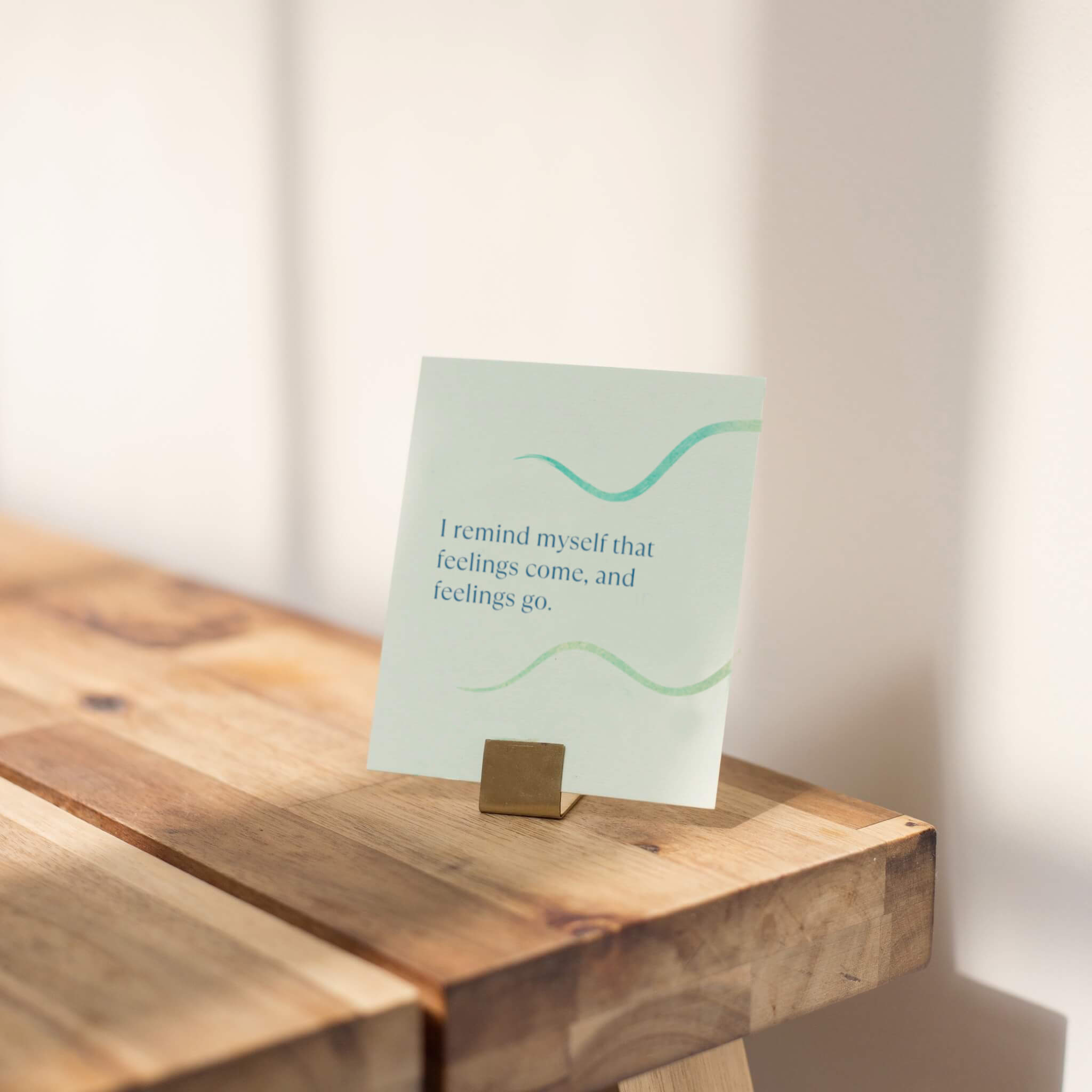What Are Affirmation Cards and What Are They For?
Quick Answer: What Are Affirmation Cards?
- Affirmation cards are individual cards with positive statements designed to help reshape negative self-talk
- Not all affirmation cards work the same way — some use forced positivity that can make you feel worse
- Evidence-based affirmation cards use — realistic statements that validate normal emotions
- Research shows they can help — when done correctly, based on what clinical psychologists recommend
I used to think affirmation cards were all about forced positivity—you know, those "everything is wonderful" messages that feel impossible on your worst days.
I avoided them for years. They felt fake. Dismissive. Like someone telling you to "just think positive" when you're genuinely struggling.
Then I discovered that not all affirmation cards are created equal. When done right—backed by self-compassion research and the principles clinical psychologists actually recommend—they can genuinely help.
Here's what affirmation cards really are (and what to look for so they actually support you instead of making you feel worse).
What Are Affirmation Cards?
Affirmation cards are individual cards featuring carefully chosen positive statements designed to help reshape how we talk to ourselves.
They're simple tools—usually a deck of cards you keep somewhere visible (your desk, bedside table, bathroom mirror). Each day, you pick a card and read the affirmation as a gentle reminder to be kinder to yourself.
Think of them as a compassionate friend in your pocket who knows exactly what to say when you need encouragement.
But here's what most people don't realize: not all affirmation cards work the same way. Some can make you feel worse.
Do Affirmation Cards Actually Work? What Clinical Psychologists Say
I wanted to know if affirmation cards actually help or if they're just "feel-good" nonsense. So I asked 5 clinical psychologists who specialize in mental health. Here's what they told me:
The short answer: Affirmation cards can work—but only if done correctly. As clinical psychologists explain, poorly designed affirmations can actually increase distress.
The key: Affirmations need to feel believable and authentic. Cards with statements like "I am perfect" won't help if you don't believe them—and can make you feel worse for not measuring up.
What the Research Shows

Dr. Jeffrey McDonnell
Clinical Psychologist specializing in complex trauma and self-criticism
What this means for affirmation cards: Cards with statements like "I am perfect" won't work if you don't believe them. You need affirmations that feel authentic and achievable—not statements that feel like you're lying to yourself.

Dr. Caroline C. Lee, PhD
Clinical Psychologist specializing in anxiety disorders
What this means for affirmation cards: Your brain already practices affirmations—mostly negative ones ("I'm not good enough," "I always mess up"). Affirmation cards help interrupt this automatic negative self-talk by giving you alternative, kinder statements to practice instead.

Professor Willem Kuyken, PhD, DClinPsy
Ritblat Professor of Mindfulness and Psychological Science at the University of Oxford | Top 1% of most cited scientists worldwide
What this means for affirmation cards: Affirmation cards aren't magic—they're practice. You're gradually building new thought patterns, not expecting overnight transformation. Be patient with the process.

Dr. Michelle Chung
Clinical Psychologist specializing in anxiety, trauma, and mood disorders
What this means for affirmation cards: Don't just read the cards—combine them with small actions. If a card says "My body deserves respect," follow it with a small action like resting when you're tired or eating something nourishing.

Dr. Annabelle Kyle Dortch, Psy.D.
Clinical Psychologist specializing in life transitions, stress, anxiety, and trauma
What this means for affirmation cards: If you struggle with body image, shift from "I love my body" to "My body deserves respect." Then follow it with action: "Because my body deserves respect, I am going to buy clothes that fit and are comfortable."
Want the full research? Read the complete article: "Do Affirmations Really Work? I Asked 5 Psychologists" →
Why Some Affirmation Cards Work and Others Don't
Based on what clinical psychologists told me, here's the critical difference between affirmation cards that help and those that make you feel worse:
❌ Forced Positivity Affirmations
Examples:
- "I am perfect exactly as I am"
- "Everything always works out for me"
- "I have no problems or worries"
- "My life is amazing"
The problem: As Dr. Jeffrey McDonnell explains, "Research suggests that for some people, positive self-affirmations can be helpful but for others, they may be ineffective or even harmful (particularly for those who may already struggle with low self-esteem)."
When you're genuinely struggling and a card tells you "everything is perfect," it feels dismissive. You know it's not true, which can make you feel worse—like you're failing even at affirmations.
✓ Self-Compassion Based Affirmations
Examples:
- "I can try, even when I don't feel 100% ready"
- "Just because I have a thought, doesn't mean it's true"
- "The way you speak to yourself matters"
- "You can't be perfect, and you don't need to be"
Why this works: These statements acknowledge reality while offering support. They don't dismiss your struggles—they help you respond to them with kindness.
As research by Dr. Kristin Neff shows, self-compassion is more effective than forced positivity for improving mental health. Self-compassion says "I'm struggling right now, and that's okay. What do I need?" instead of pretending everything is fine.
The bottom line: Look for affirmation cards that practice self-compassion, not self-deception.
What Are Affirmation Cards For? (How They Help)
When done right, affirmation cards serve as tools for building a more compassionate relationship with yourself. Here's what they're actually for:
1. Interrupting Negative Self-Talk
Your brain runs thousands of automatic thoughts daily—many of them negative. Affirmation cards give you something different to practice, helping interrupt the loop of "I'm not good enough" thinking.
2. Practicing Self-Compassion
Most of us are experts at self-criticism but terrible at self-kindness. Research shows self-compassion is more effective than self-criticism for growth. Affirmation cards give you simple statements to practice being kinder to yourself.
3. Visual Reminders Throughout Your Day
You can't remember to be kind to yourself if you're on autopilot. Seeing an affirmation card on your desk or mirror interrupts autopilot and reminds you to pause, breathe, and offer yourself support.
4. Quick Support When You Need It
Unlike journaling (which takes 5-10 minutes), affirmation cards take 30 seconds. They're there for moments when you need quick encouragement—before a difficult meeting, after a hard day, or when your inner critic gets loud.
5. Building New Neural Pathways
Research by psychologists shows that the words we regularly think and say actually reshape our brain. By practicing kinder self-talk through affirmation cards, you're gradually building new neural pathways that make self-compassion feel more natural.
Ready to use them? Learn practical ways to use affirmation cards in daily life →
How to Choose Affirmation Cards That Actually Help
Based on what clinical psychologists recommend, here's what to look for when choosing affirmation cards:
- Realistic statements that acknowledge life's challenges (not "everything is perfect")
- Validate emotions rather than dismiss them (acknowledge that life is hard sometimes)
- Self-compassion focus based on research, not just motivational quotes
- Variety for different situations and needs
- Authentic language that feels real, not cliché or overly flowery
- Achievable statements that feel like a slight stretch, not an impossible leap
Avoid affirmation cards that:
- ❌ Claim you're perfect or have no problems
- ❌ Dismiss difficult emotions with forced positivity
- ❌ Use language that feels fake or over-the-top
- ❌ Make you feel worse for not living up to them
Affirmation Cards Based on Self-Compassion Research
The Give Yourself Kindness affirmation cards were created with these principles in mind—using self-compassion techniques that clinical psychologists recommend rather than forced positivity.

Margaret Davis, MS, LPC
Licensed Therapist
Over 50 carefully crafted affirmations like:
- "You can't be perfect, and you don't need to be"
- "The way you speak to yourself matters"
- "Just because I have a thought, doesn't mean it's true"
- "I can try, even when I don't feel 100% ready"
- "Being human means being imperfect"
- "No emotion is permanent"
- "I am worthy now, and this will never change"
Each card uses the self-compassion approach that 5 clinical psychologists say actually works—realistic statements that validate your struggles while offering genuine support.

Ways to display them: Each set comes with display options—a minimalist brass stand or luxury copper and glass frame—so your affirmation becomes a beautiful, visible part of your space.
Common Questions About Affirmation Cards
Are affirmation cards just "positive thinking"?
No. As clinical psychologists explain, evidence-based affirmation cards use self-compassion techniques—not forced positivity.
Positive thinking says "everything is fine." Self-compassion says "I'm struggling right now, and that's okay. How can I support myself?" That's a crucial difference.
The Give Yourself Kindness affirmation cards validate difficult emotions while offering support—they don't ask you to pretend everything is perfect.
Do you have to believe in manifestation for affirmation cards to work?
No. While some people use affirmation cards for manifestation practices, the research-backed benefits come from self-compassion and cognitive reframing—not magical thinking.
Clinical psychologists recommend affirmation cards because they help you develop a kinder inner dialogue and interrupt negative self-talk. That's based on neuroscience, not manifestation.
What if affirmations feel fake or uncomfortable?
This usually means the affirmations are too far from your current beliefs. As Dr. Annabelle Kyle Dortch explains, "Choose a statement that isn't a far departure from your current reality."
If "I am confident" feels fake, try "I can try, even when I don't feel 100% ready." That's more achievable and still moves you forward.
It's also normal for self-compassion to feel uncomfortable at first—especially if you've been hard on yourself for years. Clinical psychologist Dr. Chris Irons has identified 10 common fears of self-compassion. Discomfort doesn't mean it's not working.
How are affirmation cards different from journaling?
Affirmation cards: Quick (30 seconds to 2 minutes), visual reminders throughout your day. Best for moments when you need immediate support or encouragement.
Journaling: Longer (5-10 minutes), deeper reflection and emotional processing. Best for exploring feelings and patterns over time.
Many people use both. Affirmation cards for daily reminders, and journaling for deeper work. They complement each other beautifully.
Can affirmation cards replace therapy?
No. Affirmation cards are a supportive tool, not a replacement for professional help.
If you're struggling with depression, anxiety, or trauma, please work with a qualified therapist. Many therapists (like Margaret Davis, MS, LPC) use affirmation cards with their clients as a complementary tool alongside therapy.
Think of affirmation cards as daily practice between therapy sessions—not a substitute for professional support.
How do I actually use affirmation cards?
There are many ways to use them—morning rituals, visual reminders on your mirror or desk, carrying one in your pocket, or using them during meditation.
The key is finding what works for your life. Some people like structured daily practice; others prefer picking a card whenever they need support.
Read the complete guide: "How to Use Affirmation Cards (Without Feeling Forced)" →
Are affirmation cards good gifts?
They can be, but choose carefully. Avoid cards with forced positivity (like "you're perfect" or "everything is wonderful").
Look for cards that offer gentle, realistic support. The Give Yourself Kindness cards are often given as thoughtful gifts because they validate real struggles while offering compassion—not fake positivity.
They work well as gifts for friends going through difficult times, new parents, people in therapy, or anyone who's been hard on themselves.
What's the difference between affirmation cards and oracle cards?
Affirmation cards focus on self-compassion and reshaping negative self-talk using research-backed psychological principles.
Oracle cards are used for intuitive guidance or spiritual practice—often drawing on symbolism, divination, or connecting with spiritual insight.
Both can be valuable, but they serve different purposes. Affirmation cards are grounded in psychological research; oracle cards are grounded in spiritual practice.
The Bottom Line: What Affirmation Cards Are Really For
Affirmation cards aren't about fixing yourself or forcing positivity. They're tools for building a kinder relationship with yourself—one small reminder at a time.
When backed by self-compassion research and using realistic statements (not forced positivity), they can help you:
- Interrupt negative self-talk patterns
- Practice being kinder to yourself
- Build new neural pathways for self-compassion
- Have quick support when you need it
- Remember that you deserve kindness—especially on hard days
Choose affirmation cards that validate your real struggles while offering genuine support—not ones that make you feel worse for not being "perfect."

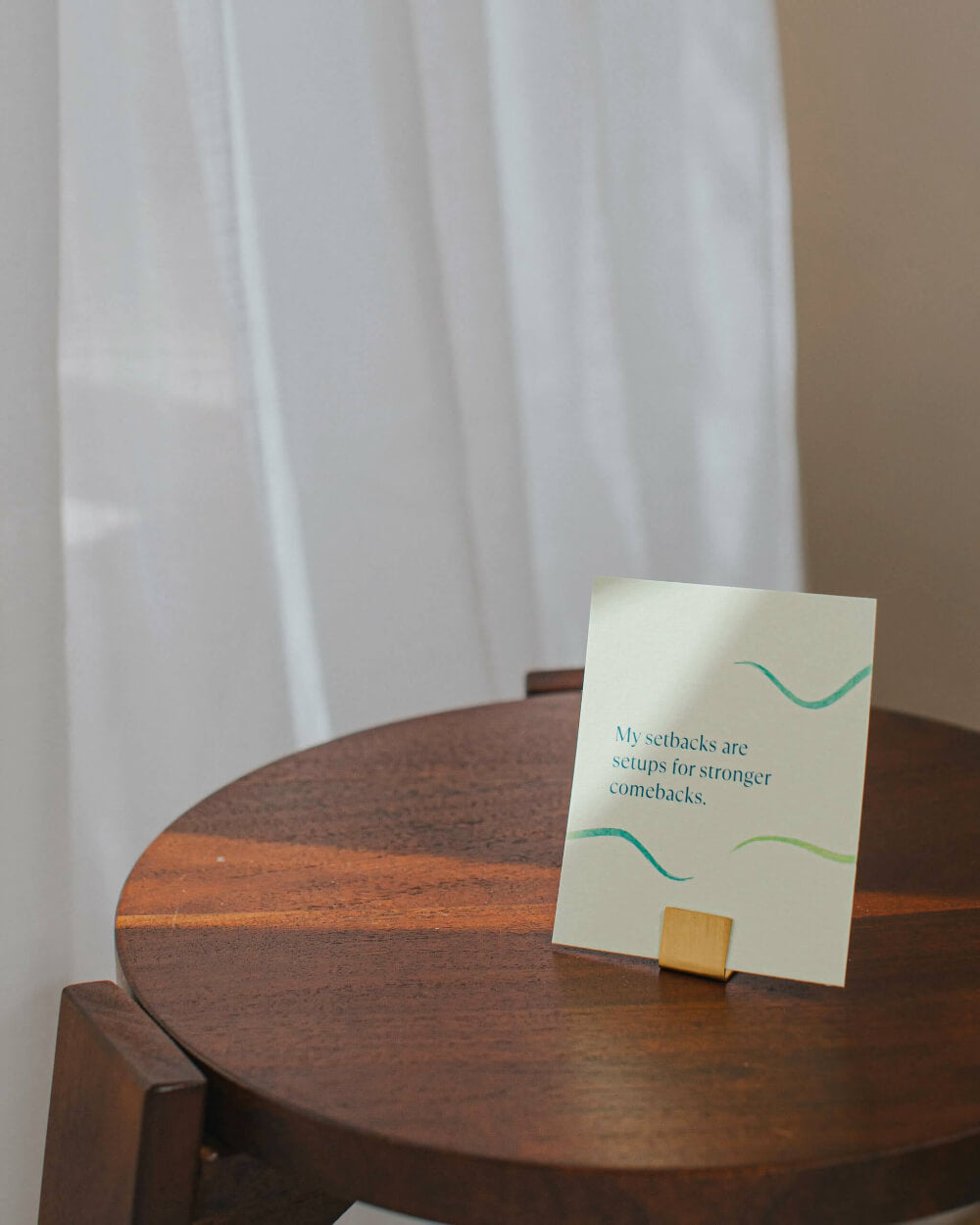
“I instantly feel a sense of groundedness and calm”
Affirmations can be so helpful along our healing journey. And these affirmations are truly so beautiful and powerful! When I read them, I instantly feel a sense of groundedness and calm. They are wonderful reminders for when I need to slow down and reconnect with myself. I also love that they are centered around having more compassion and kindness for ourselves. I will definitely be utilizing these with my clients, as well as practicing them myself. Thank you so much Rachel!



